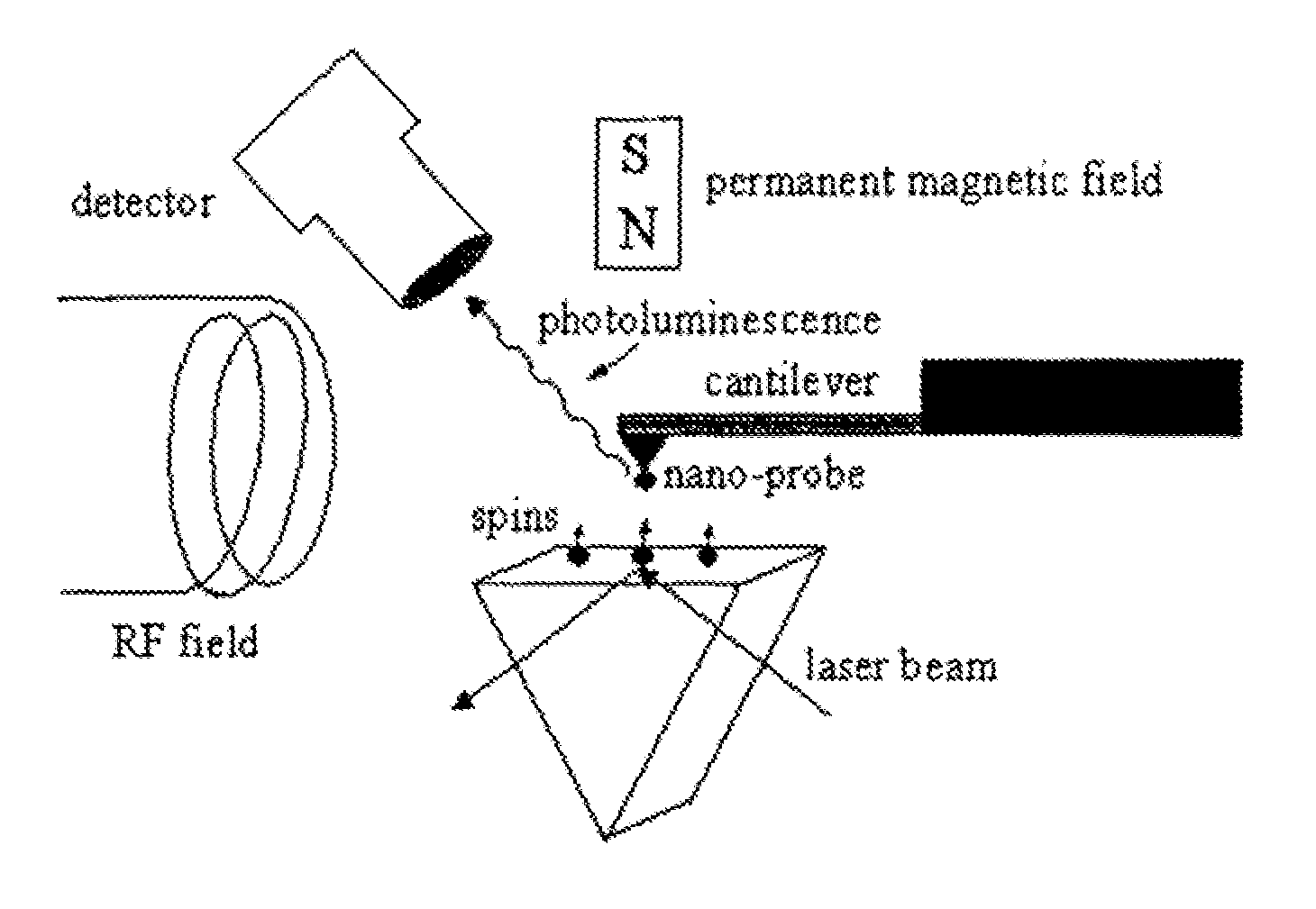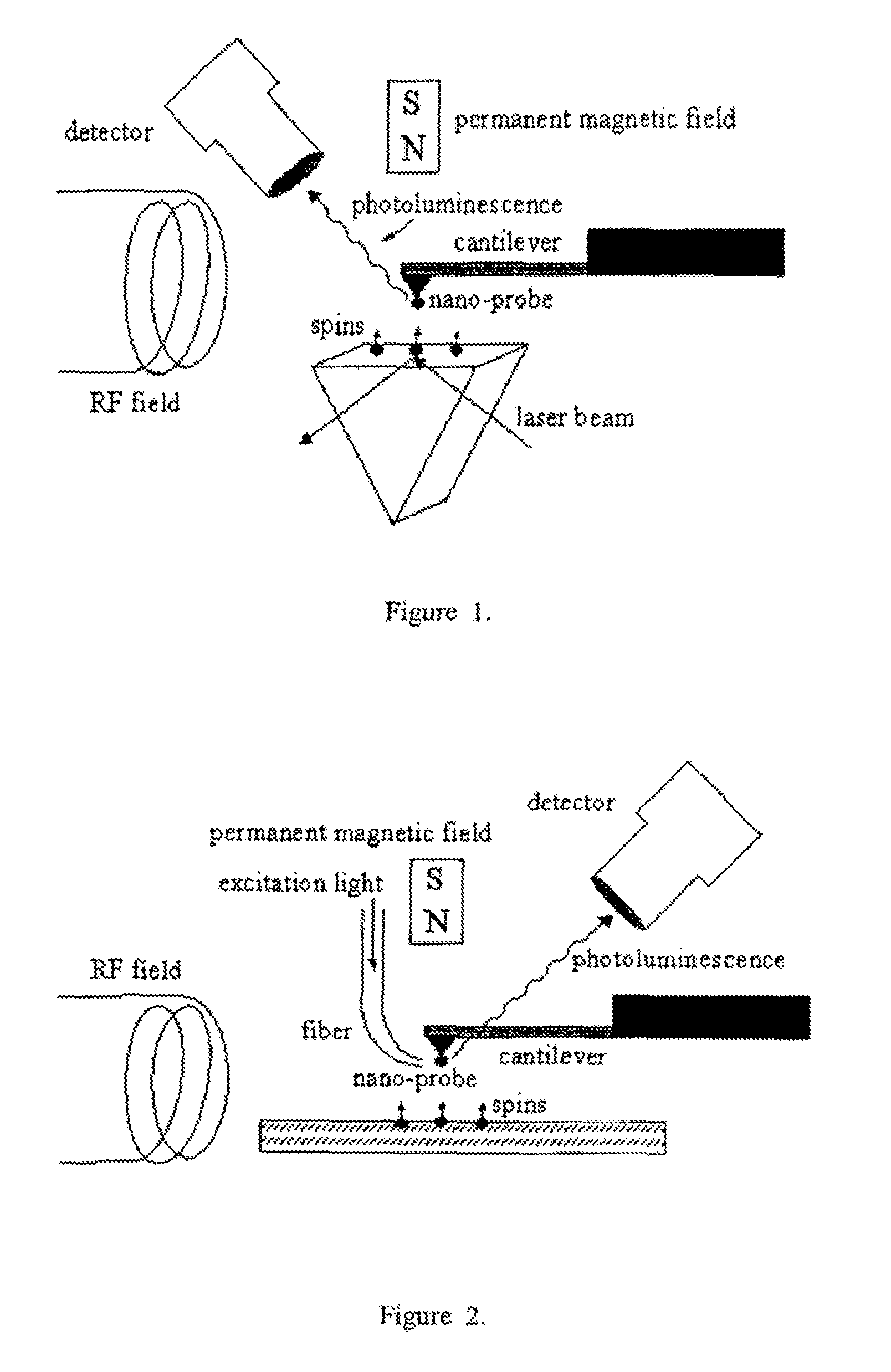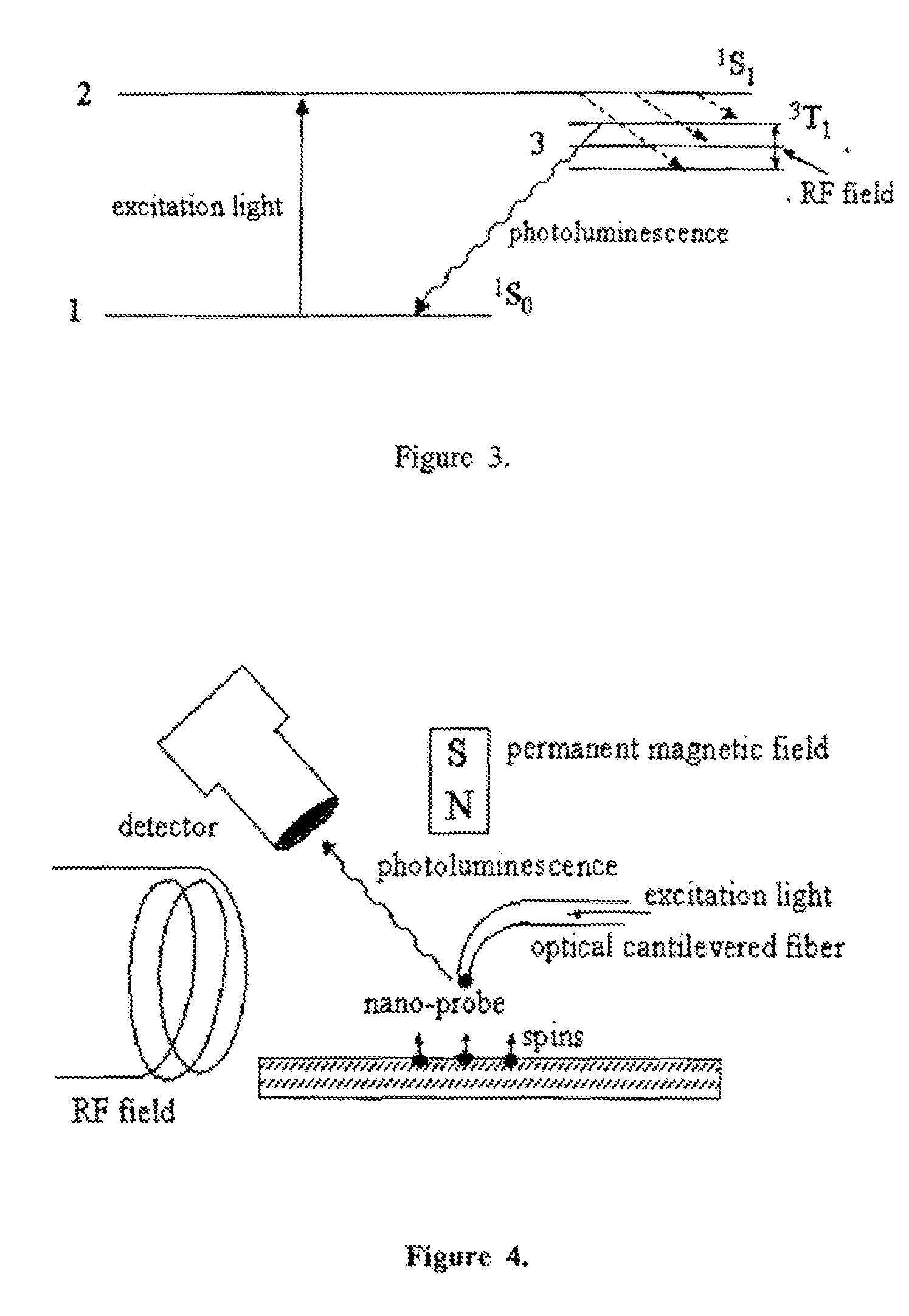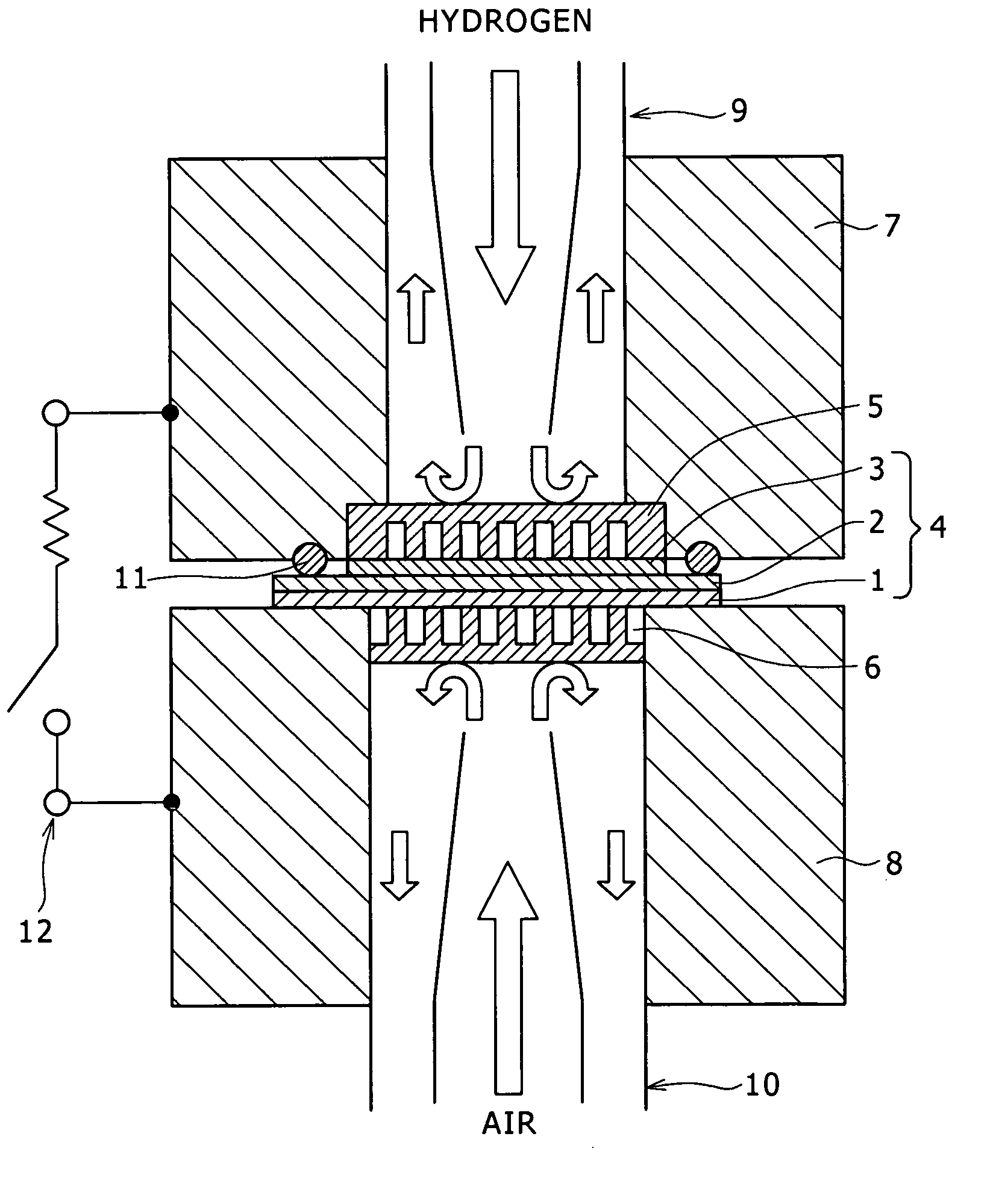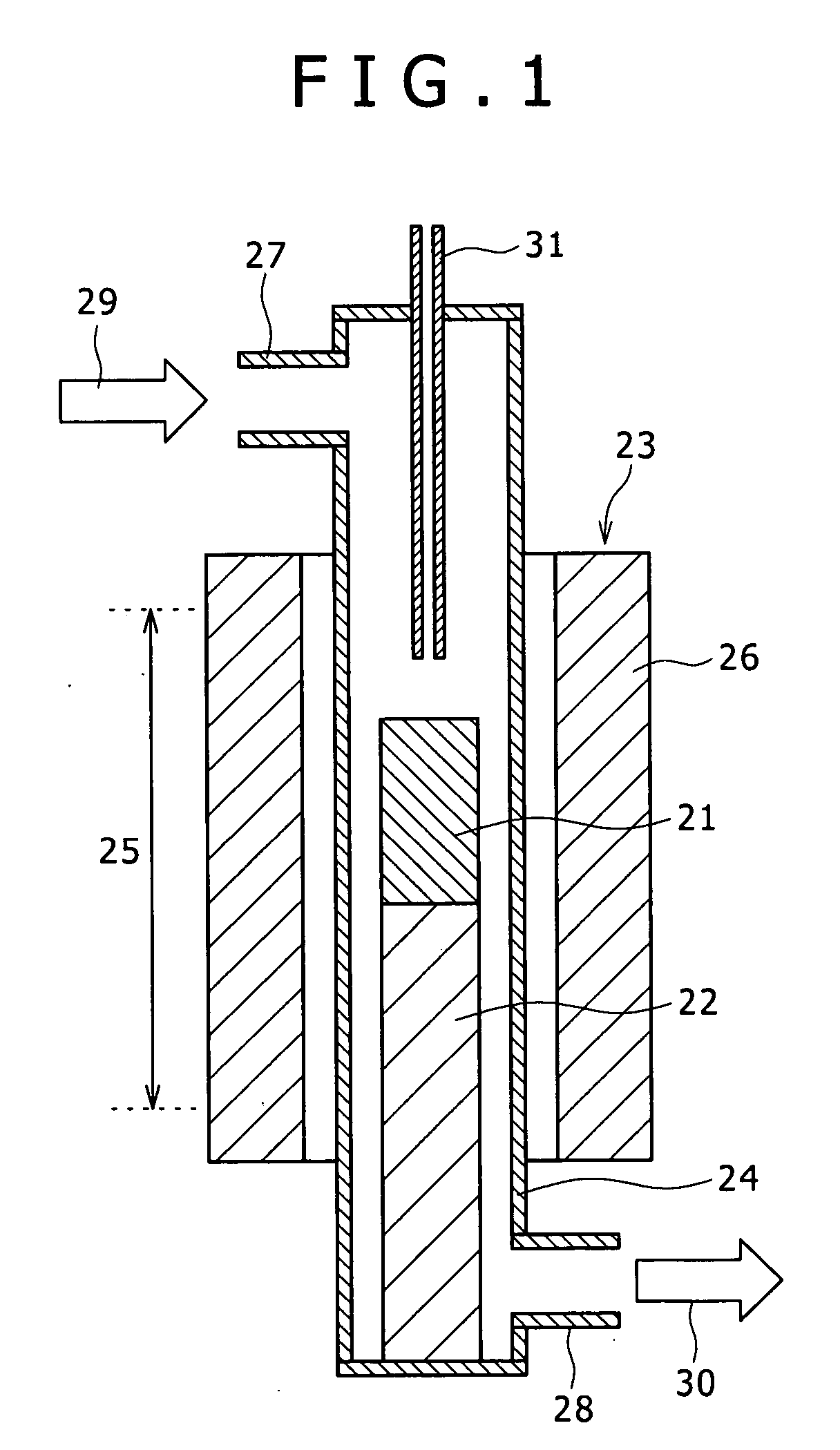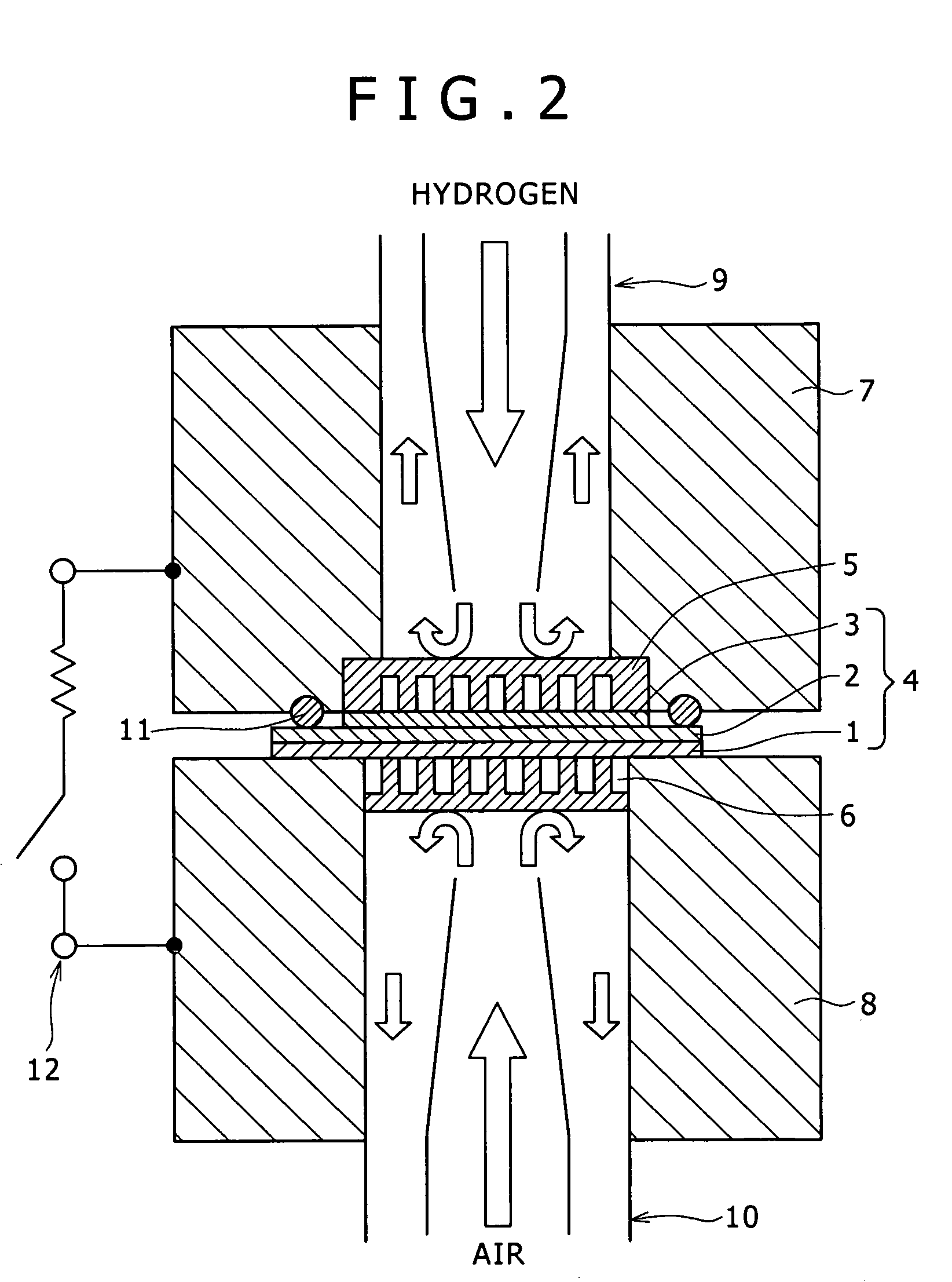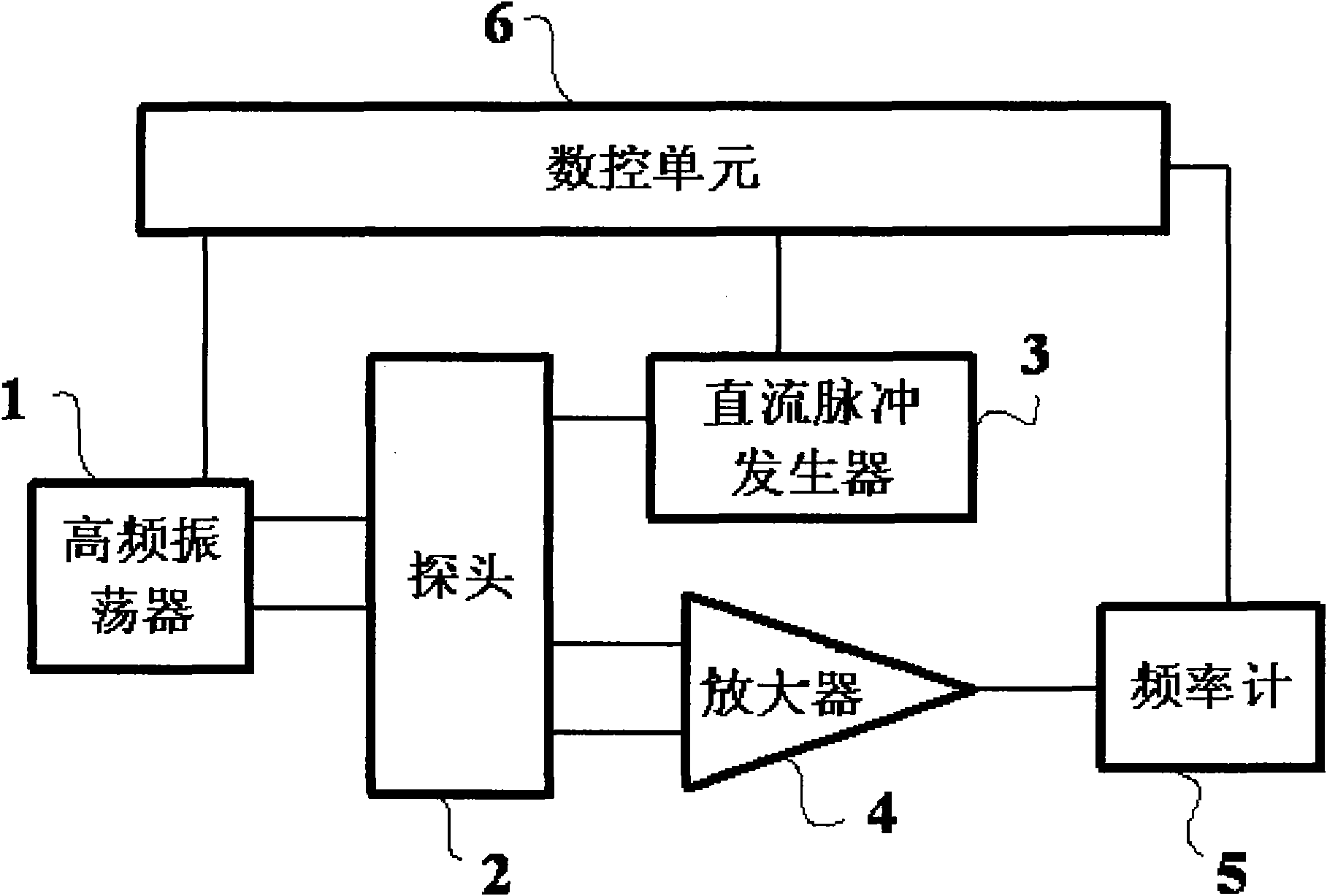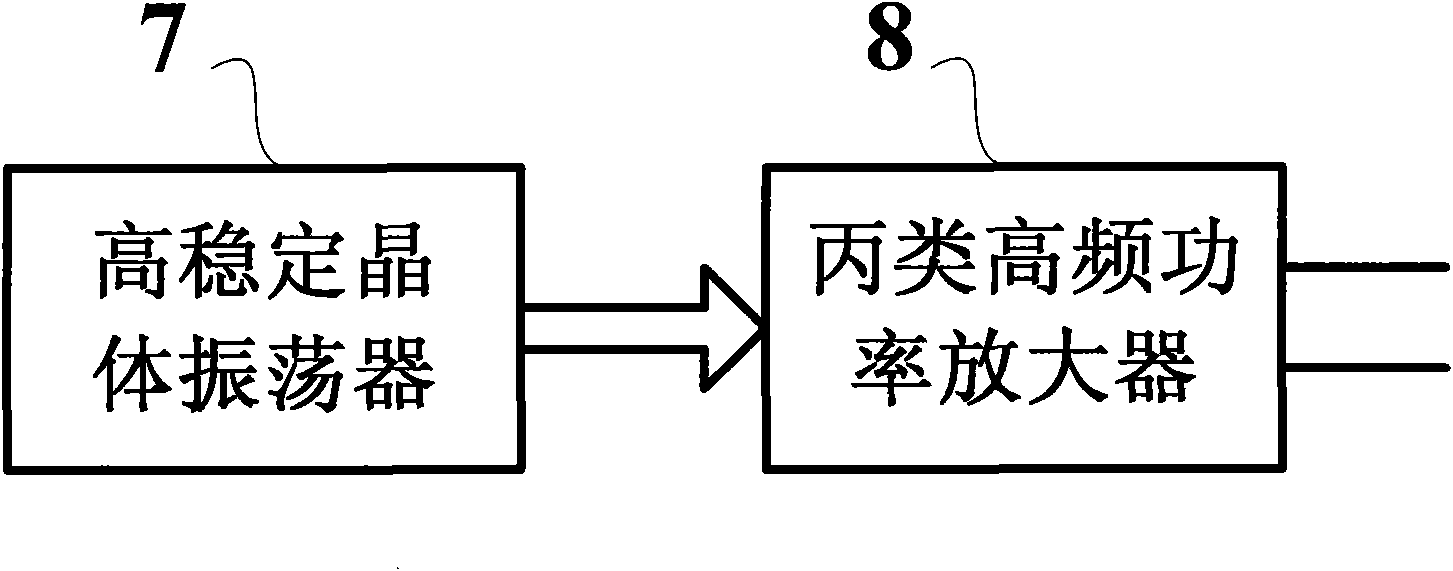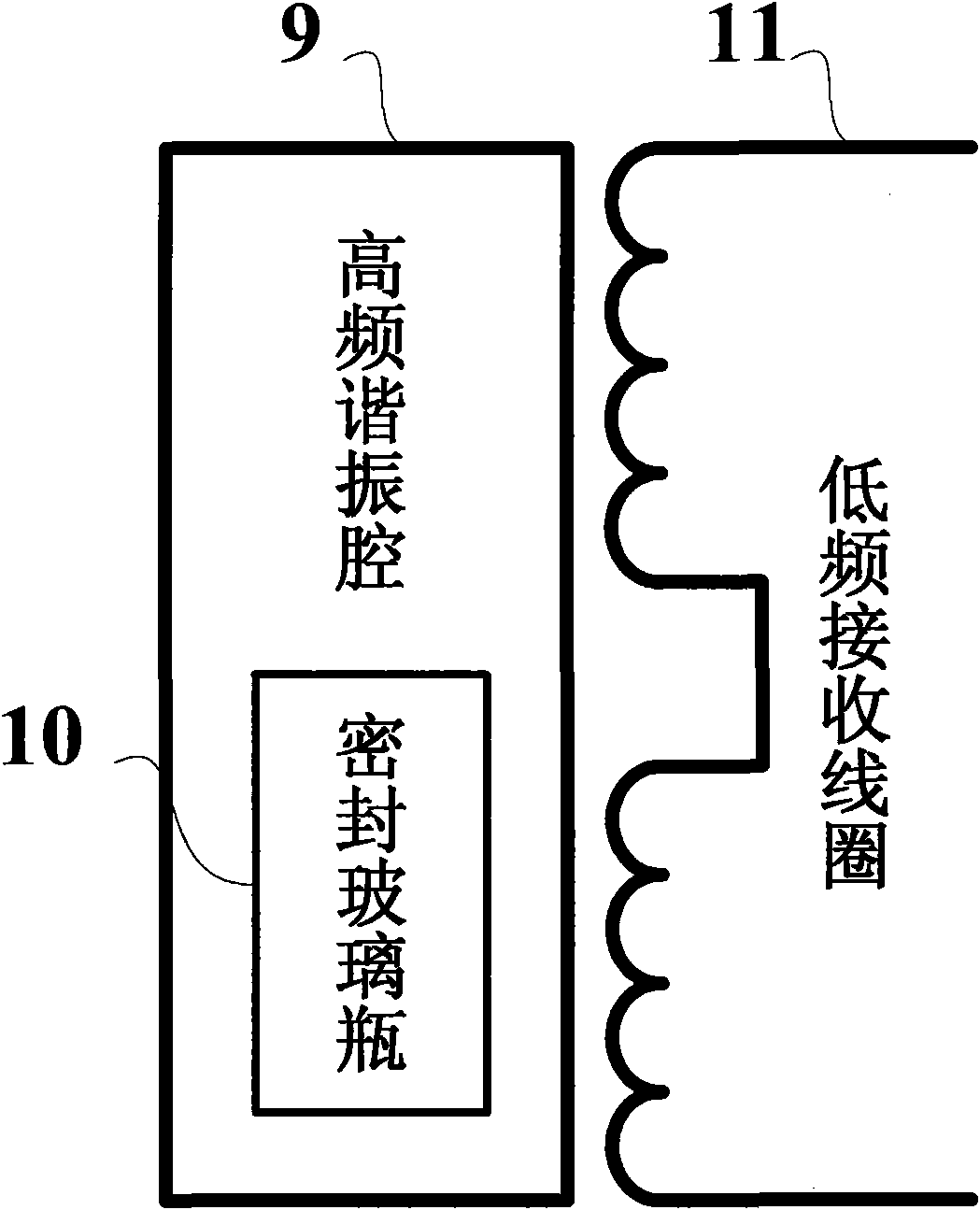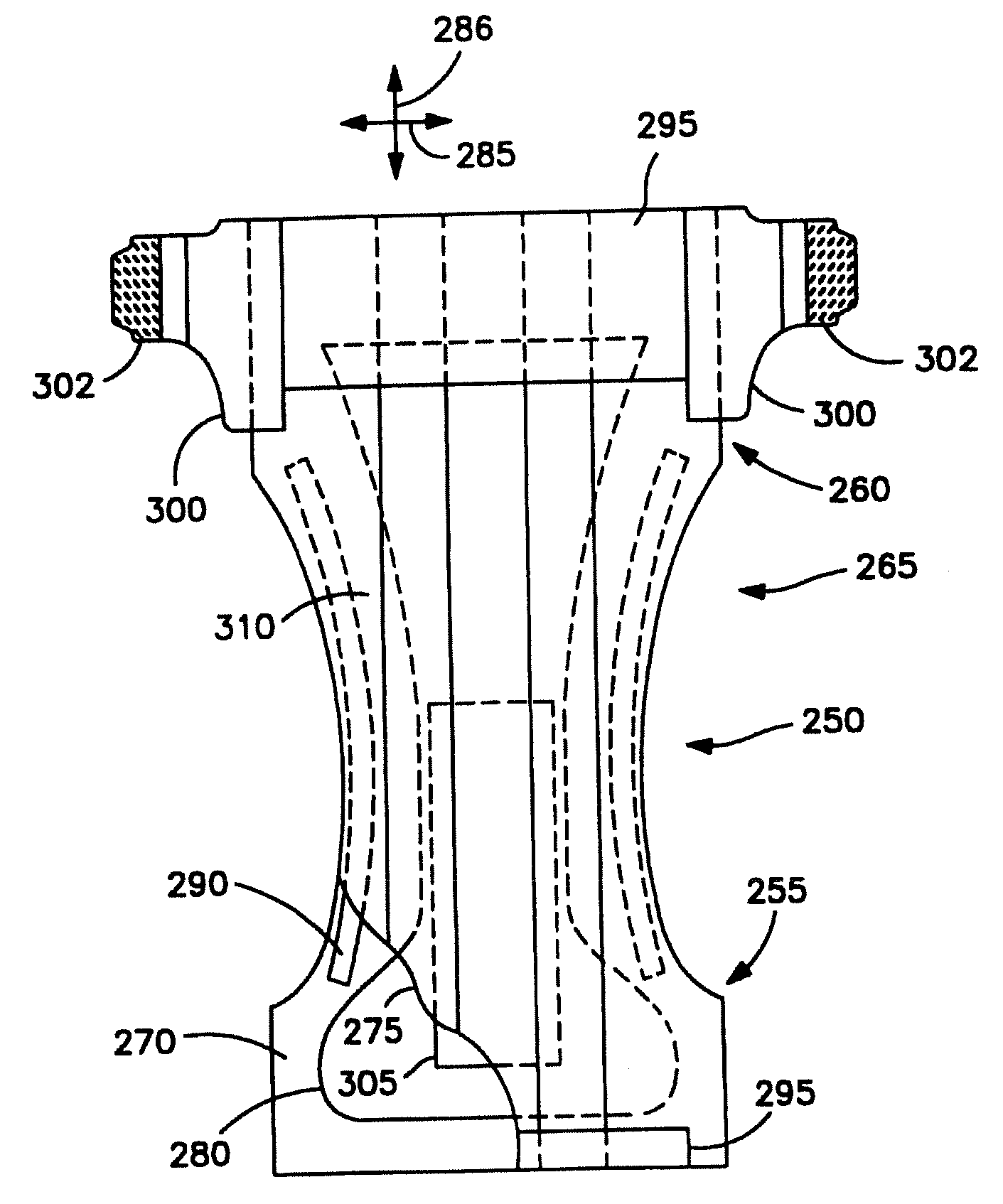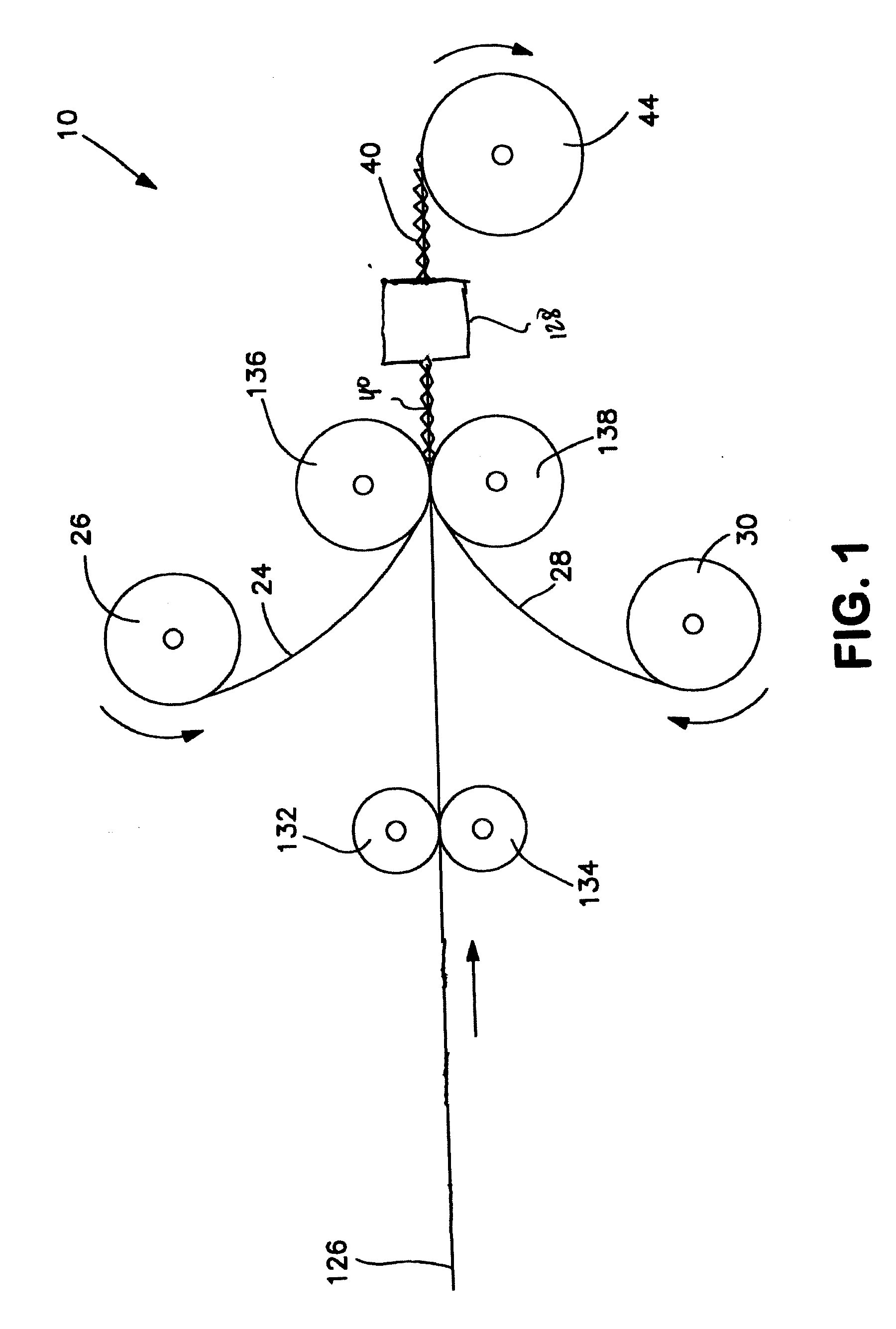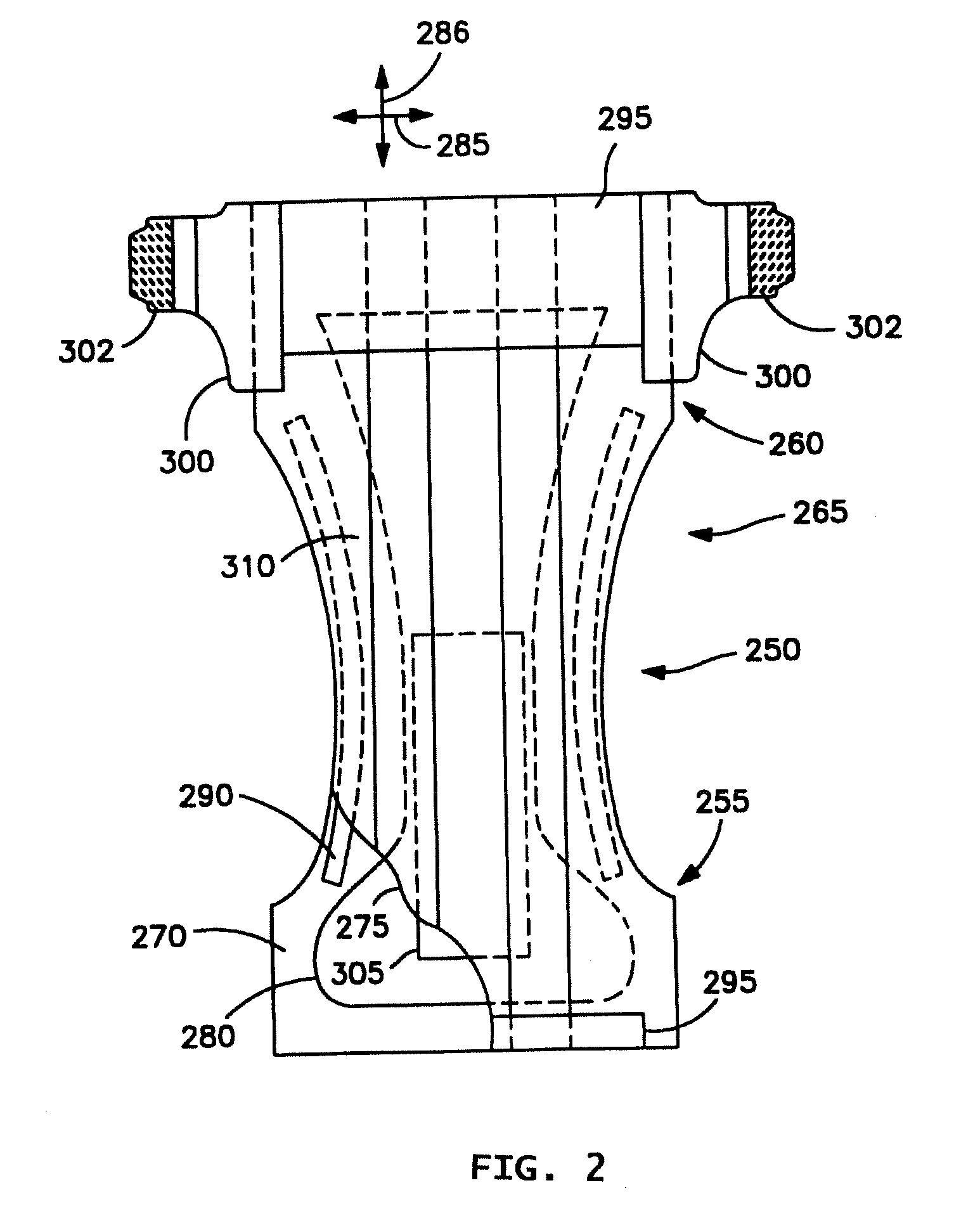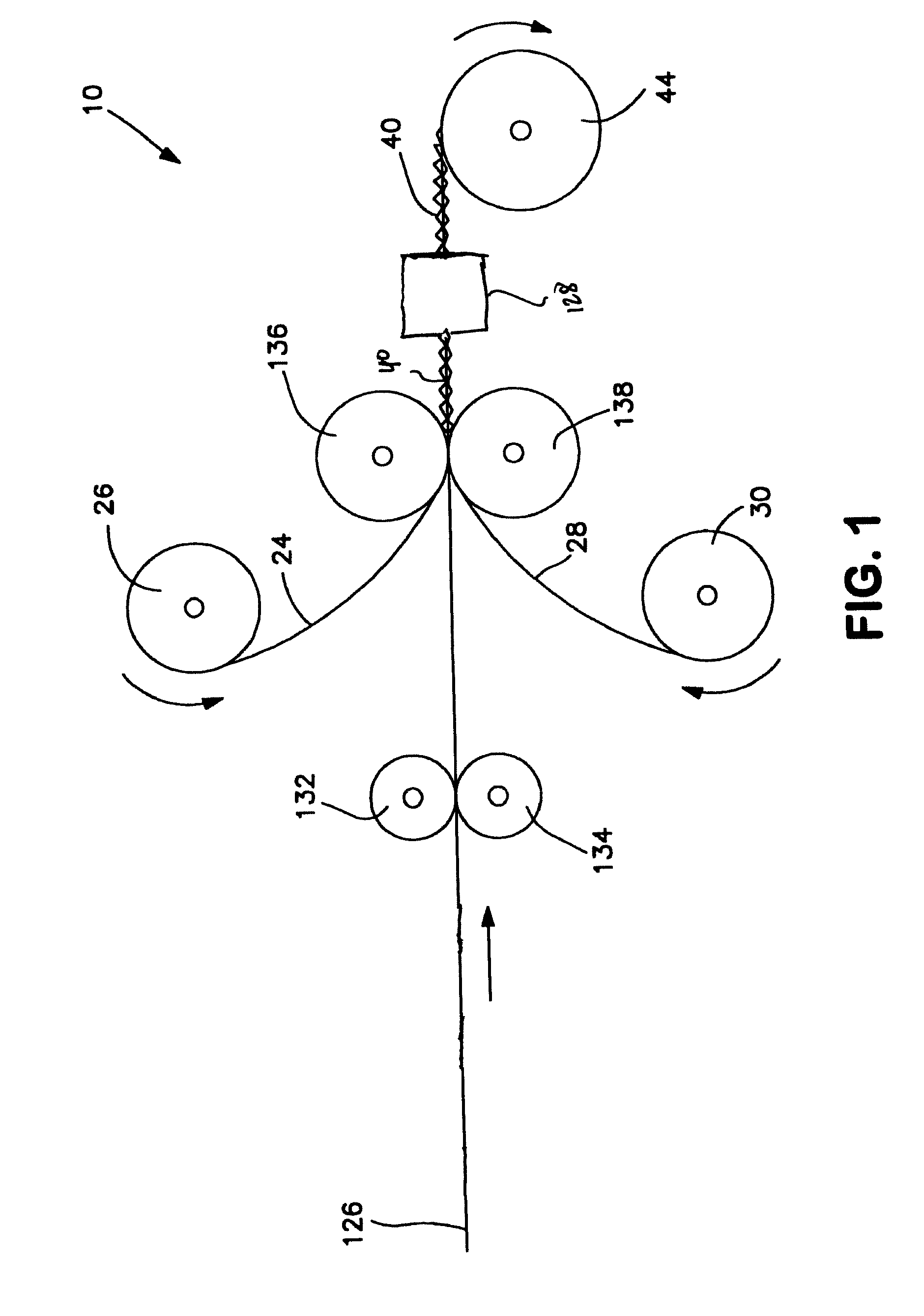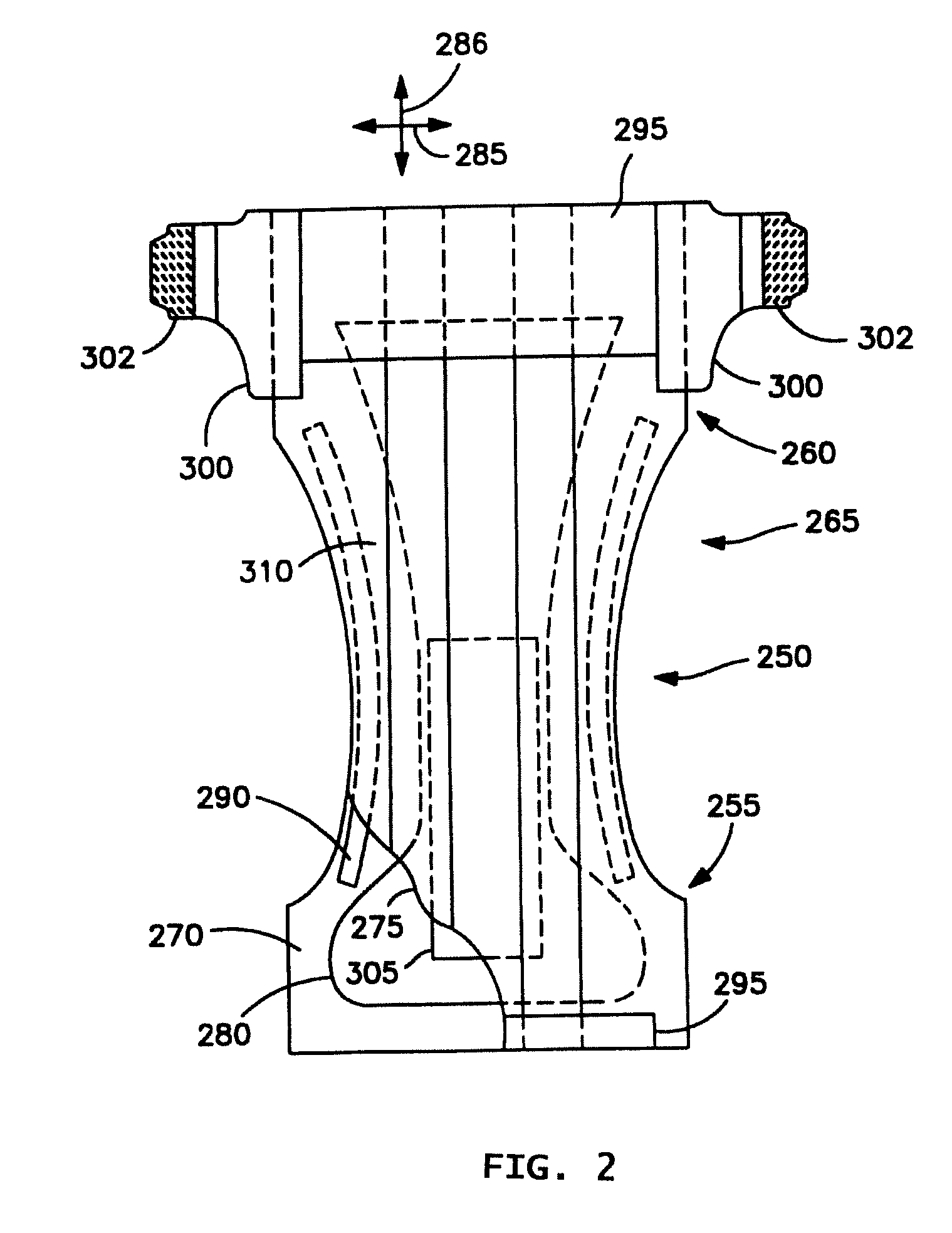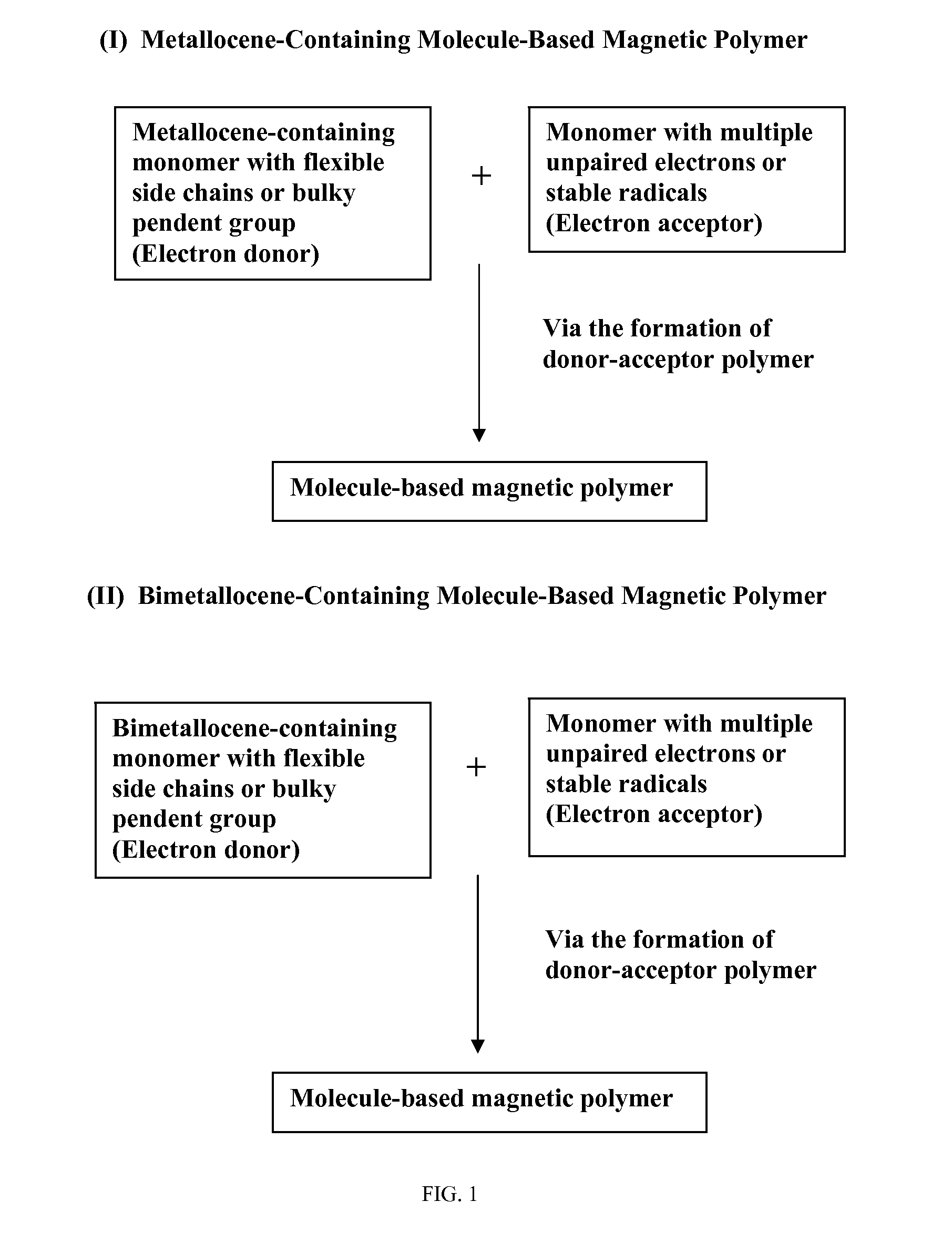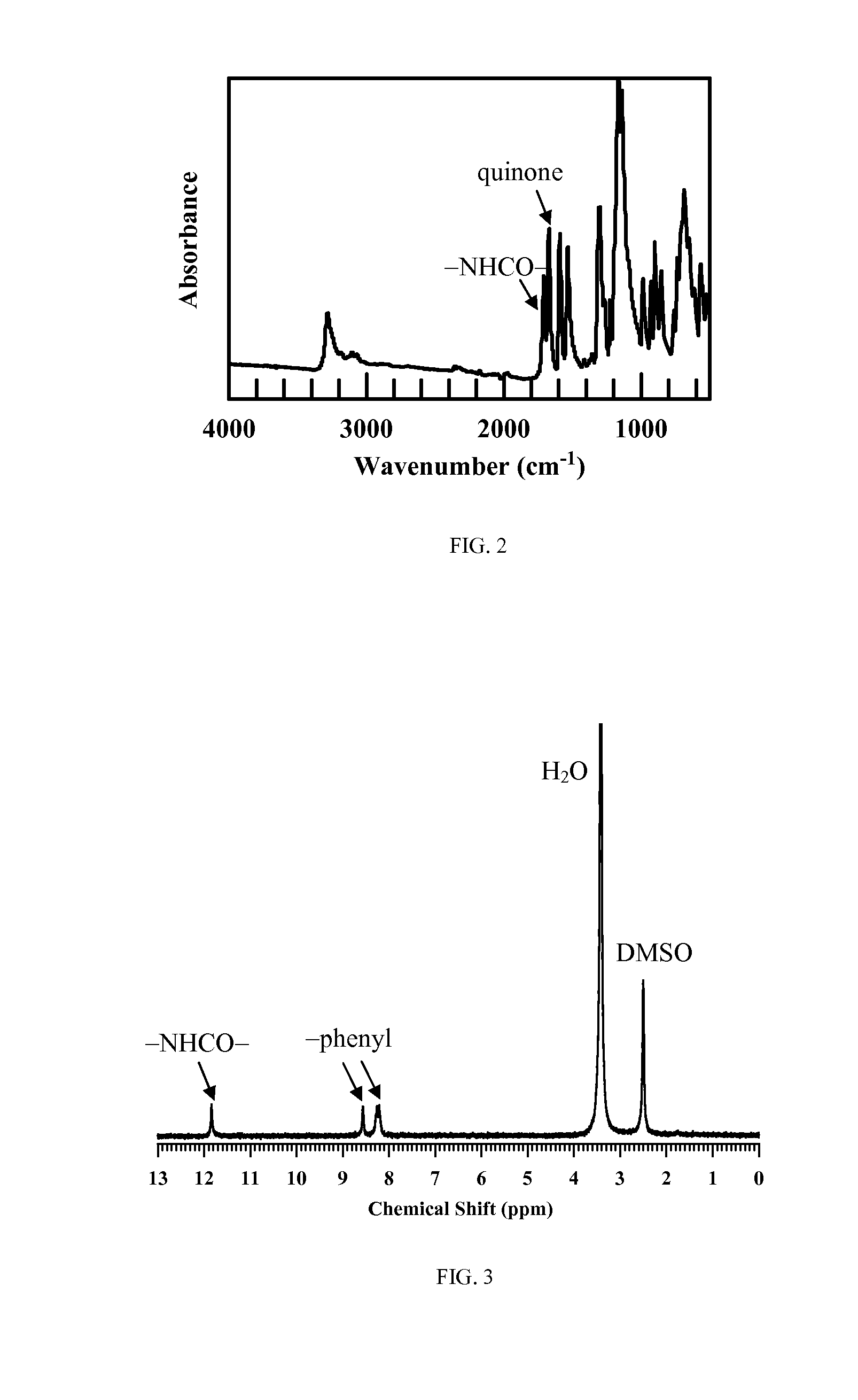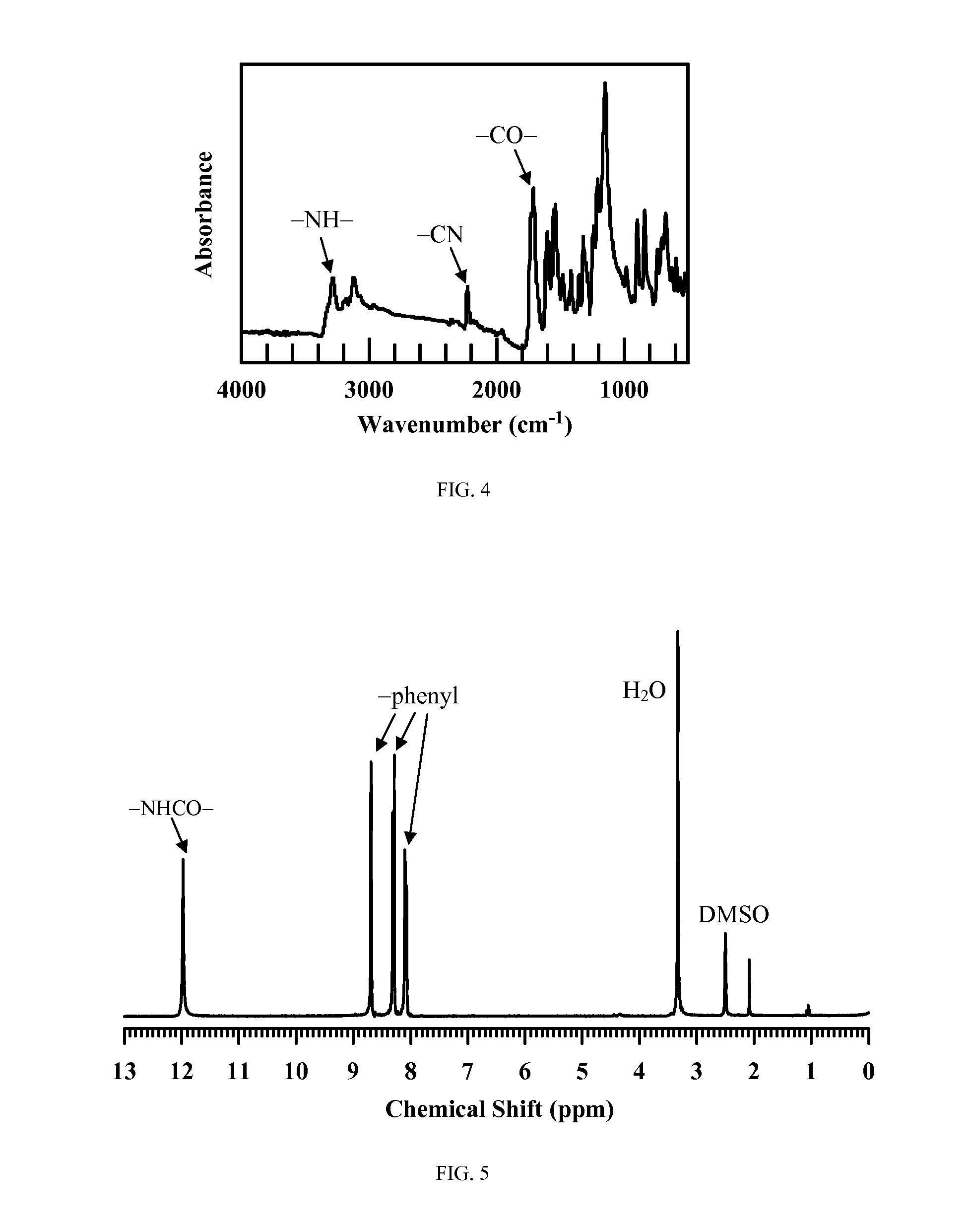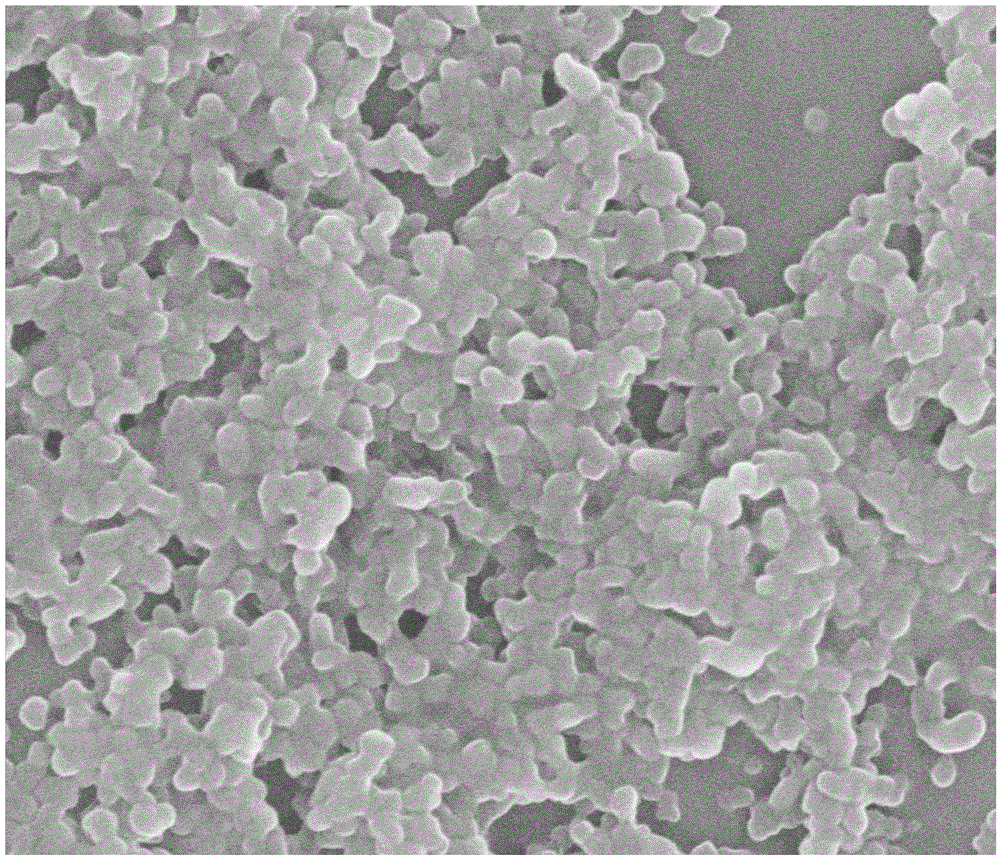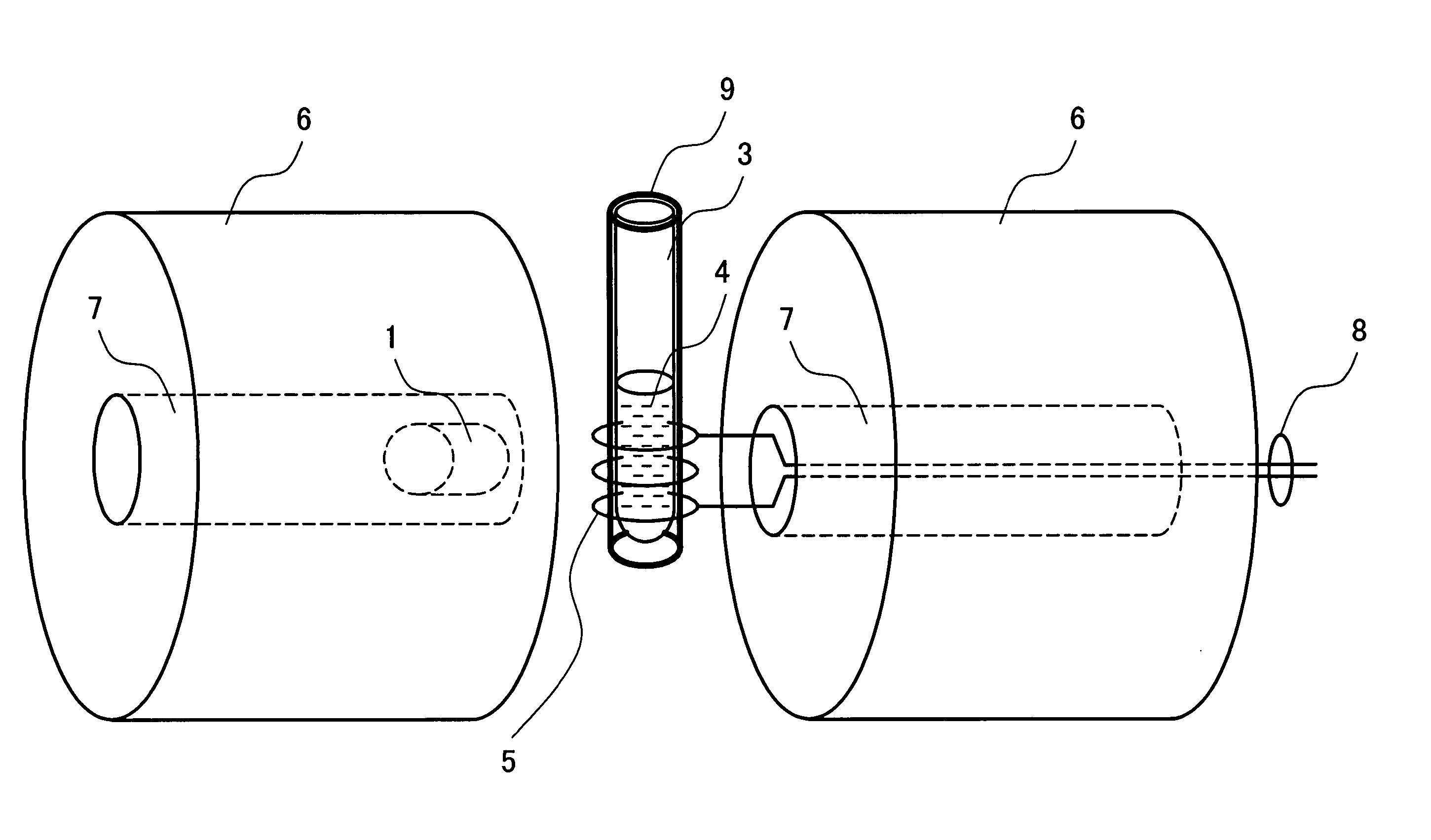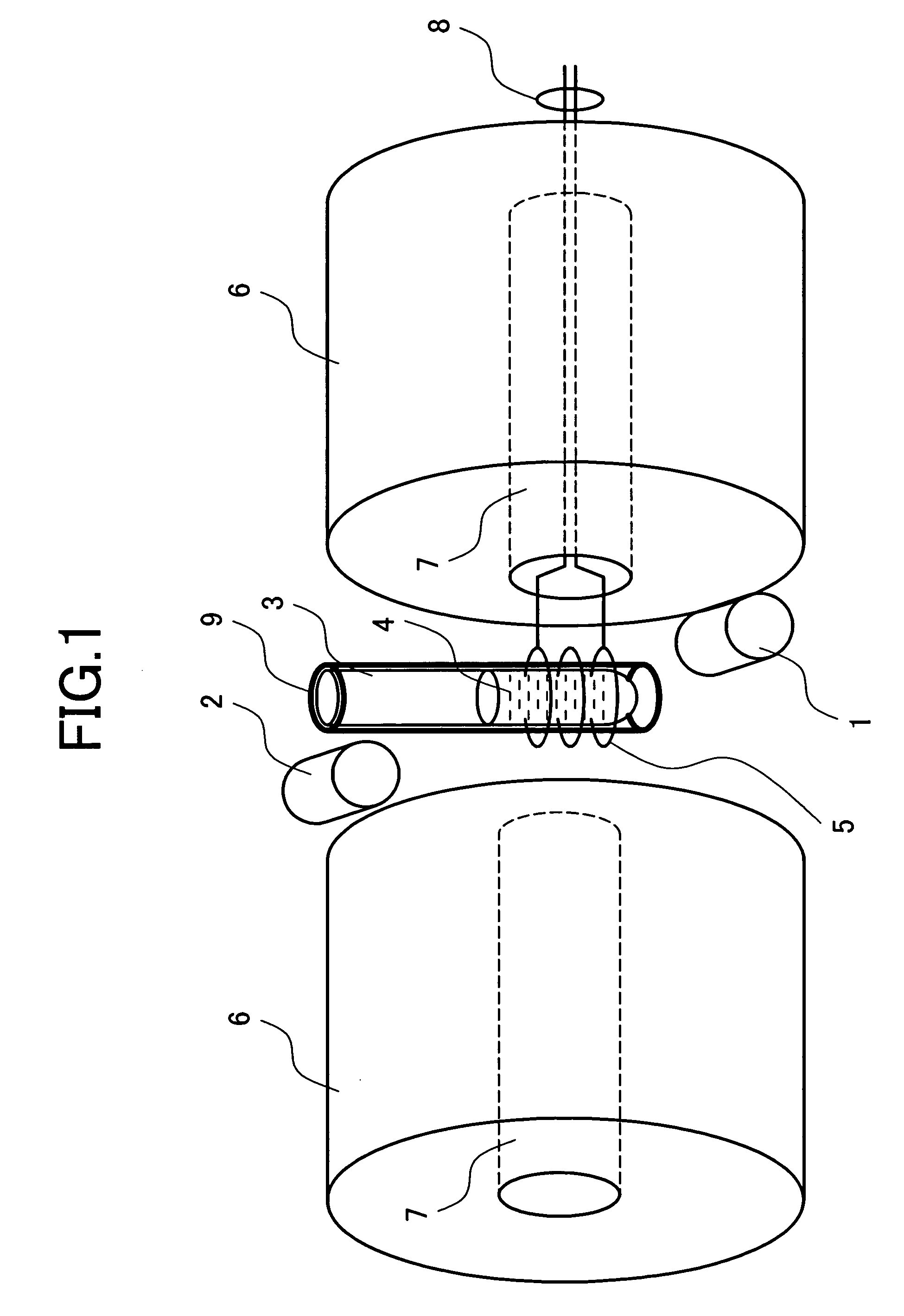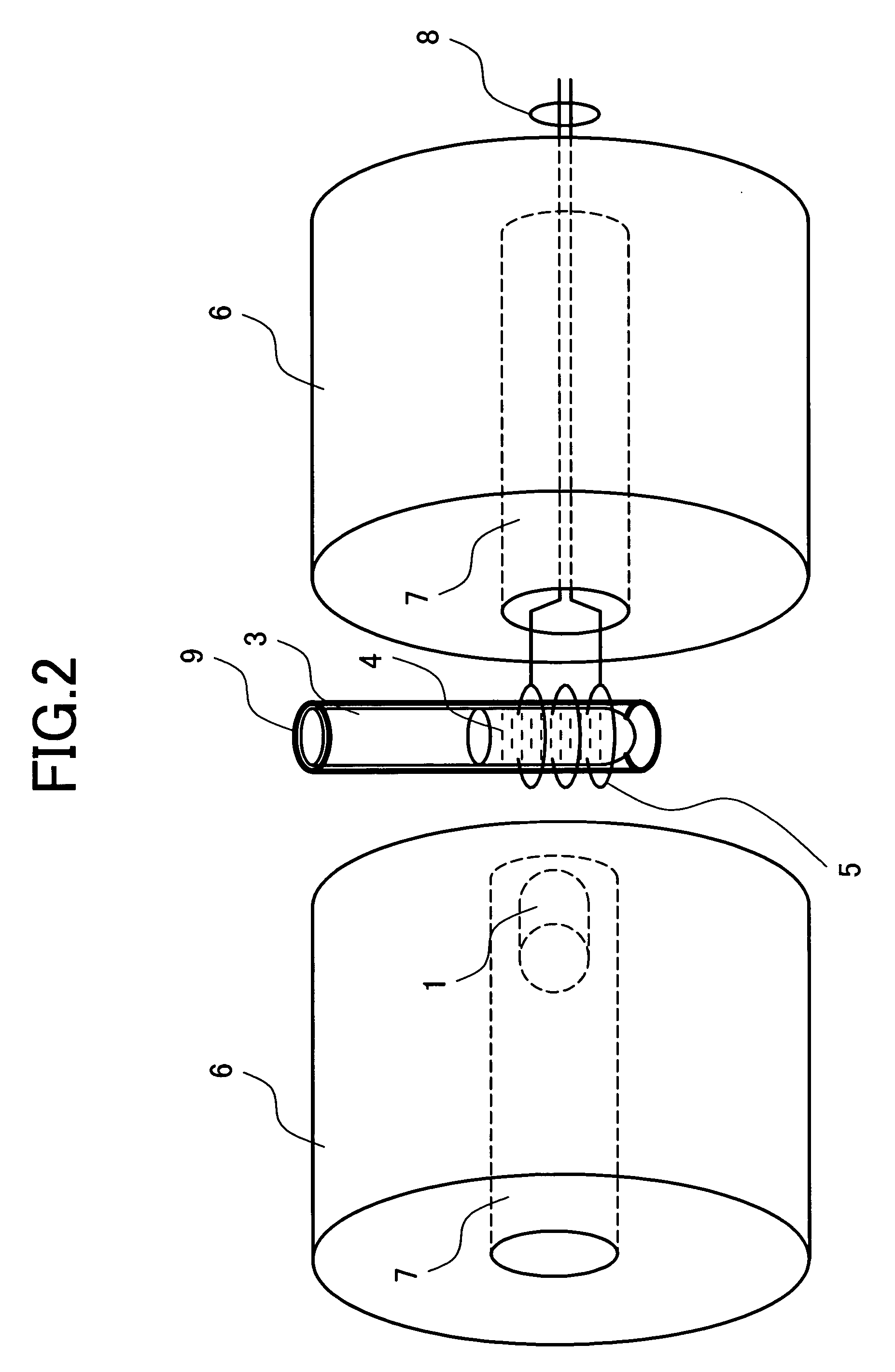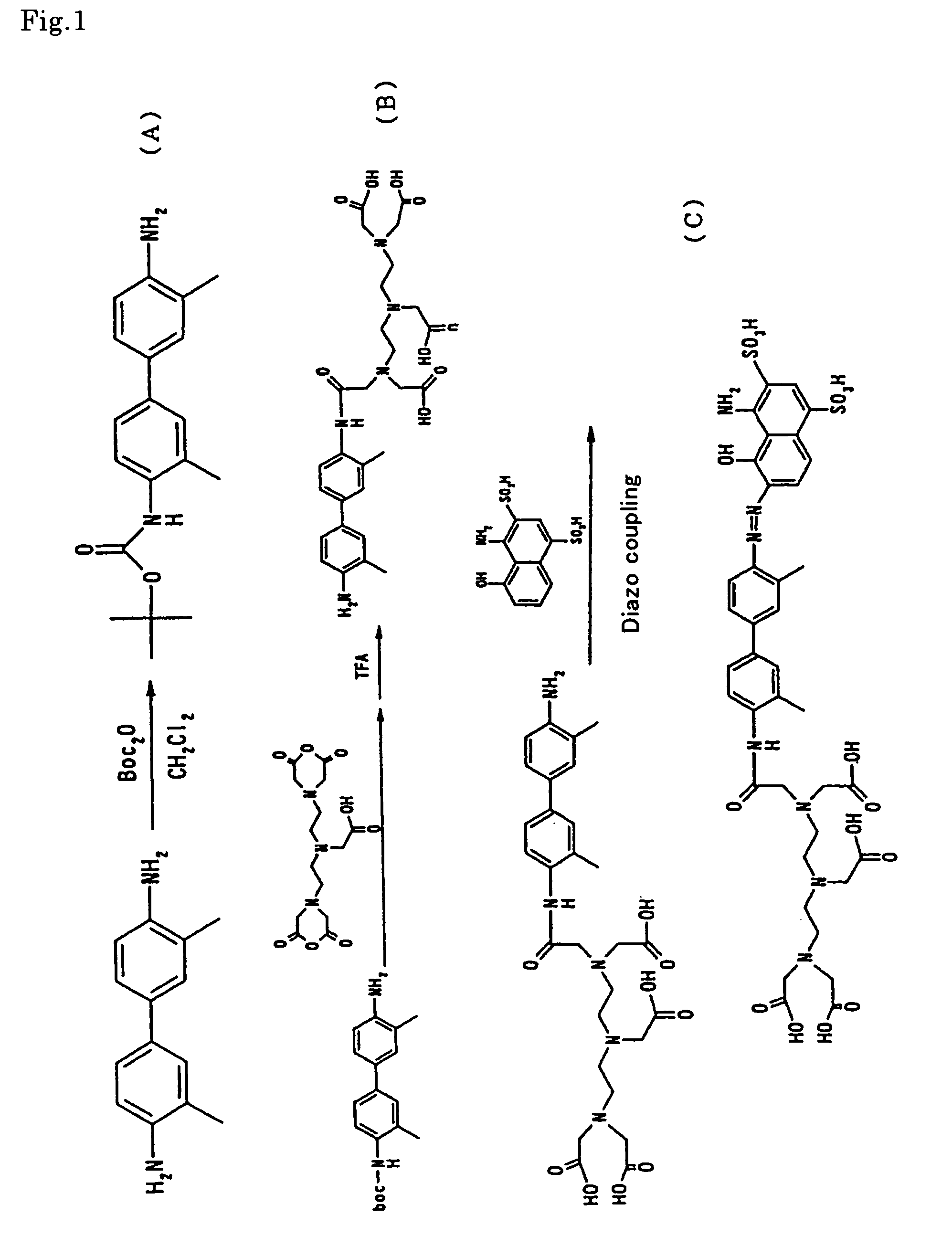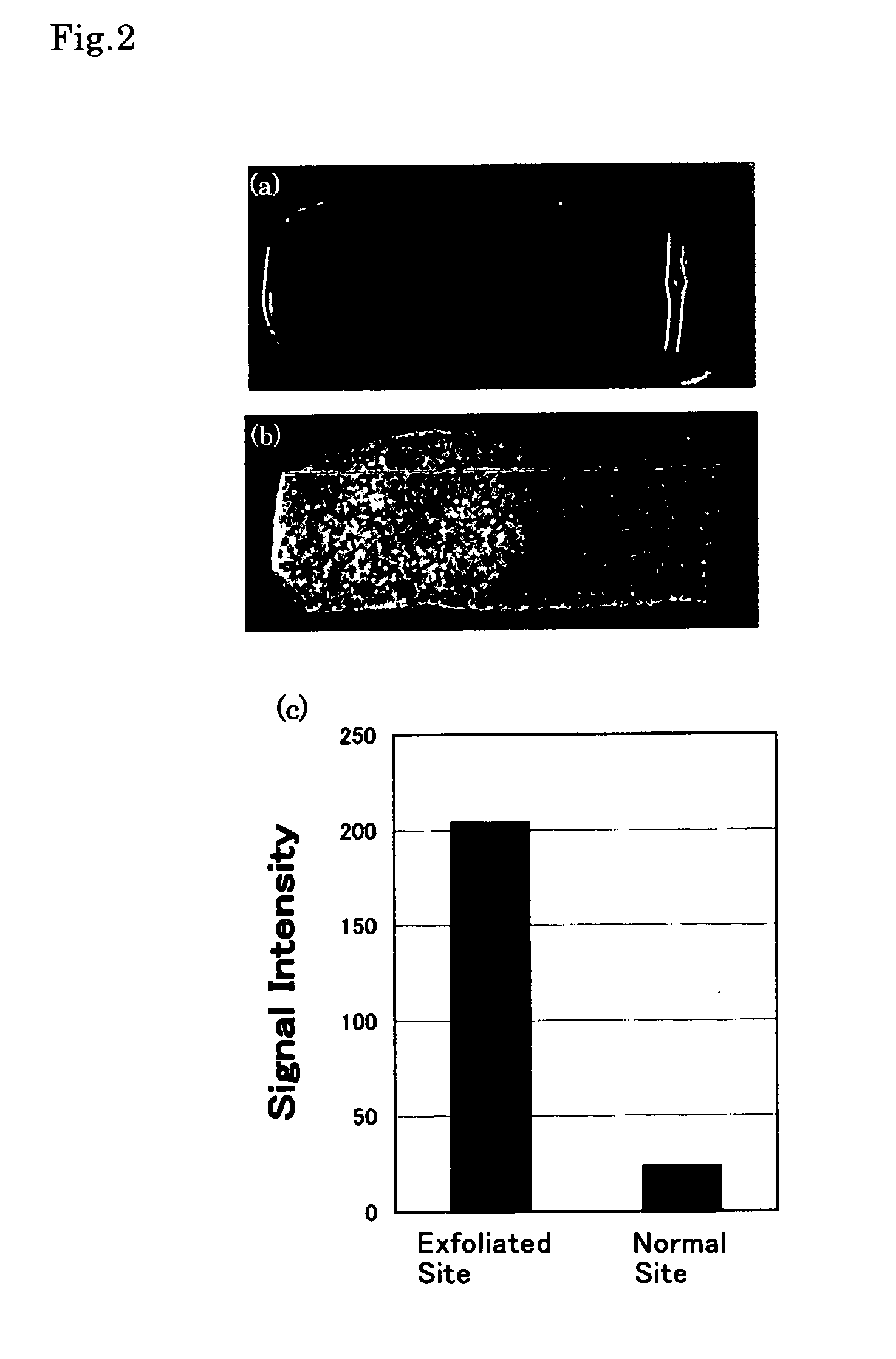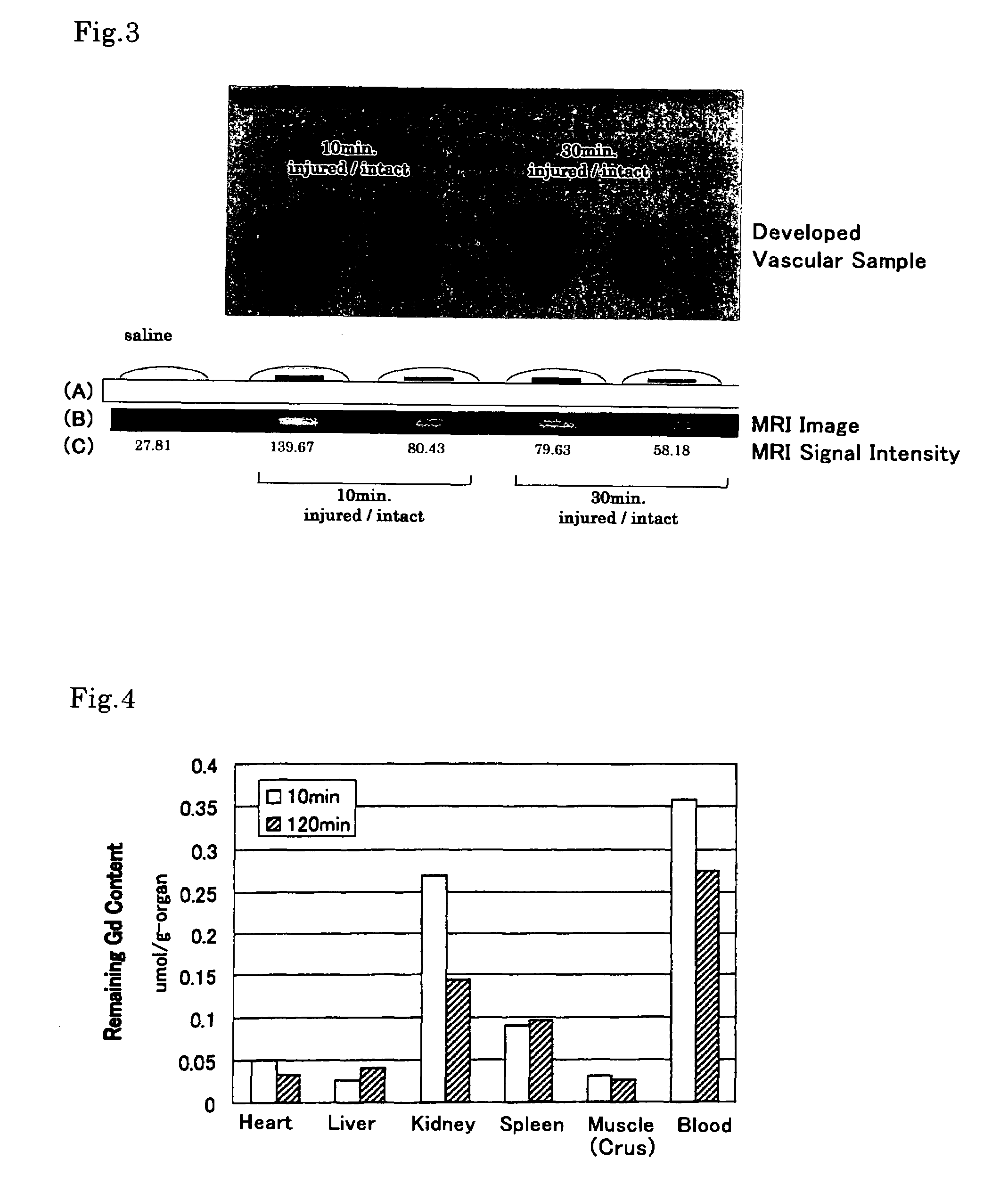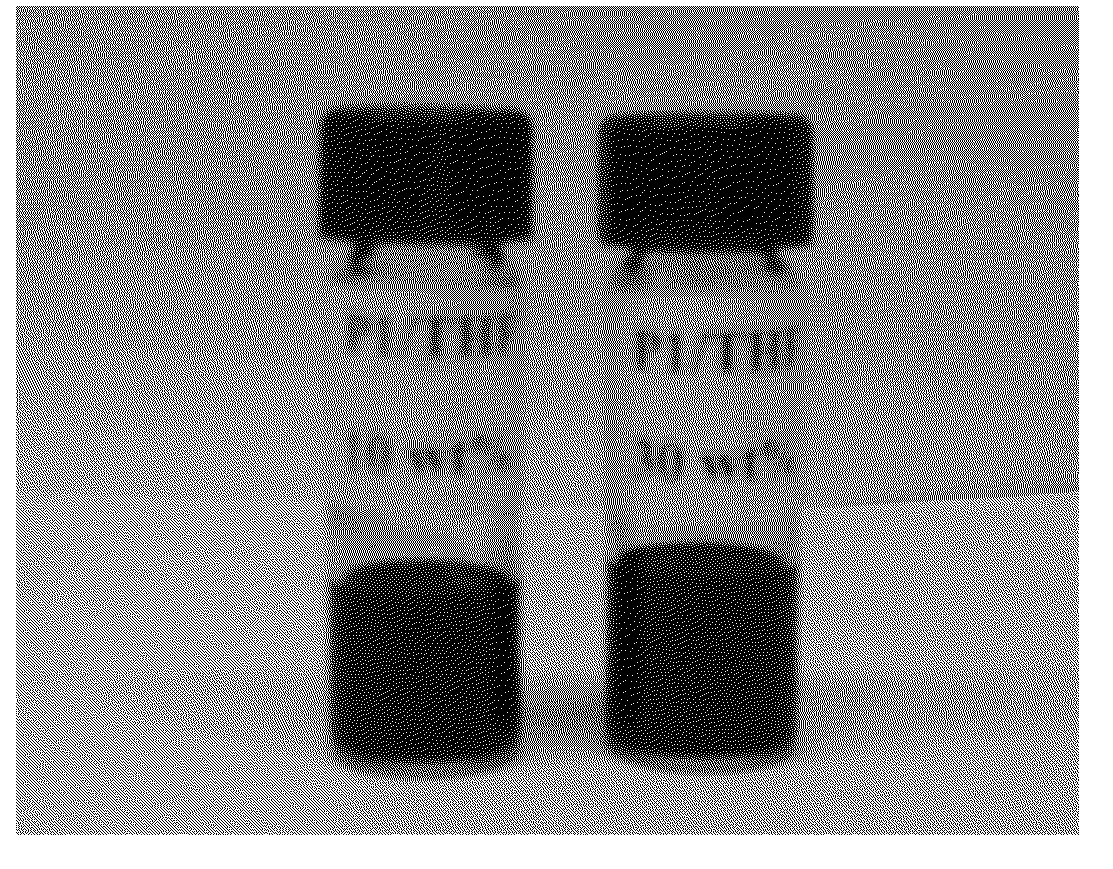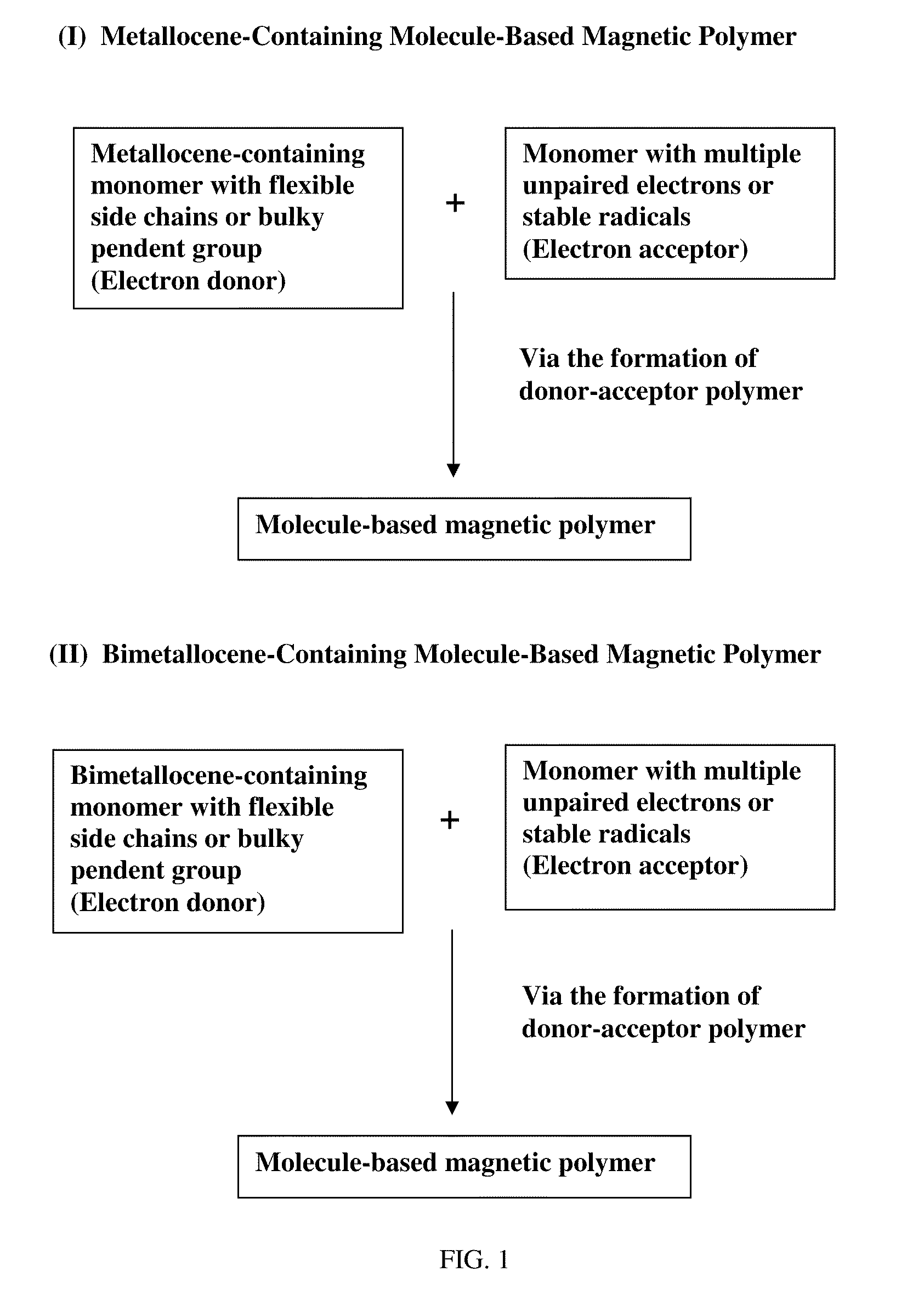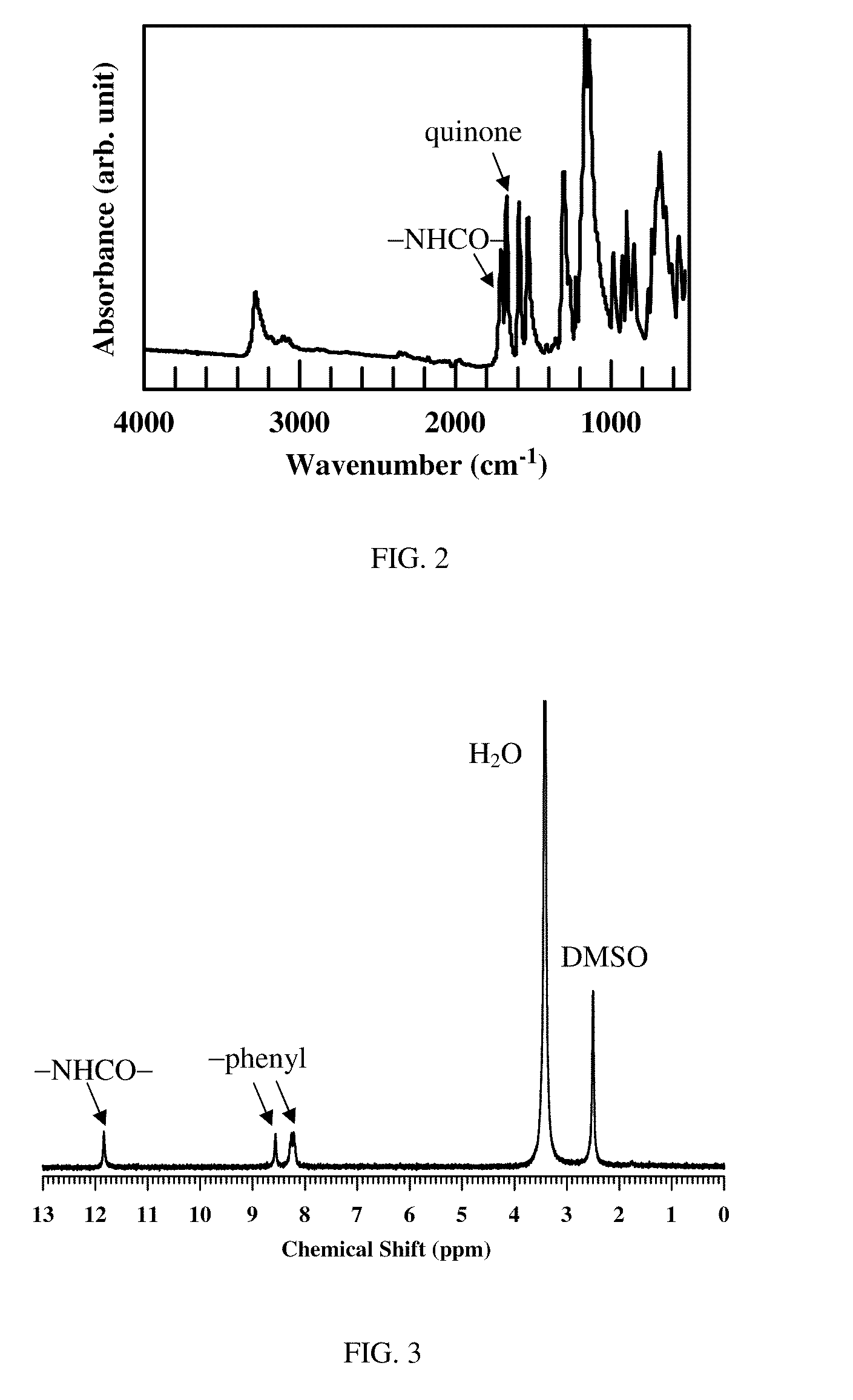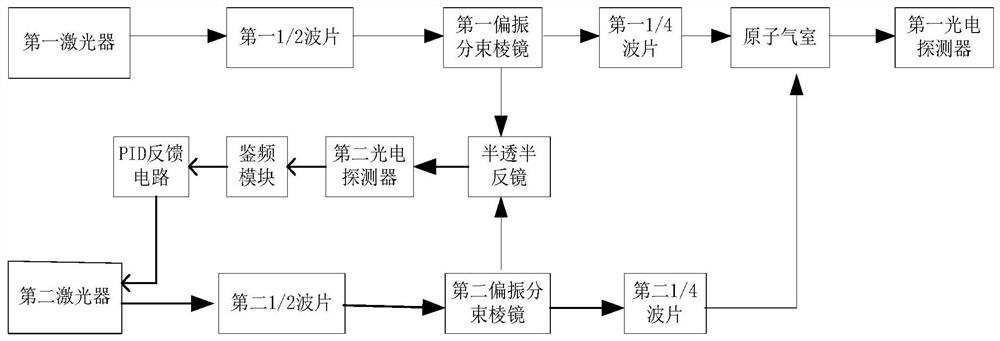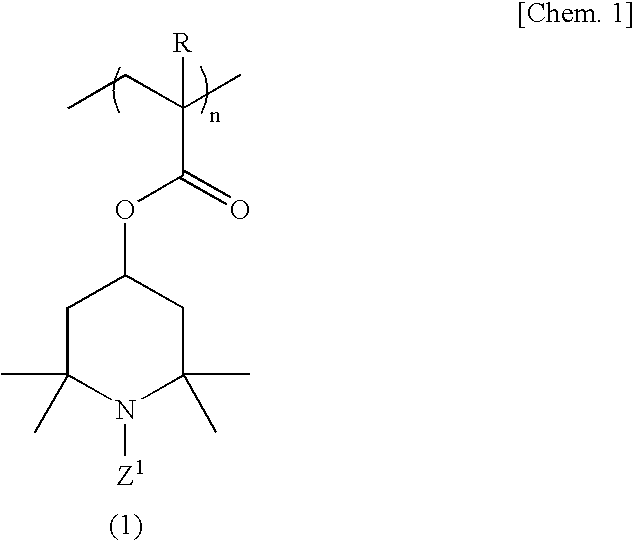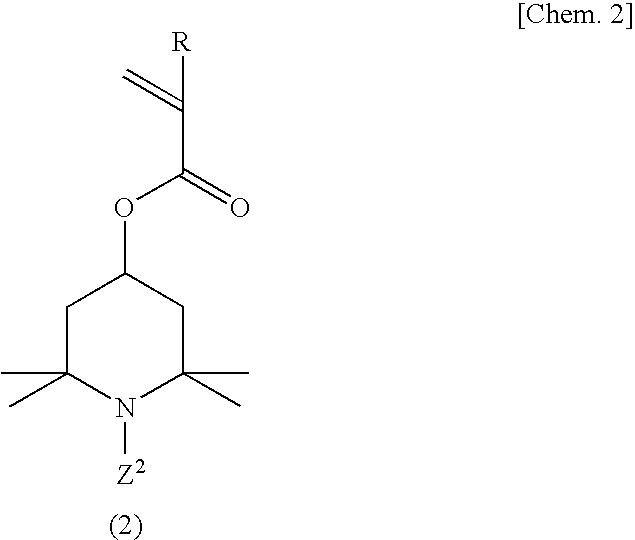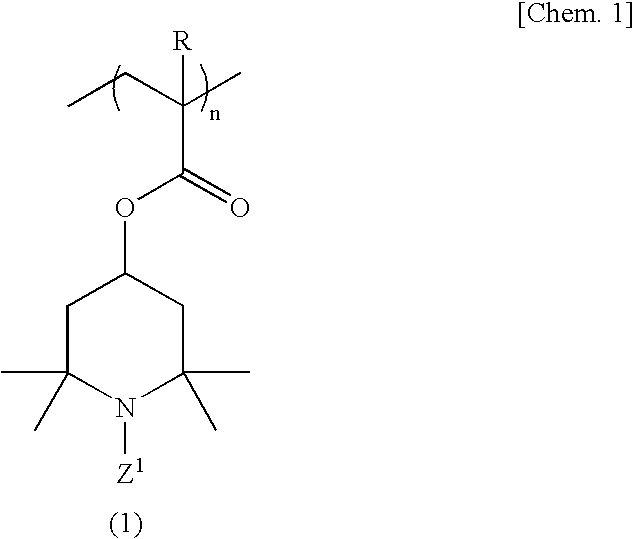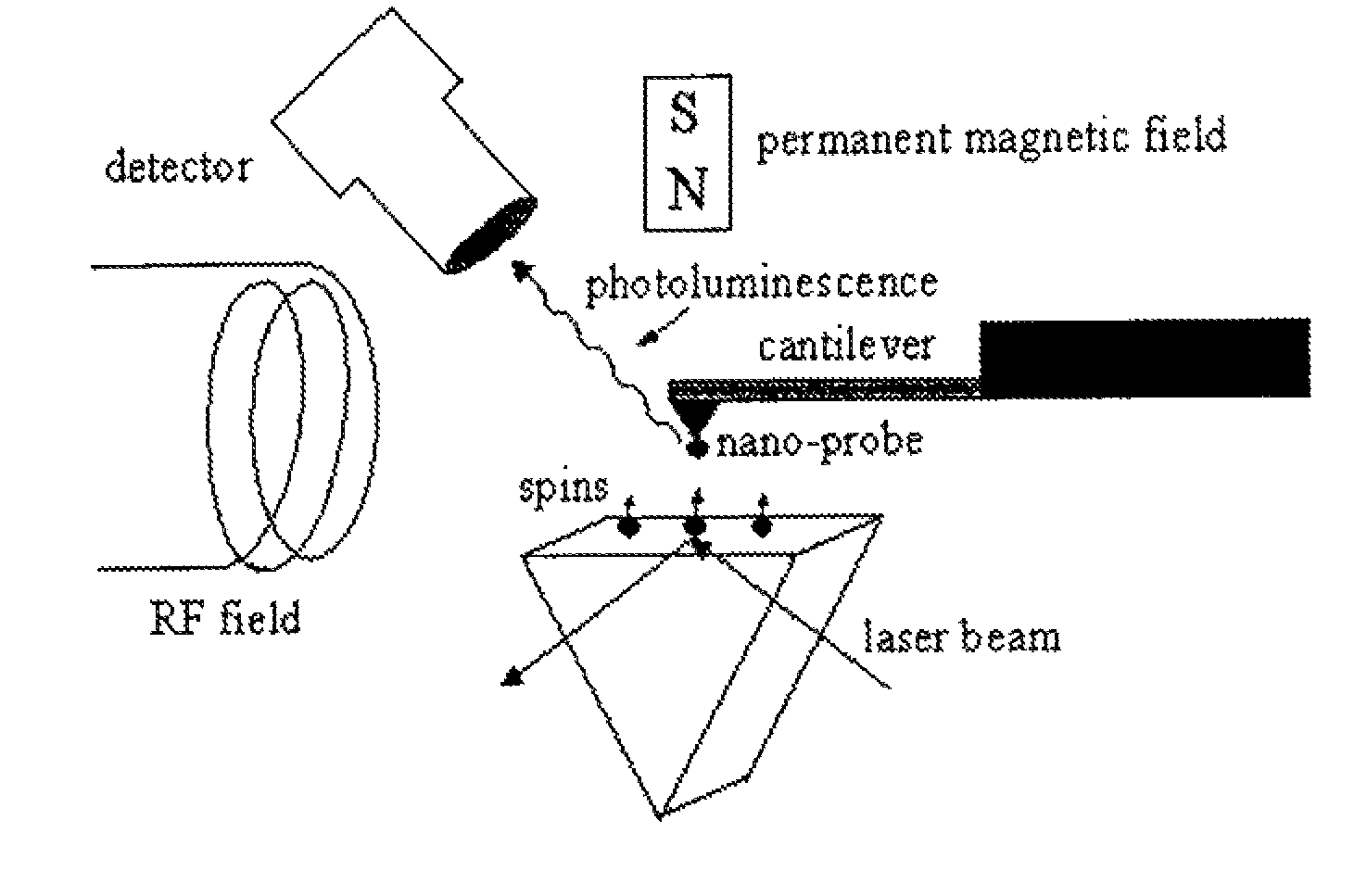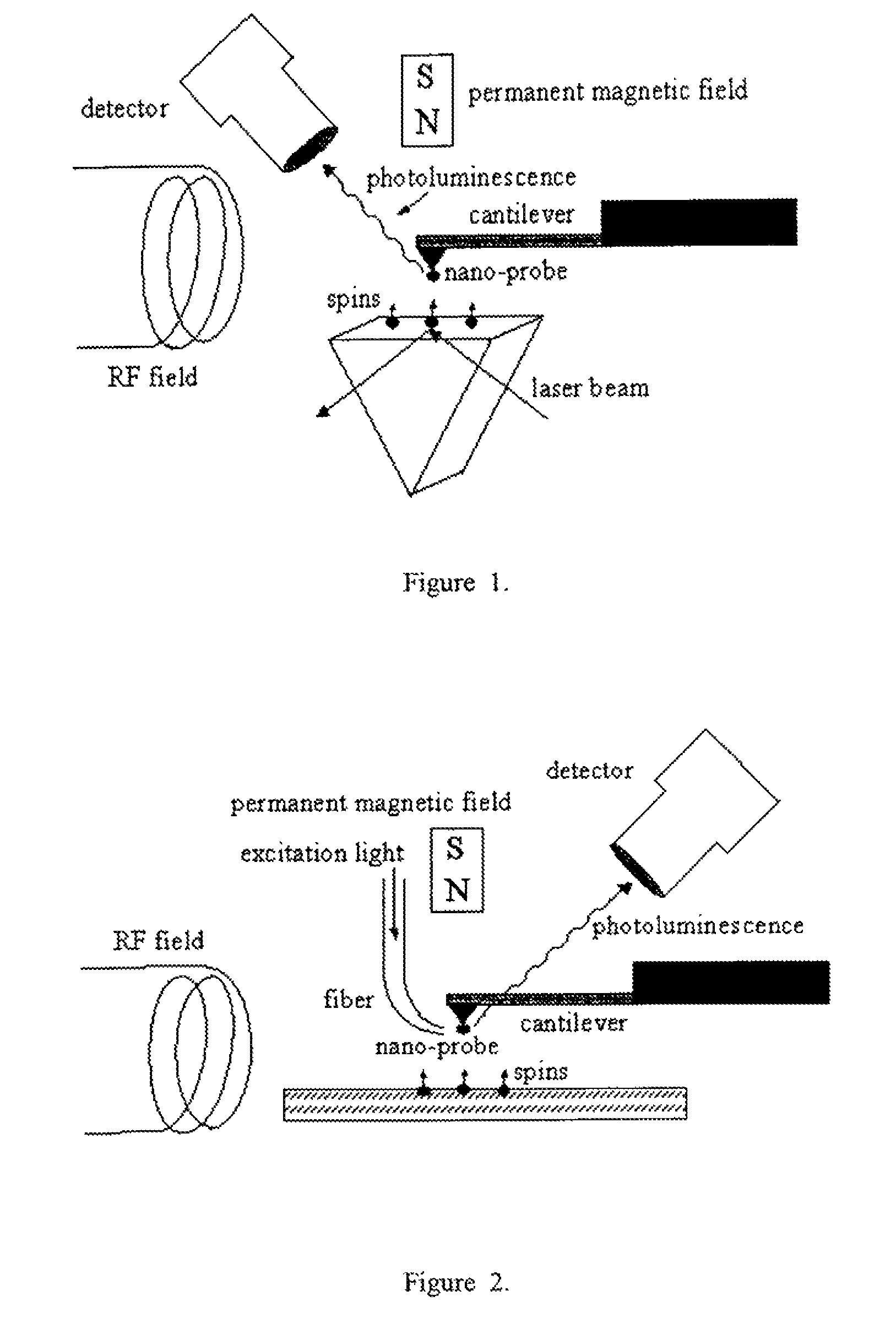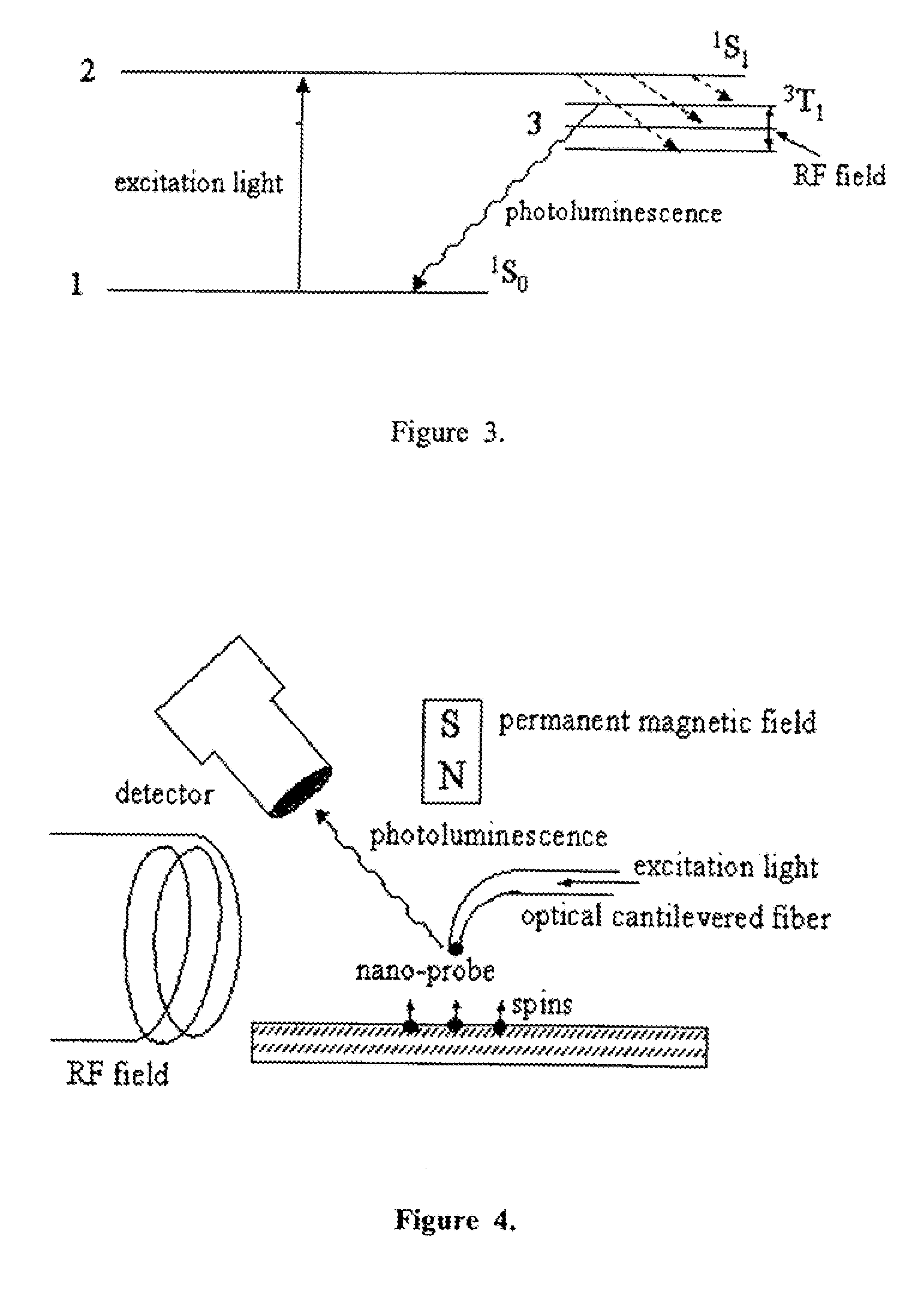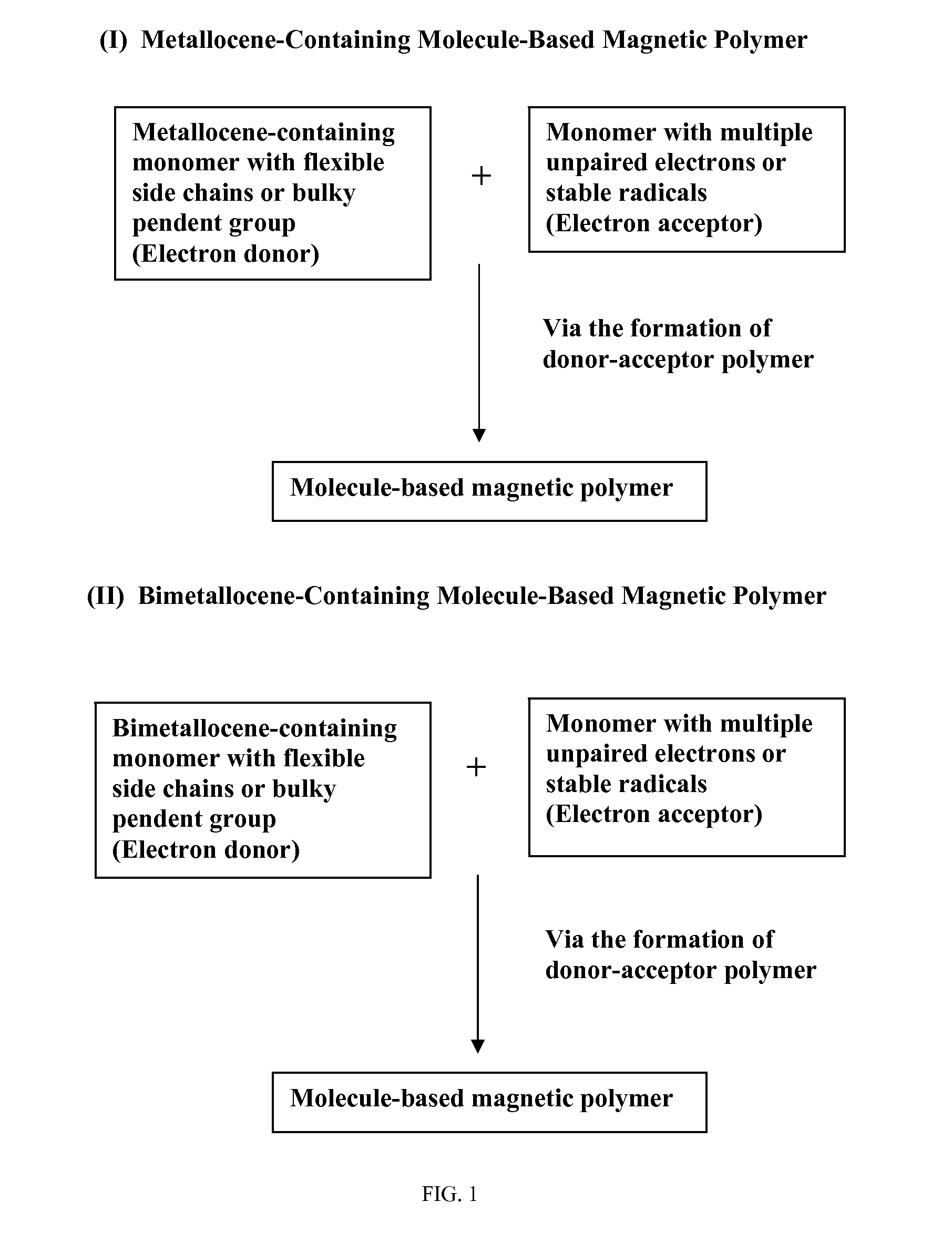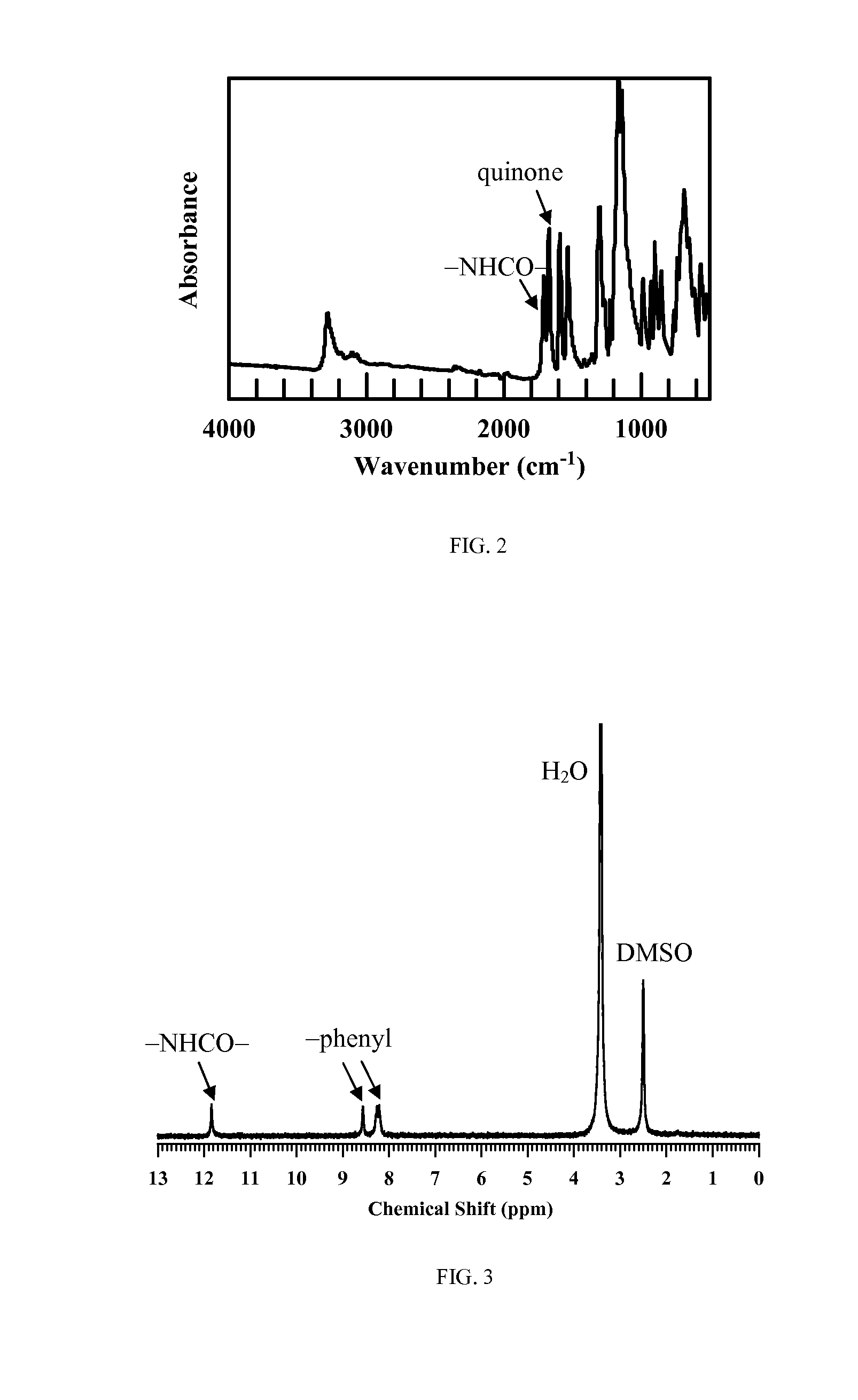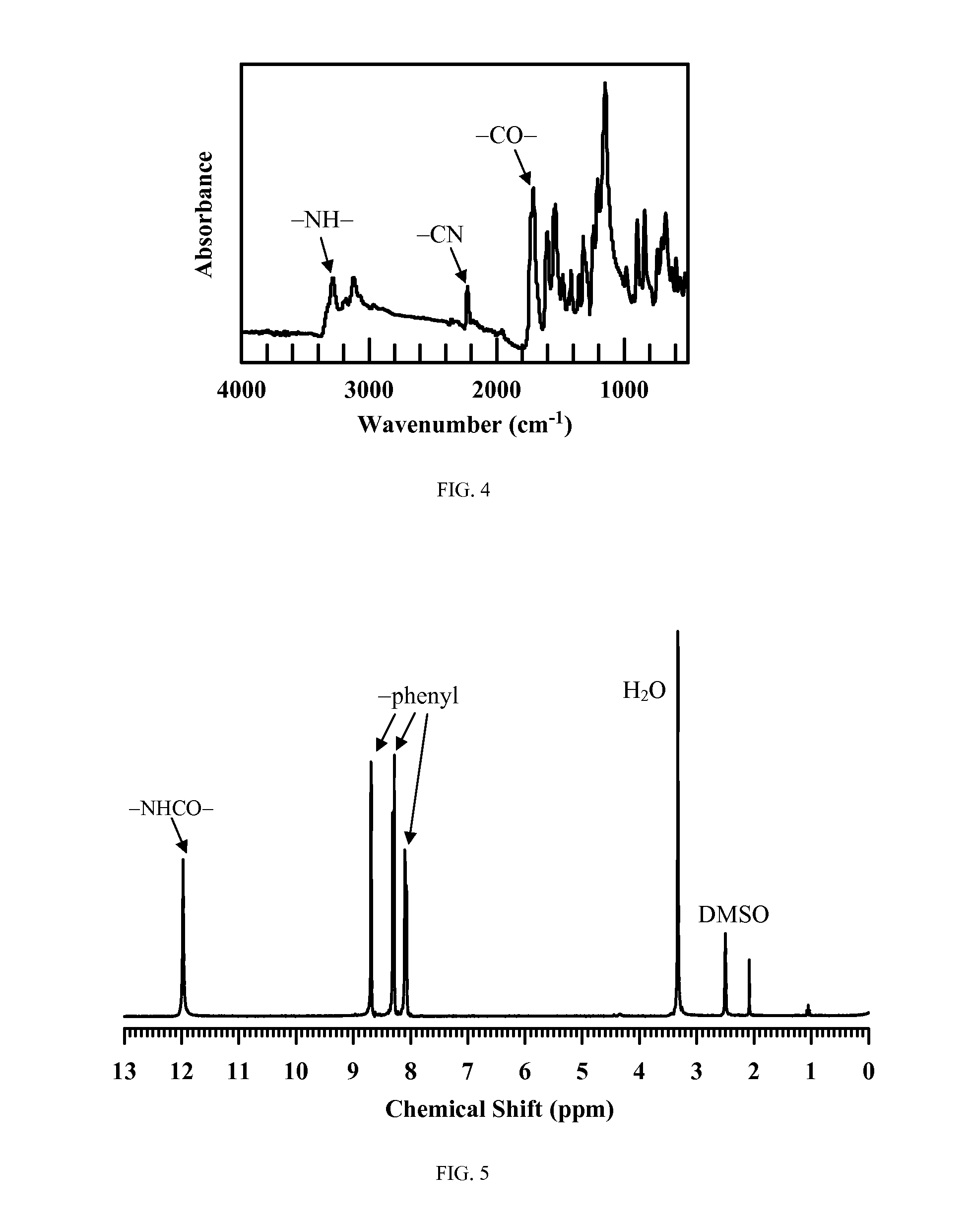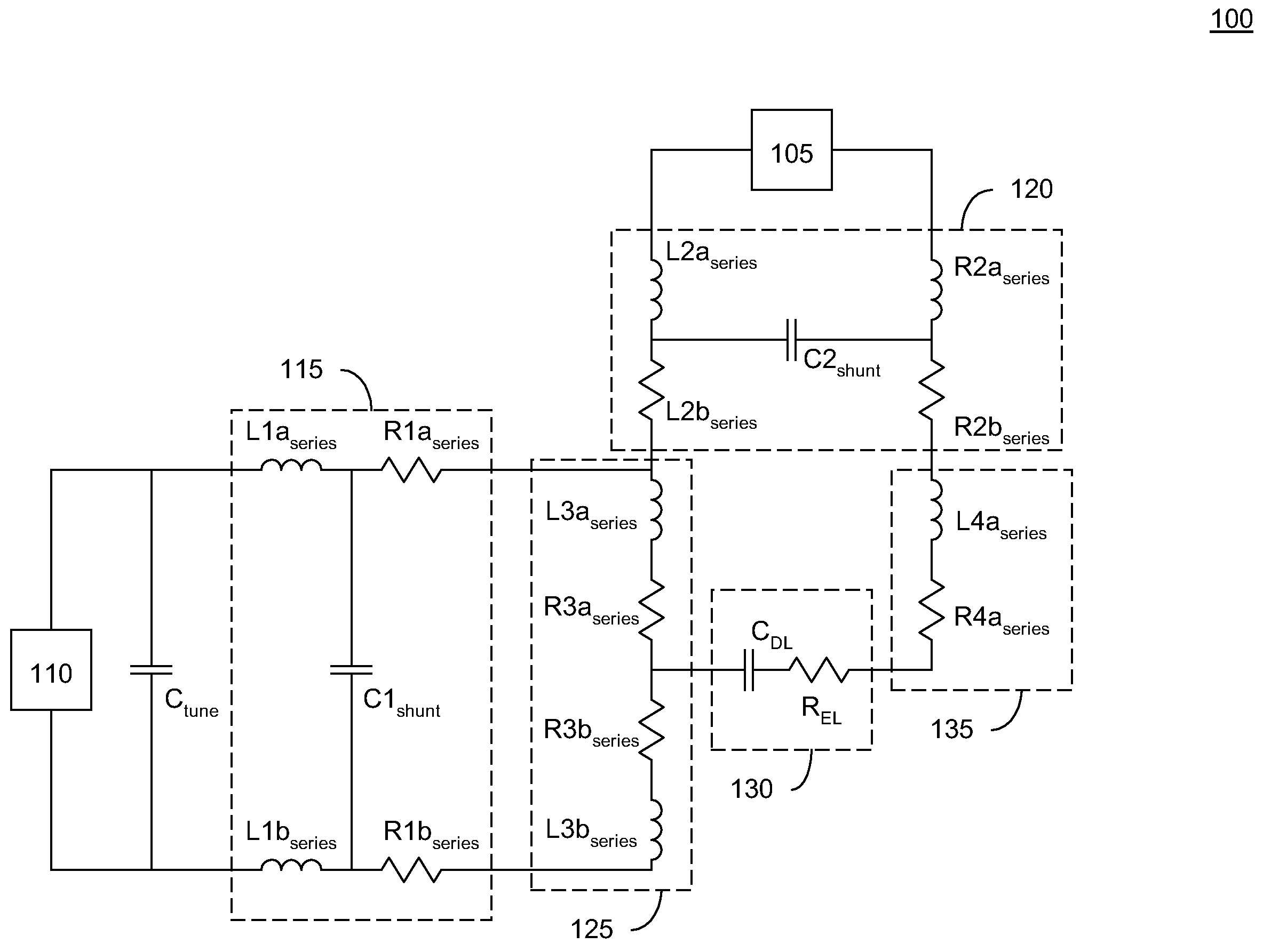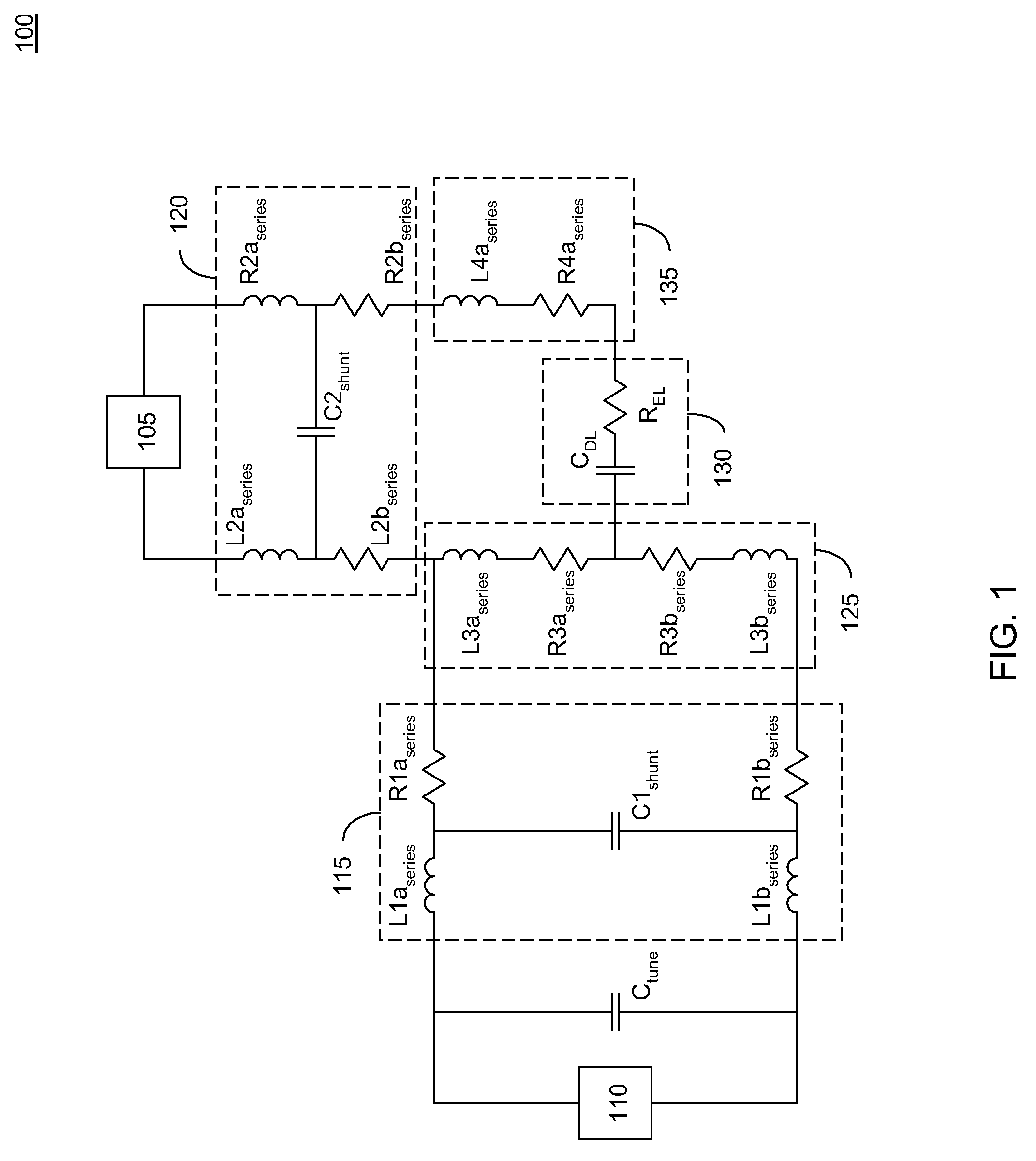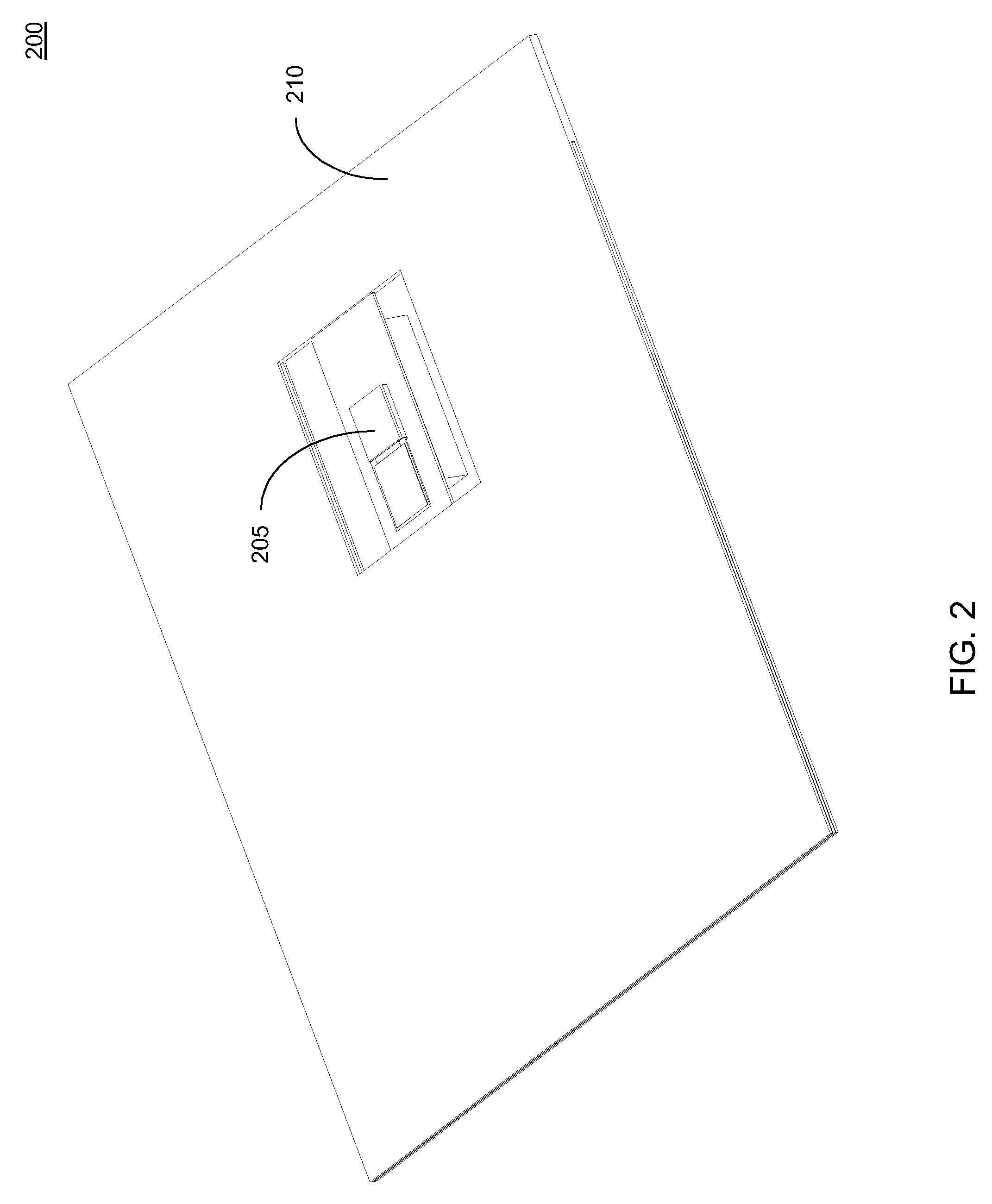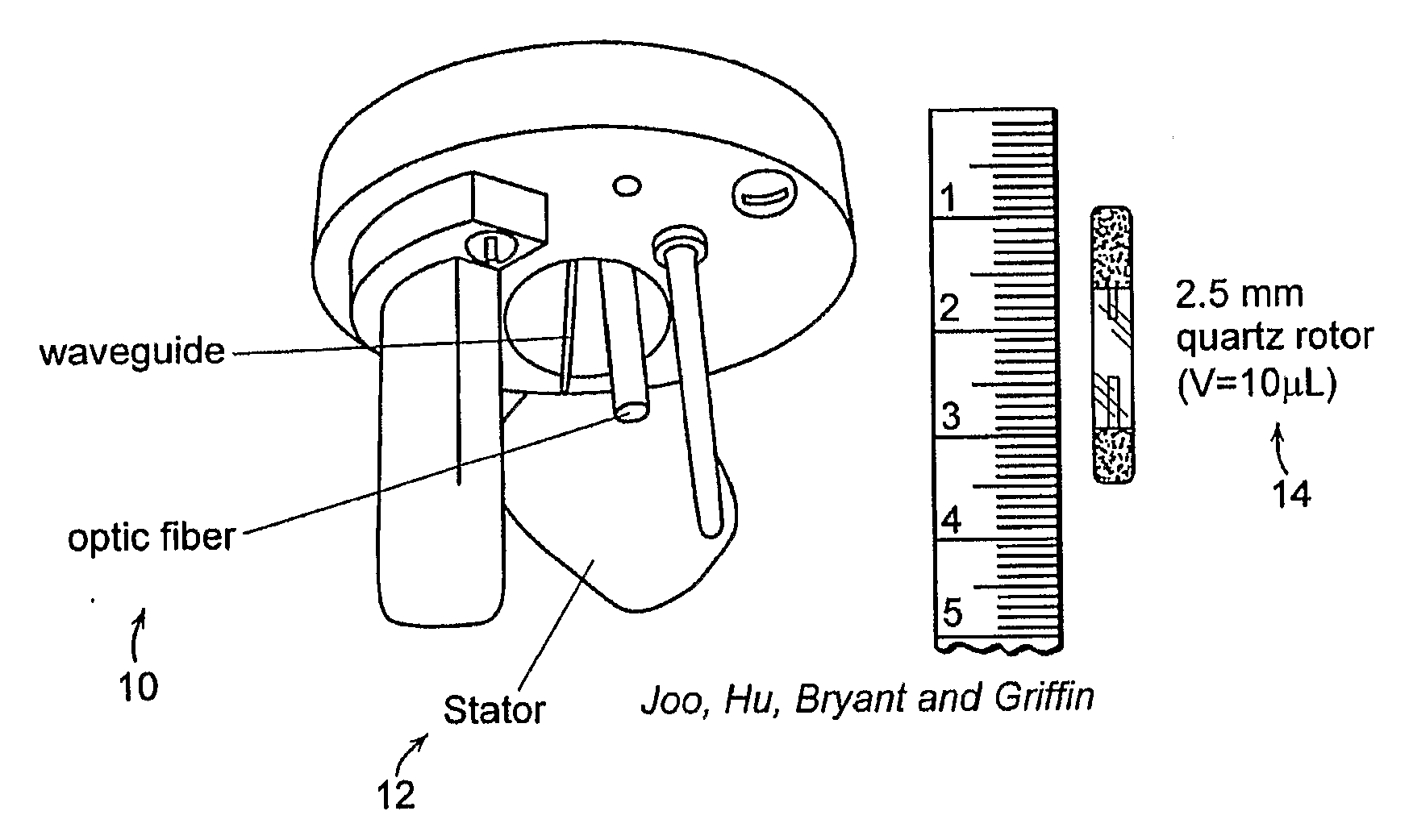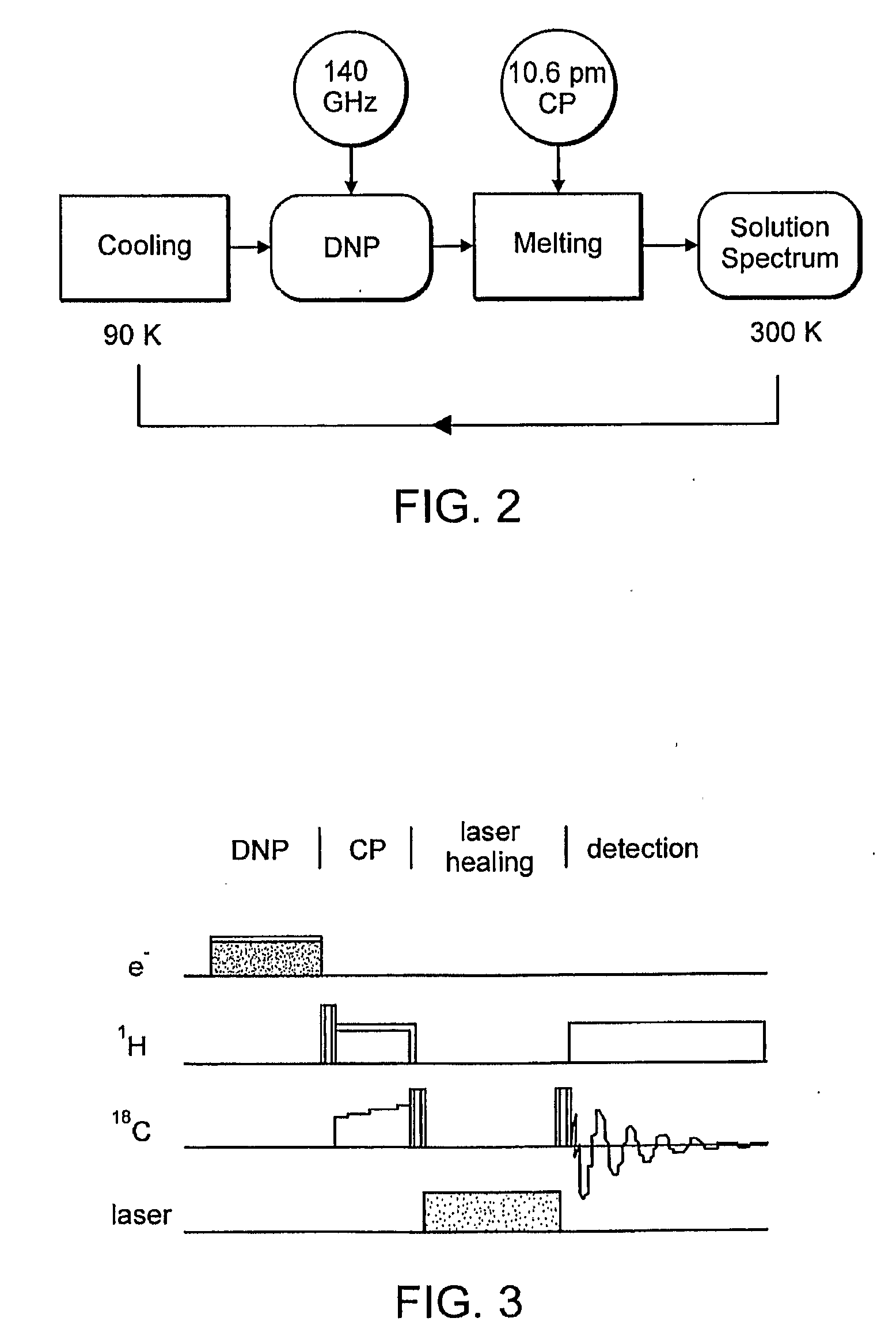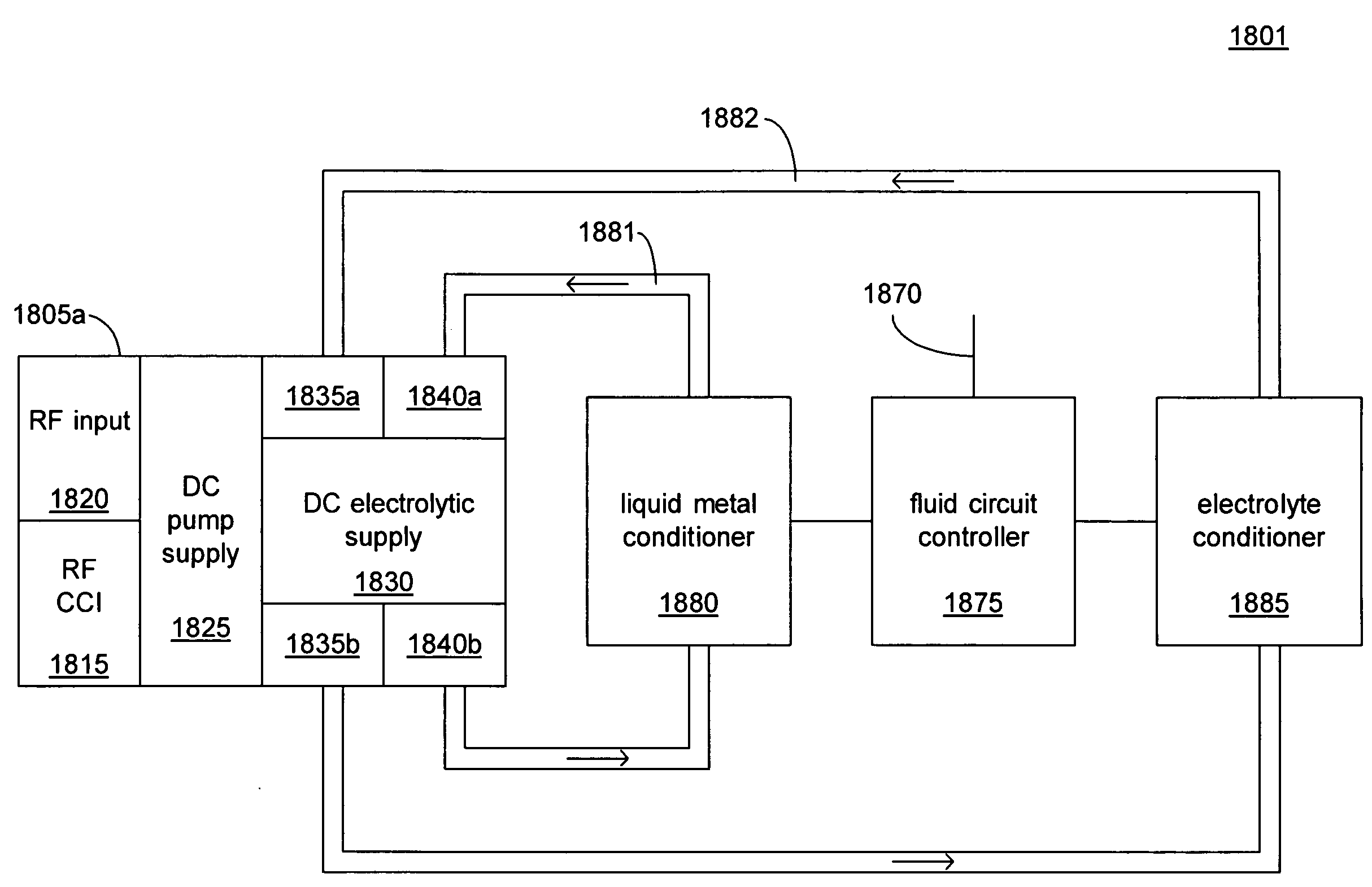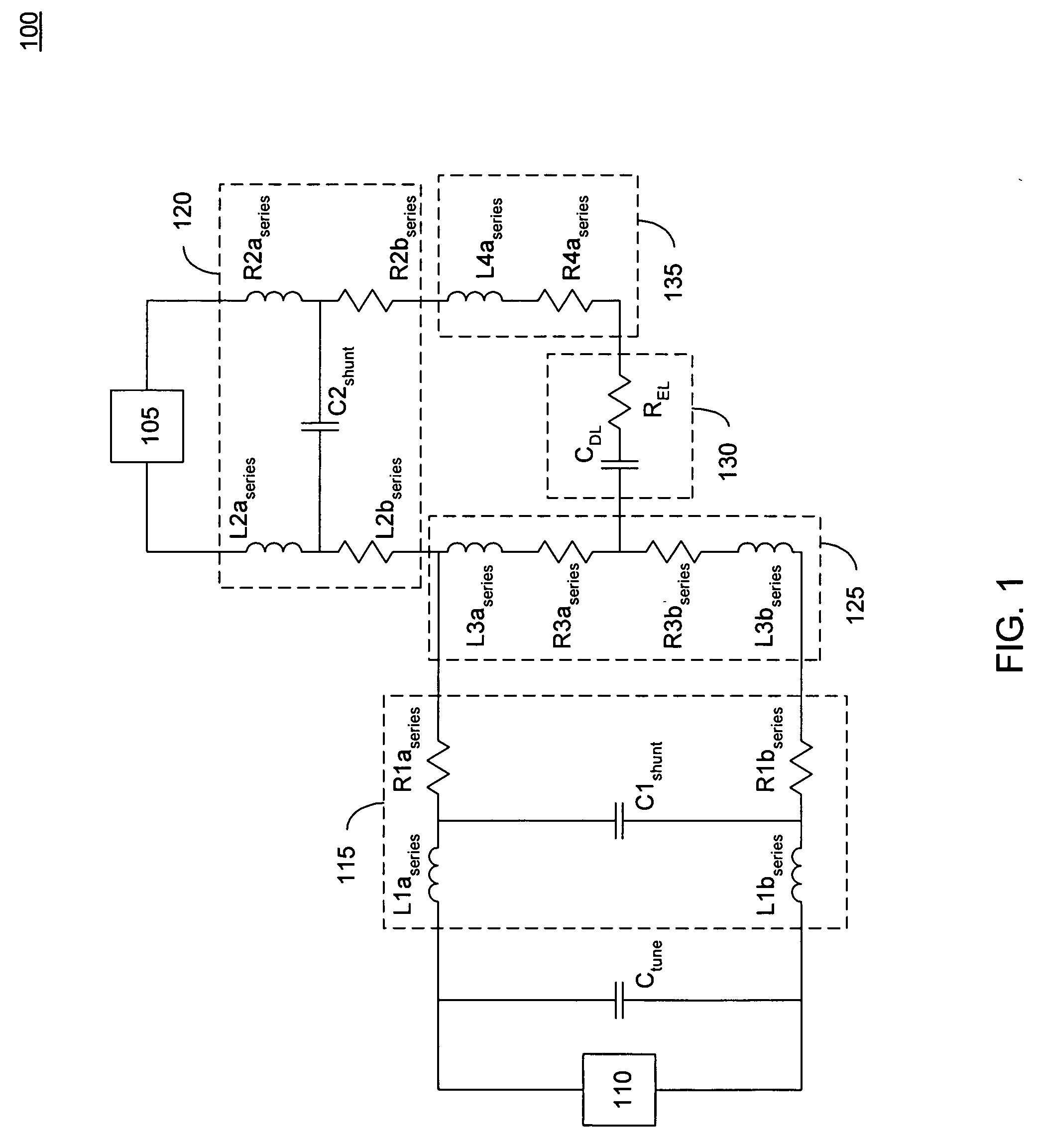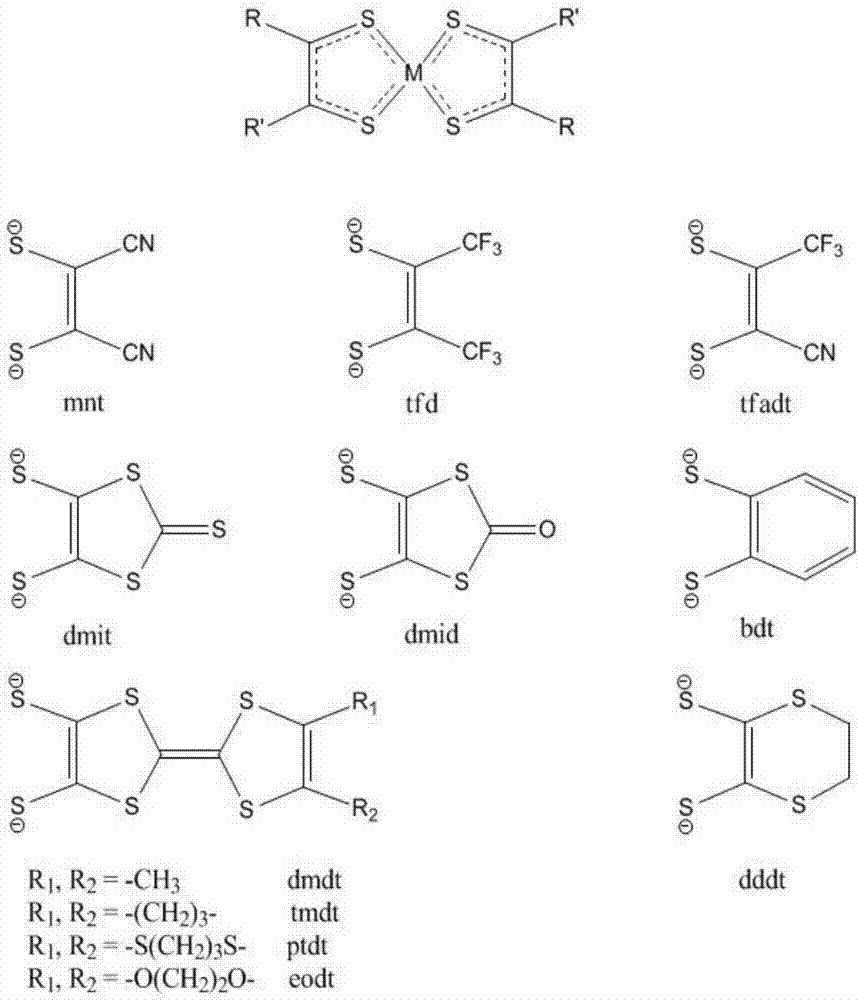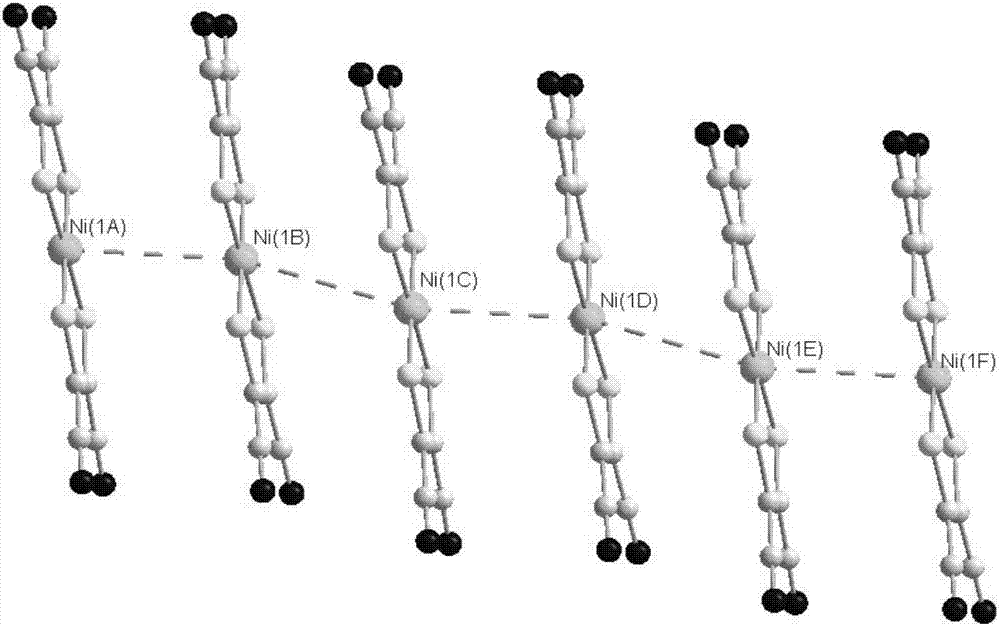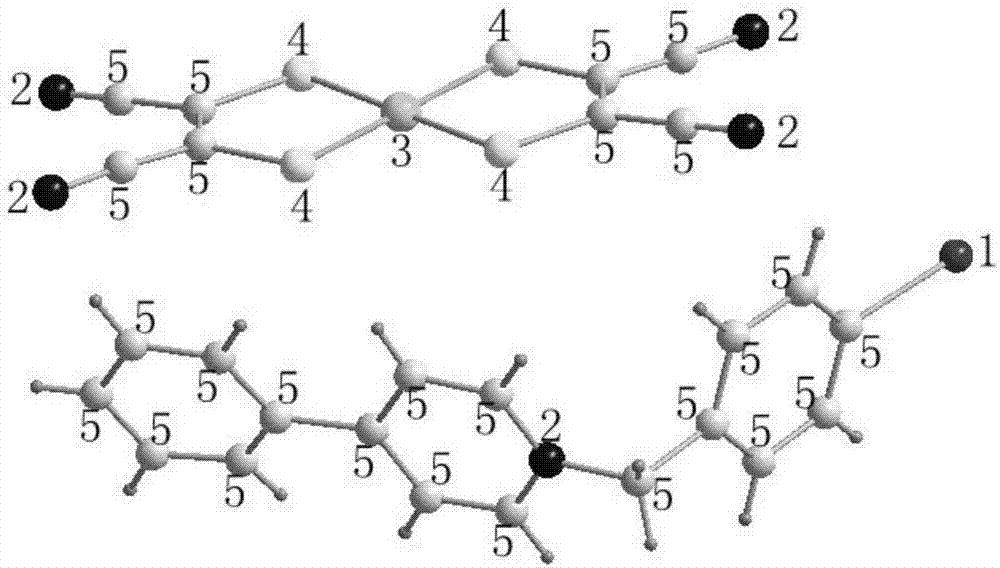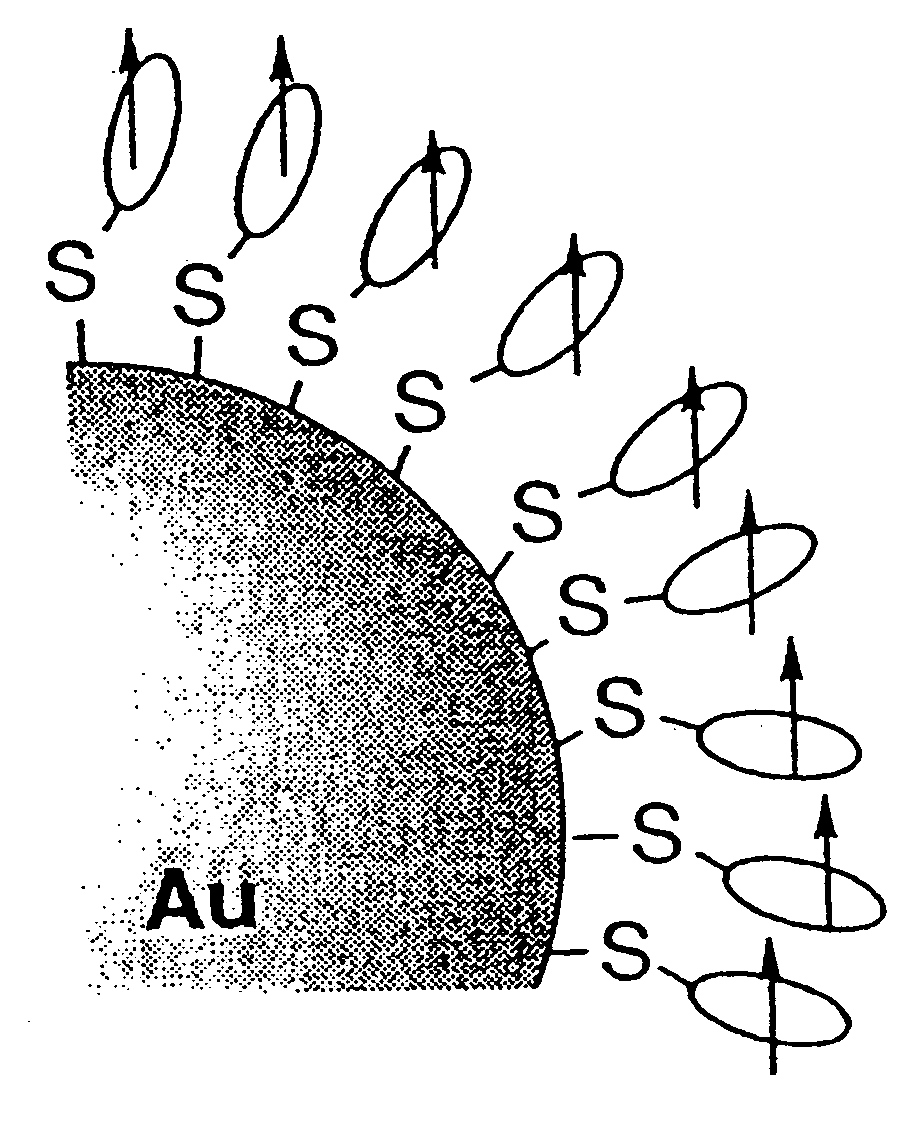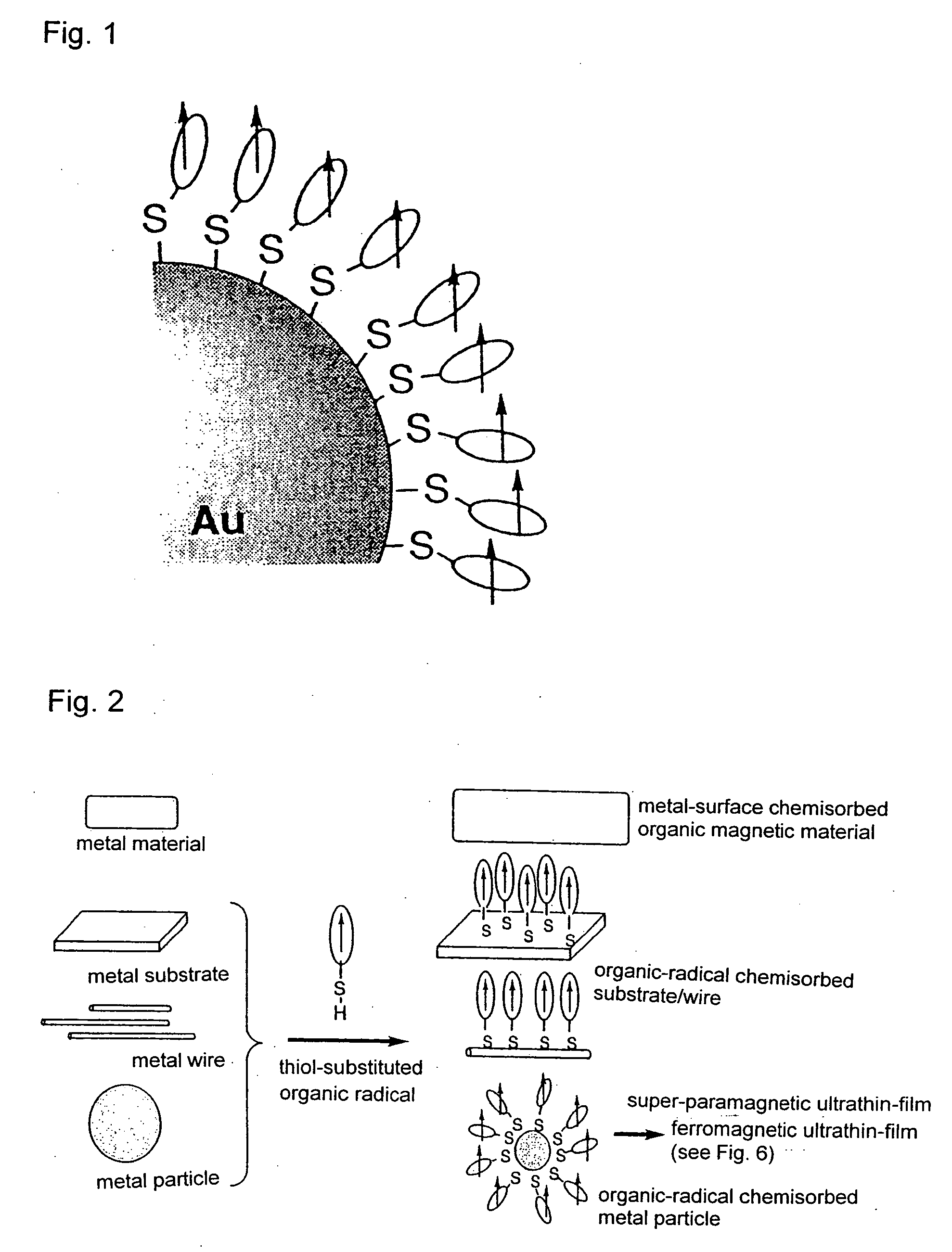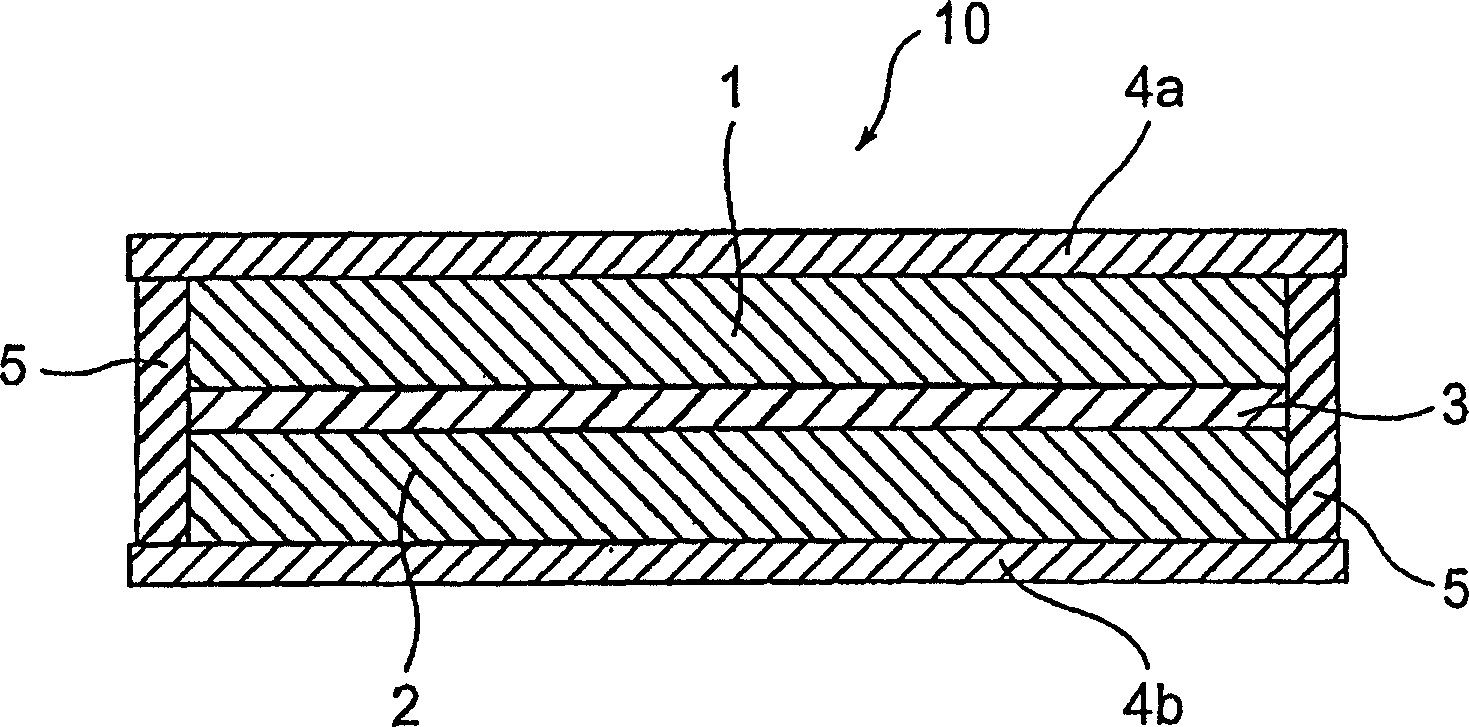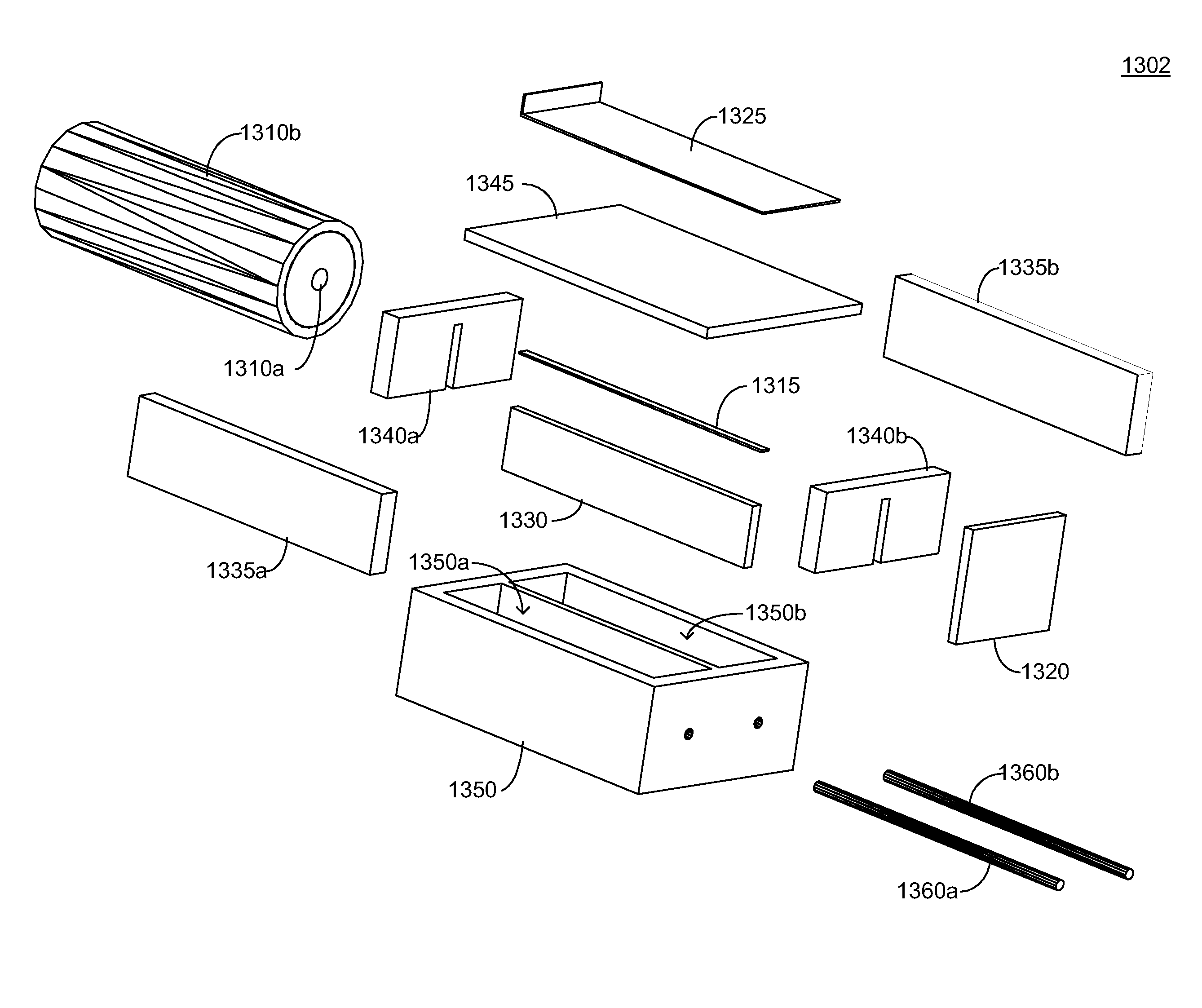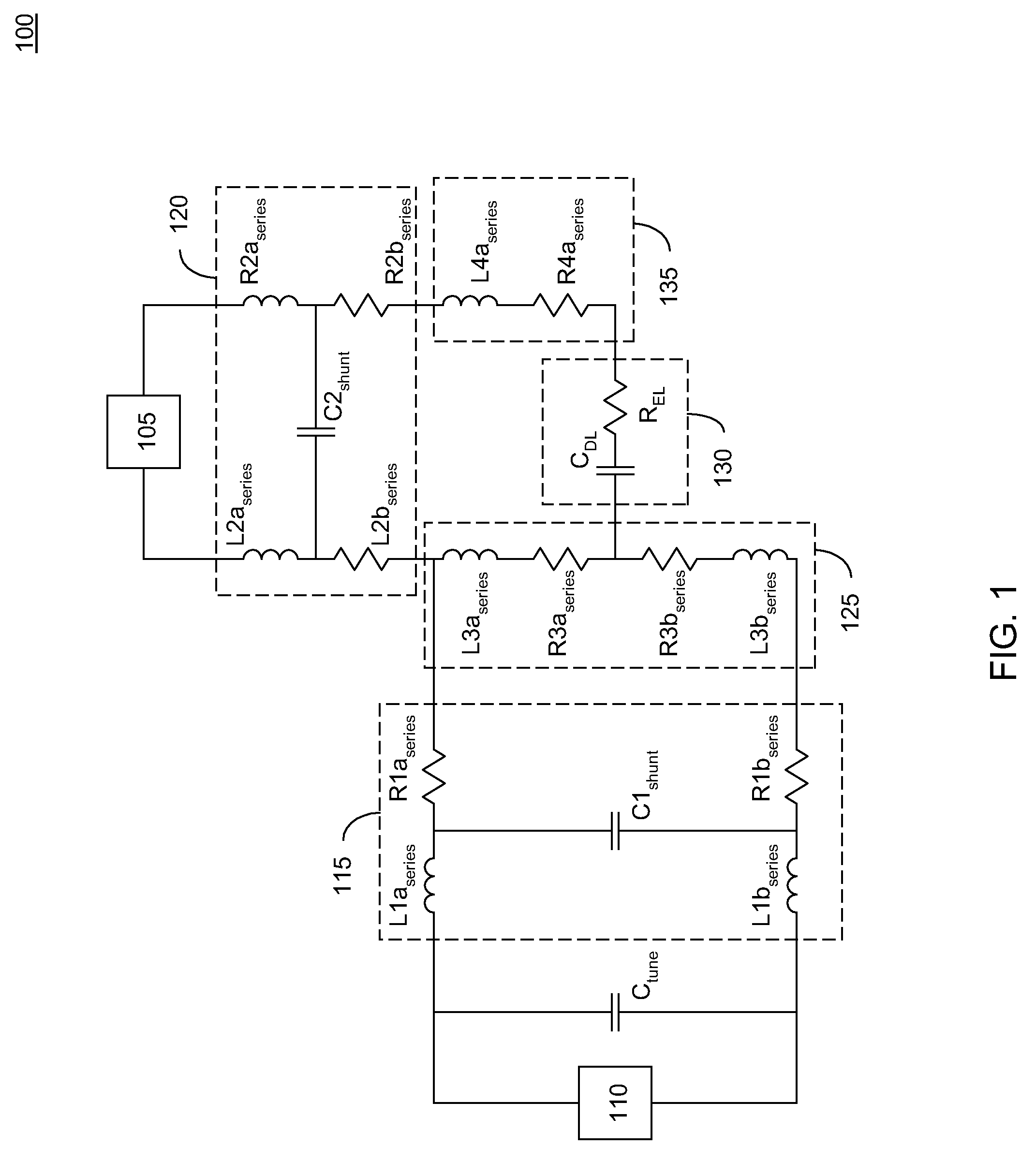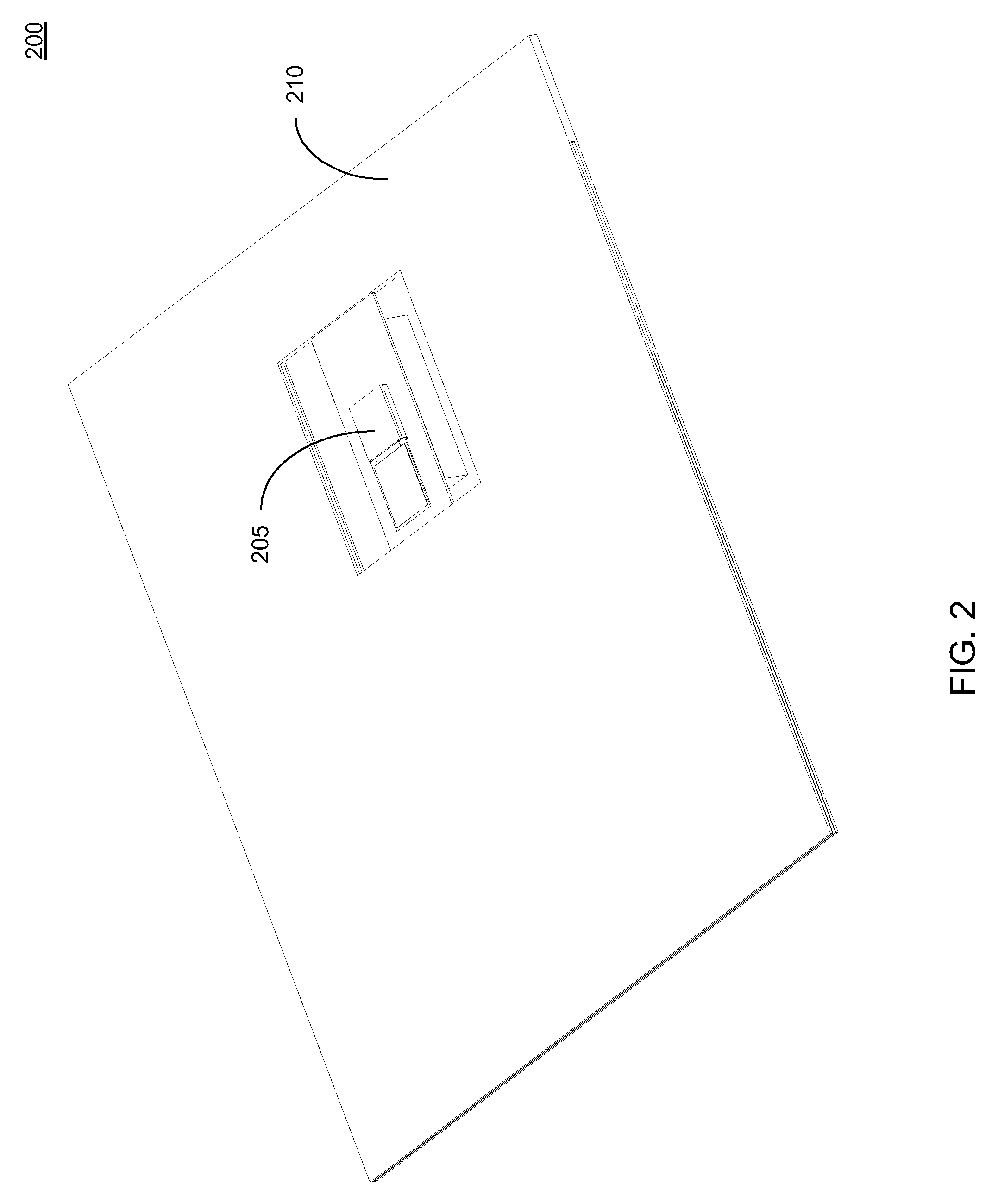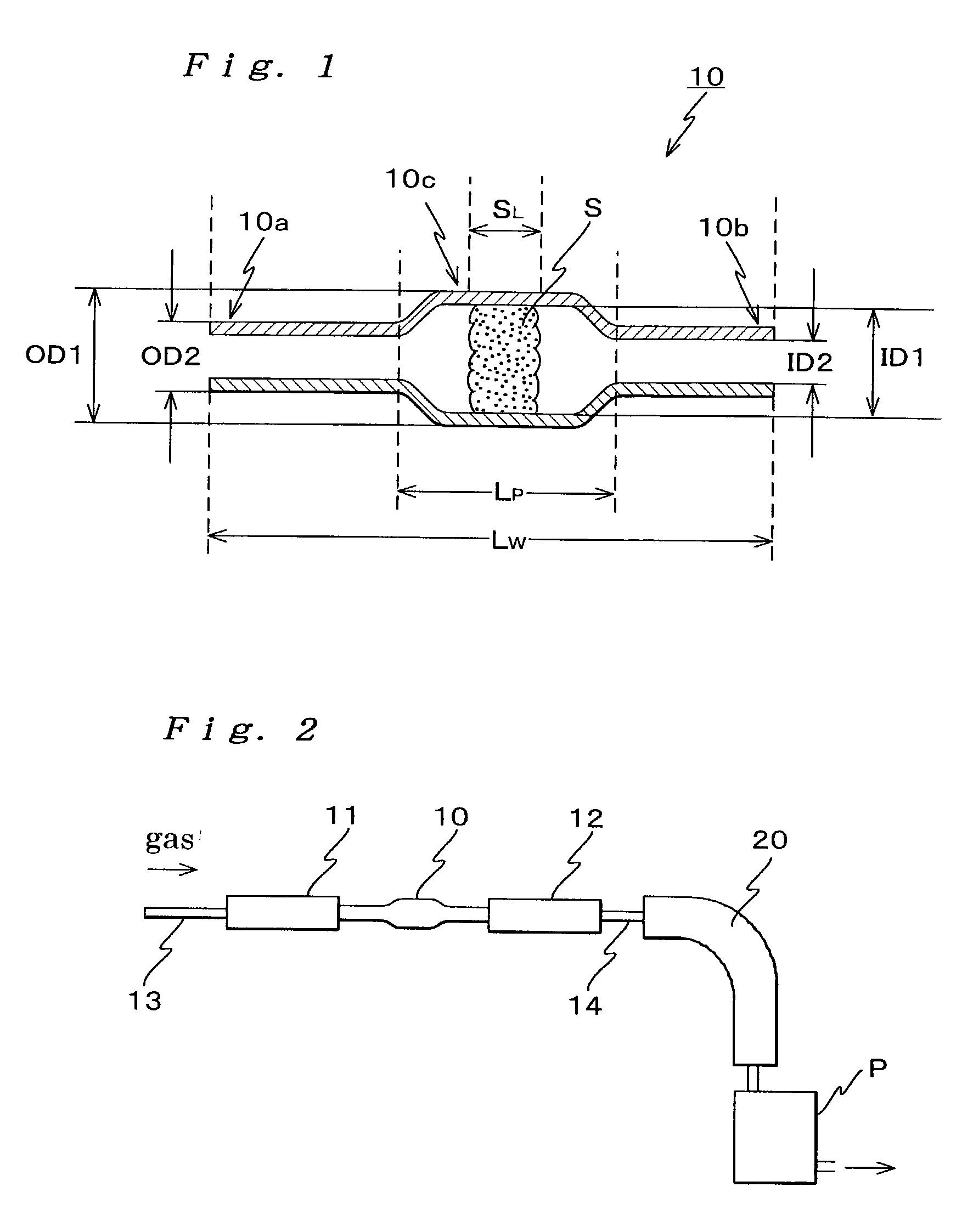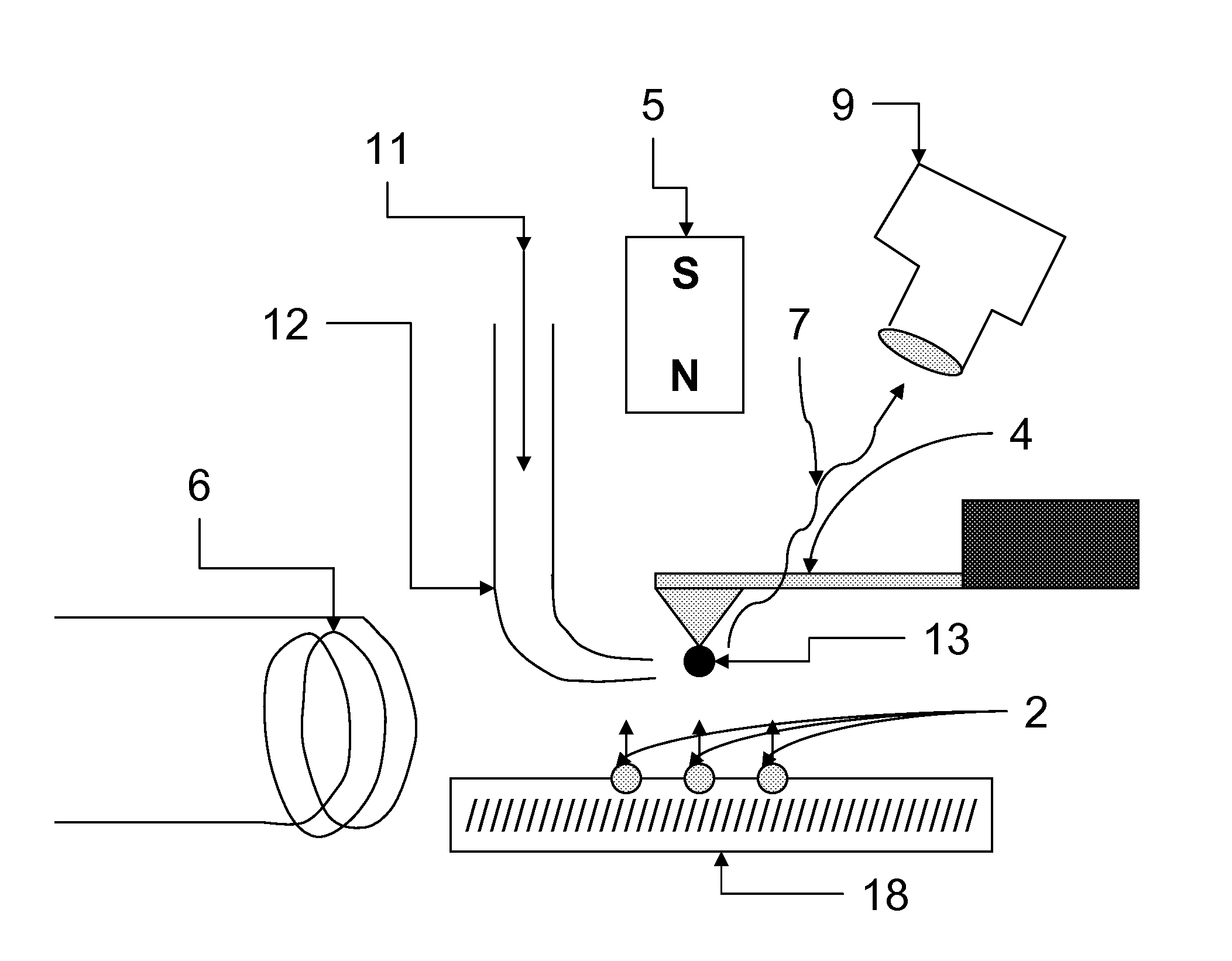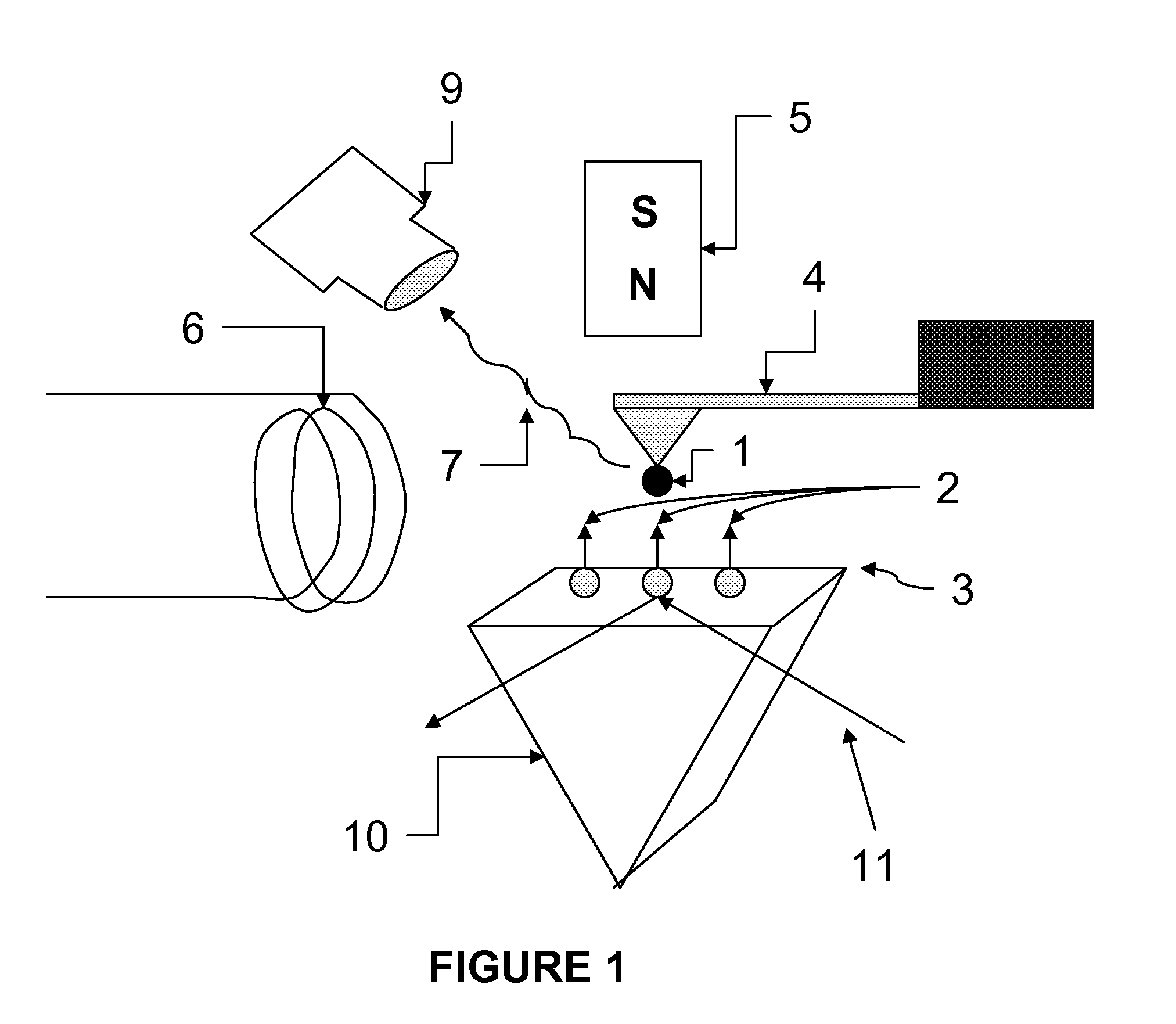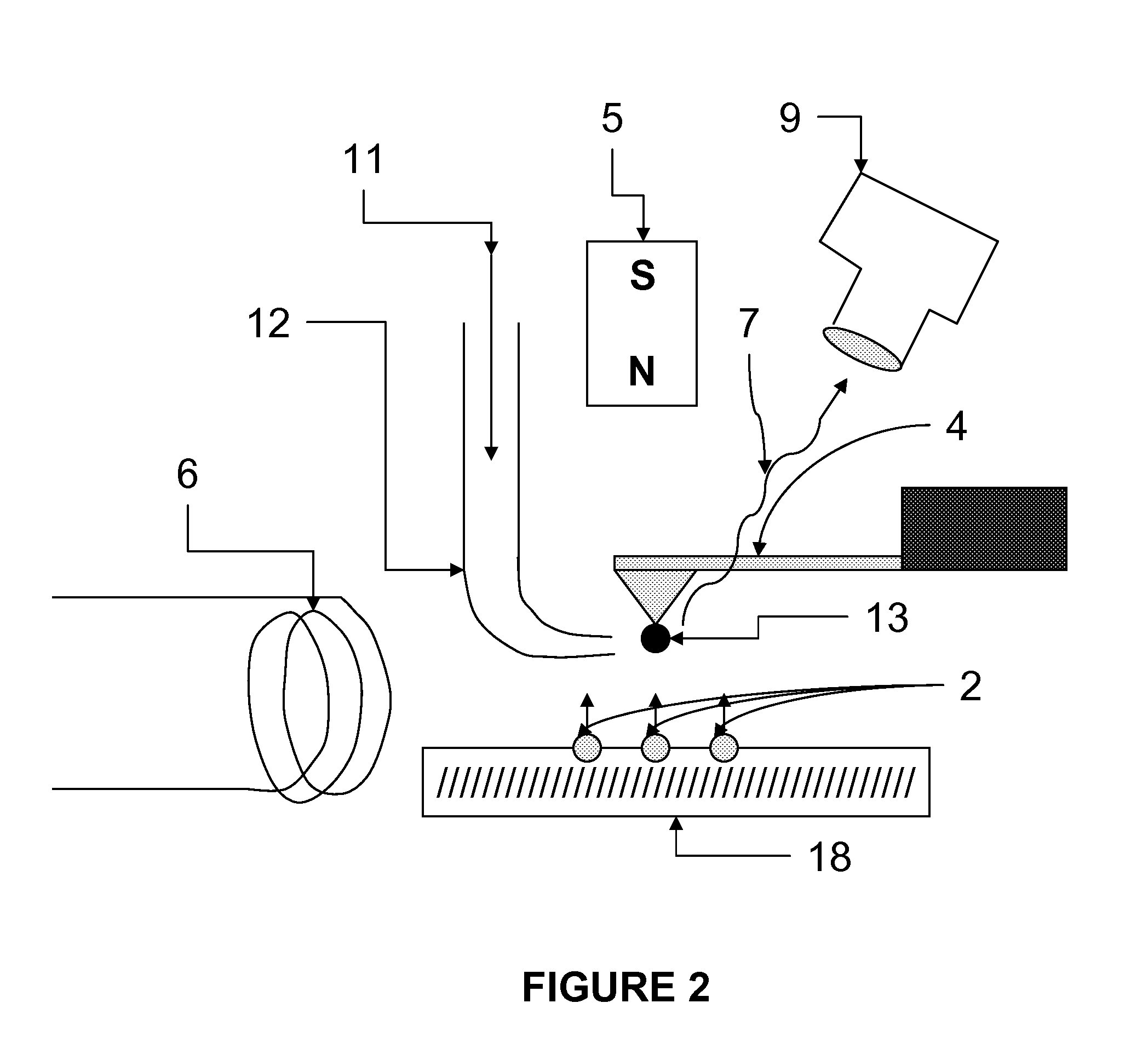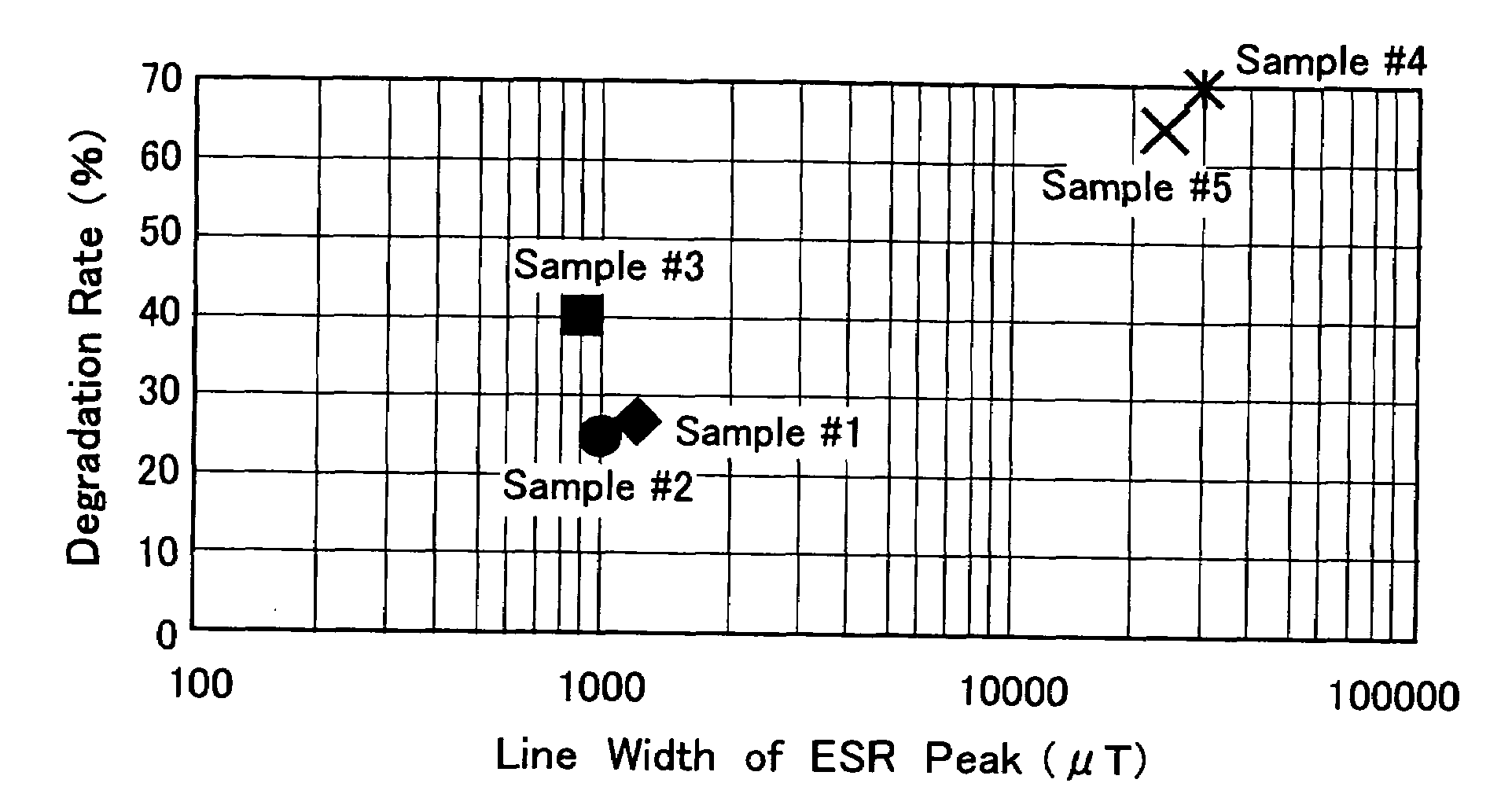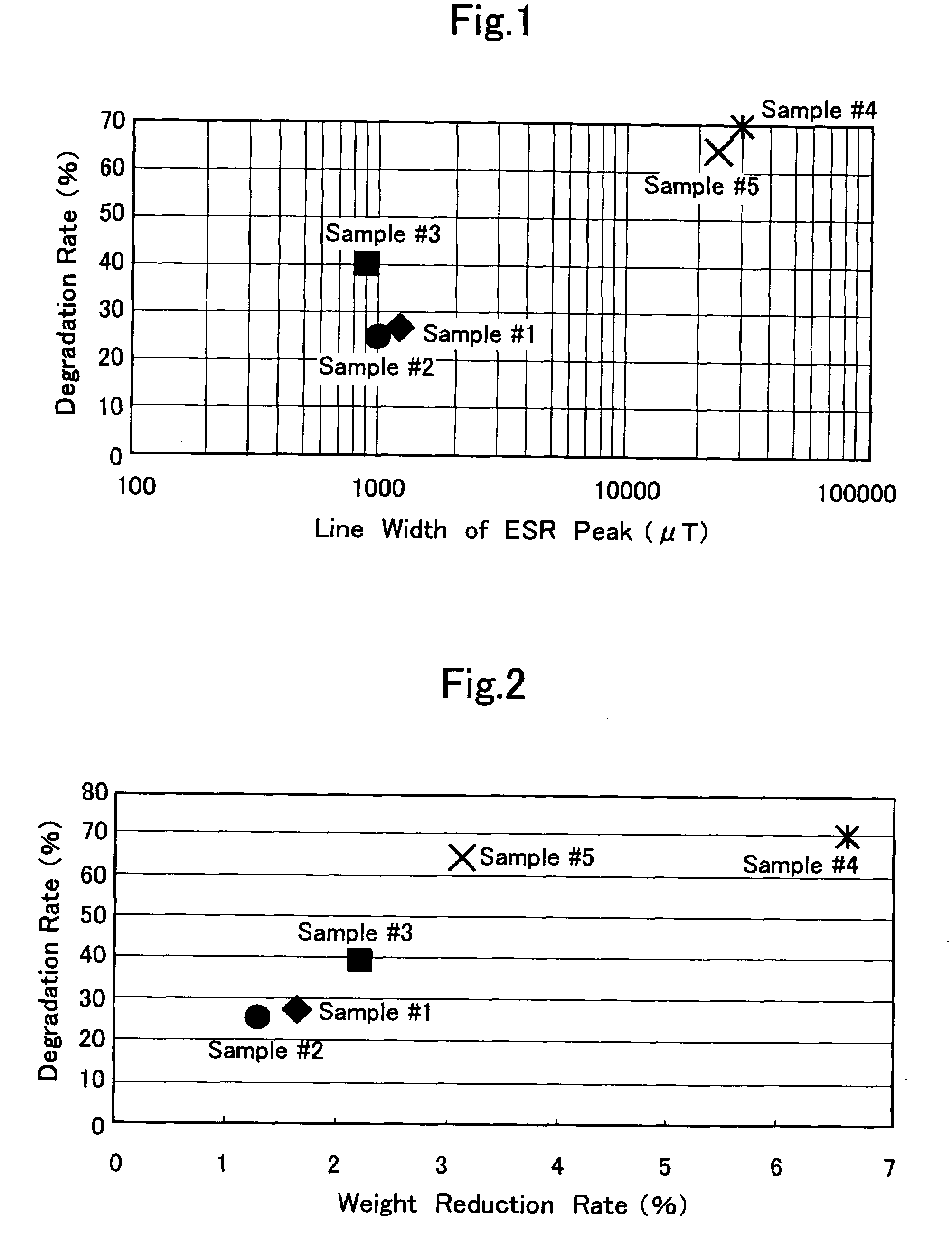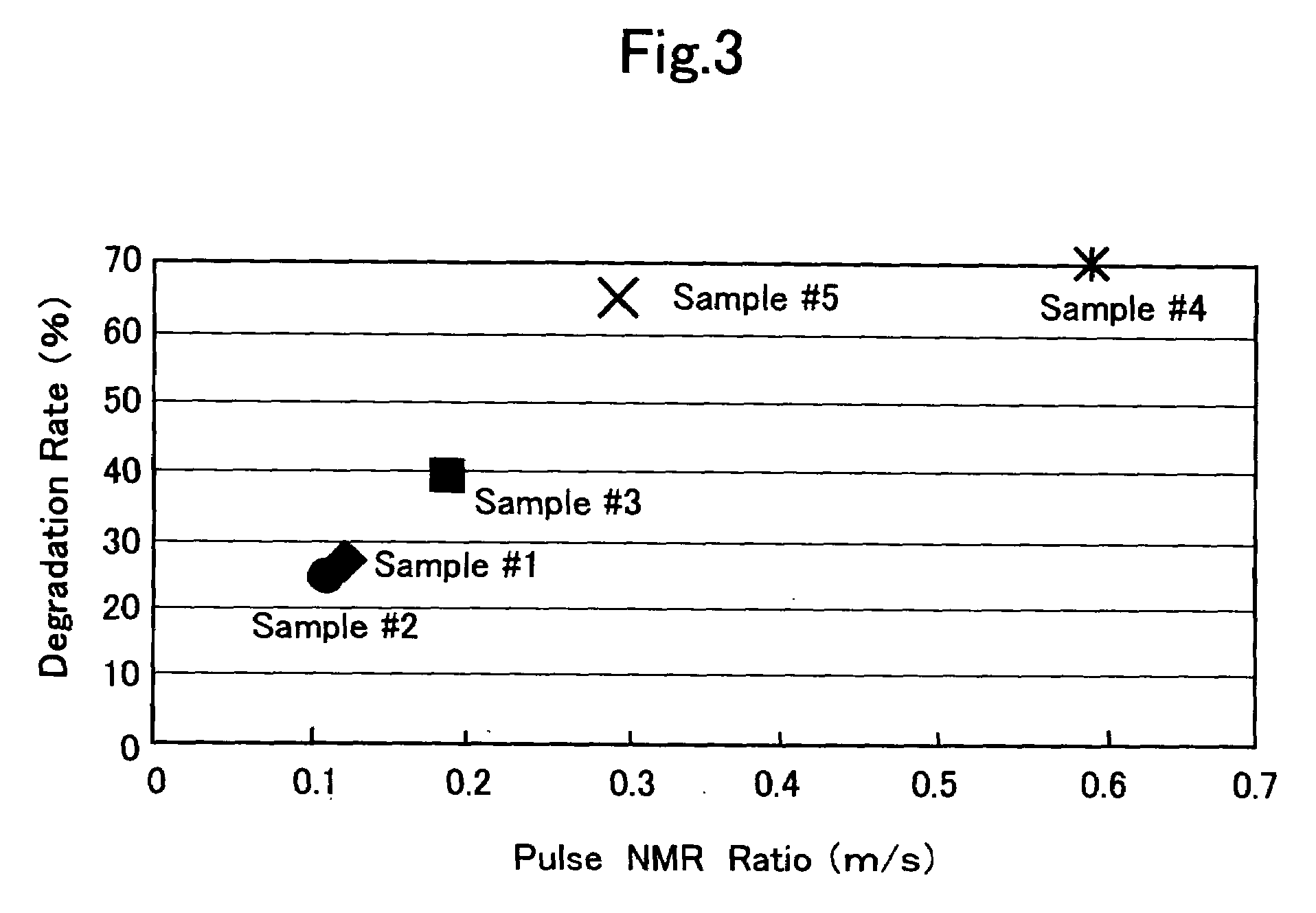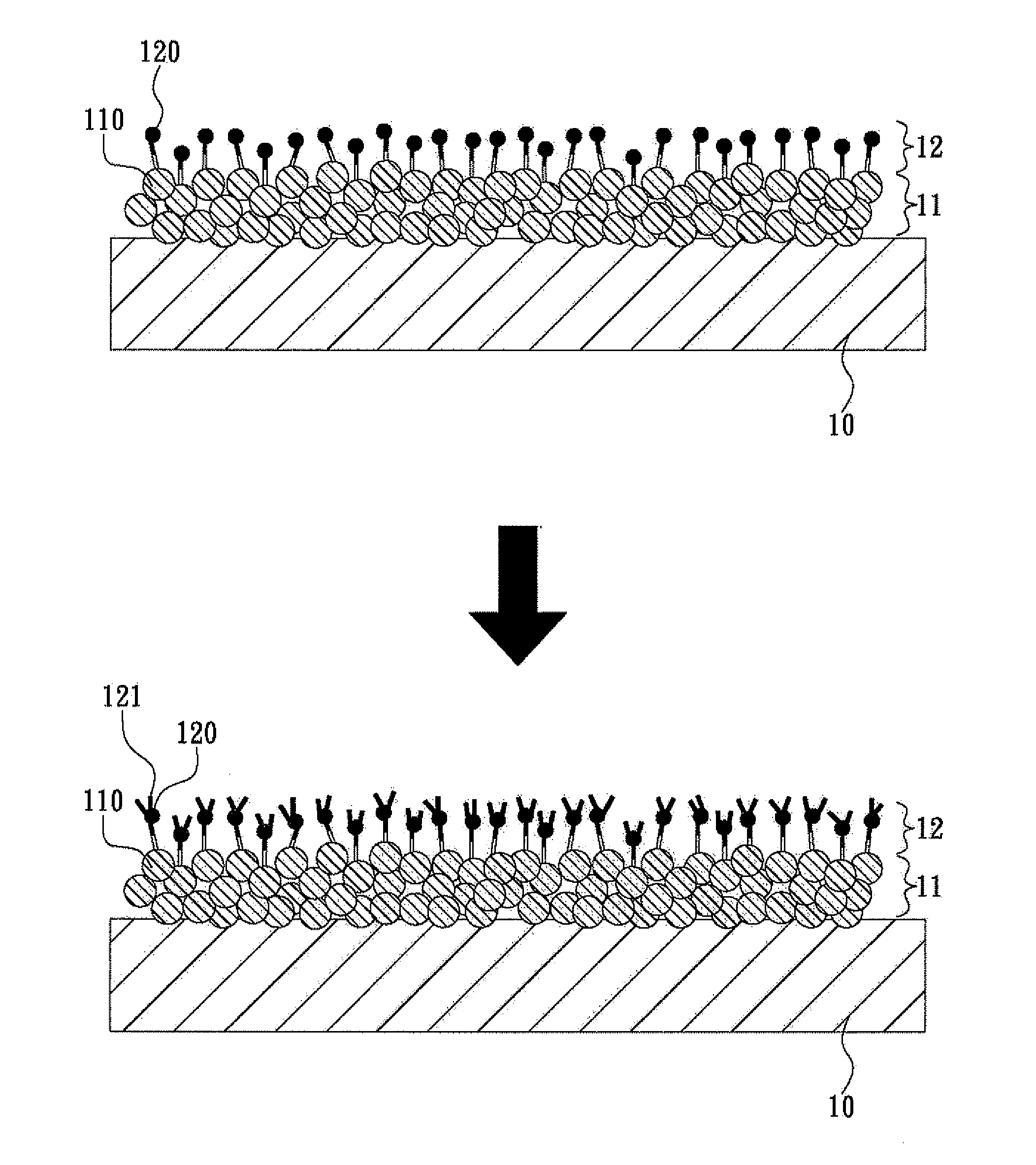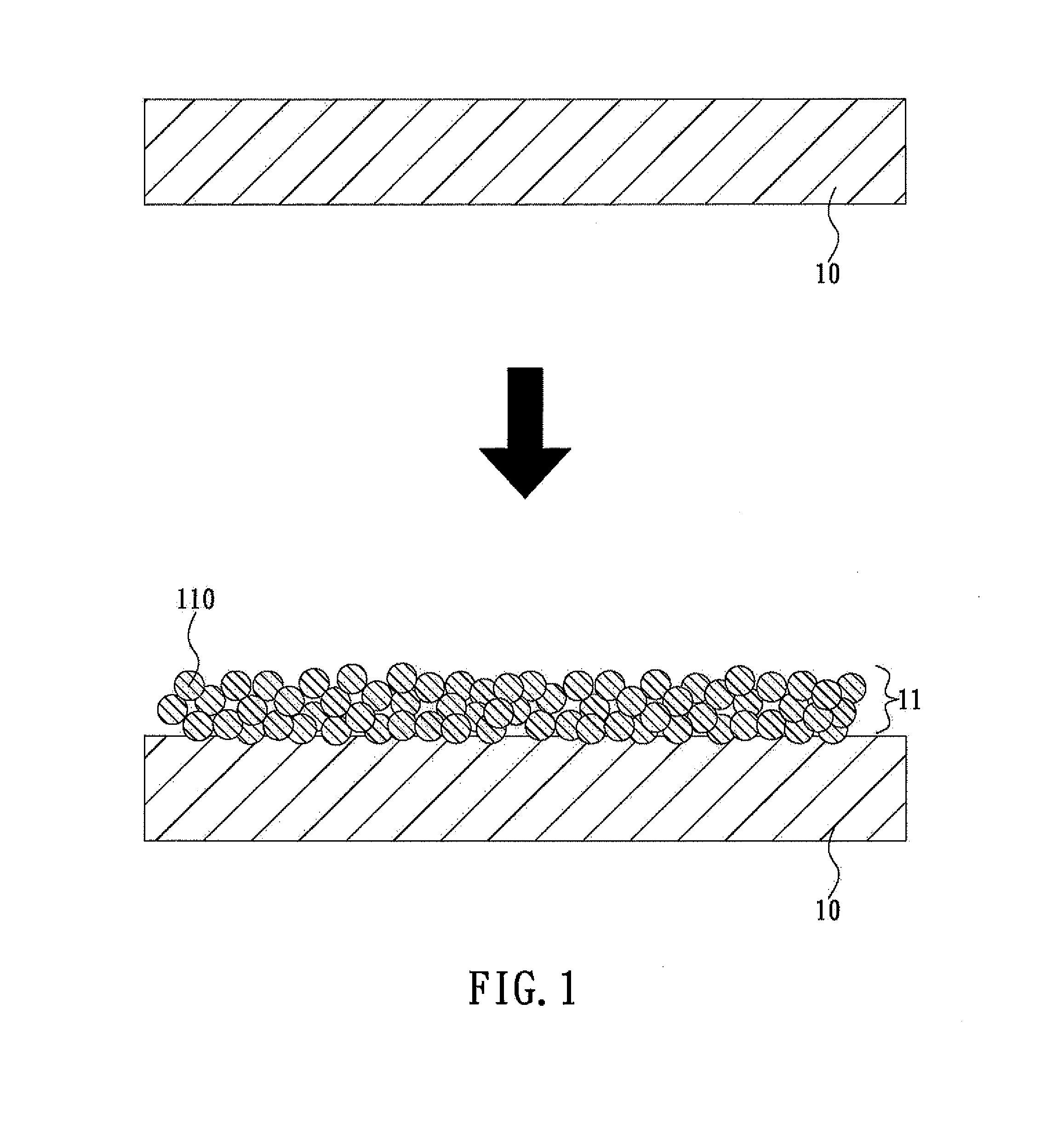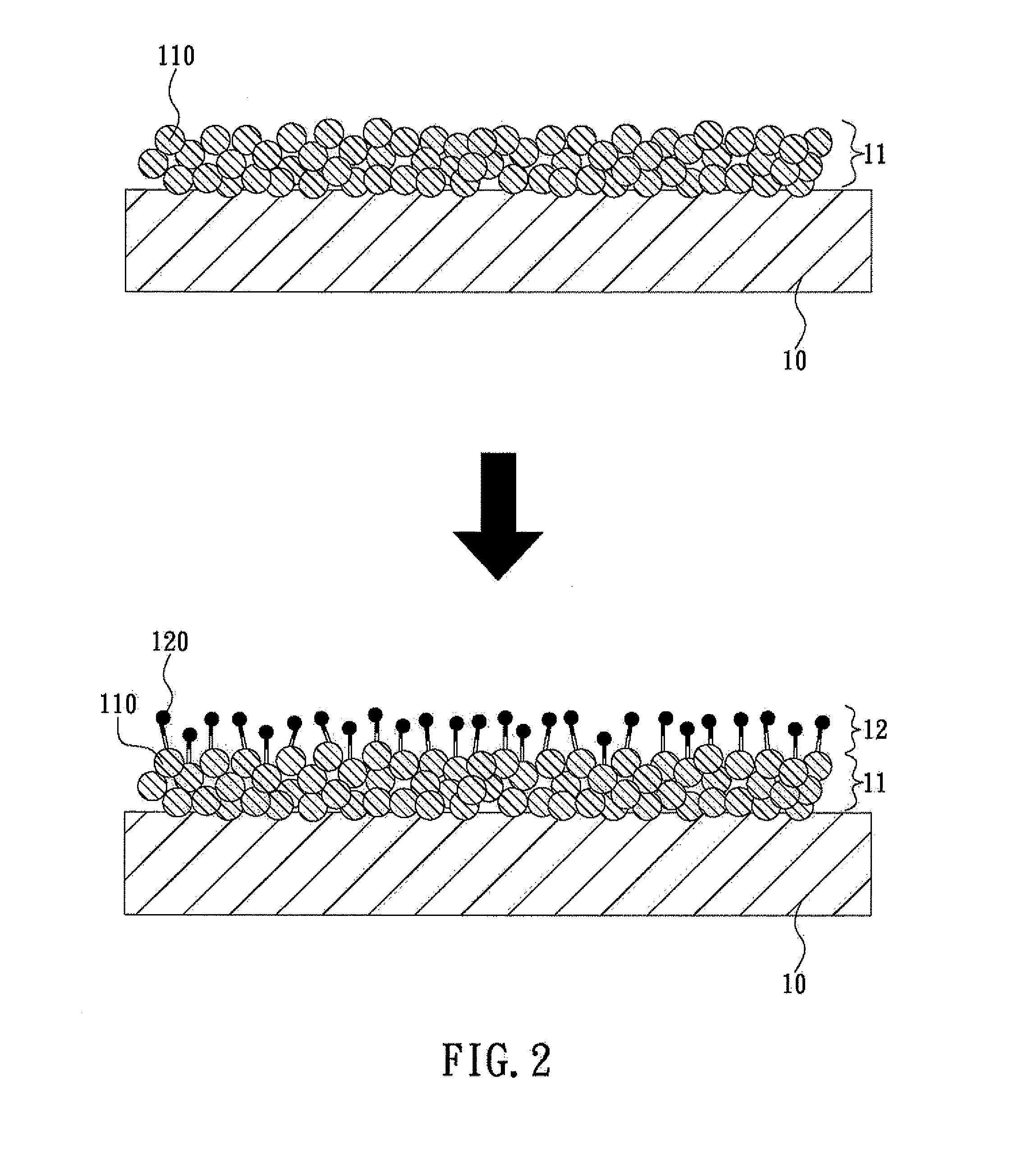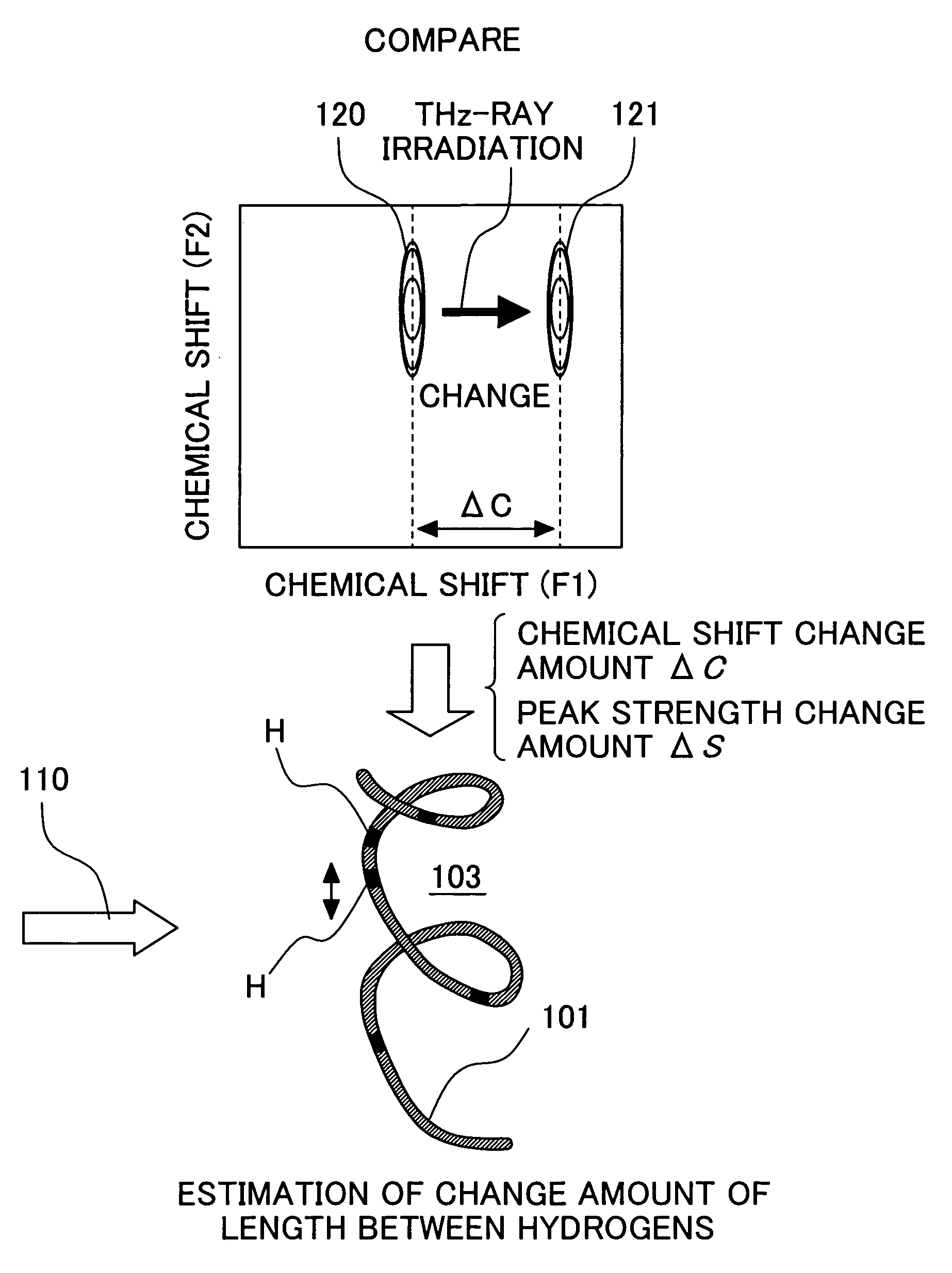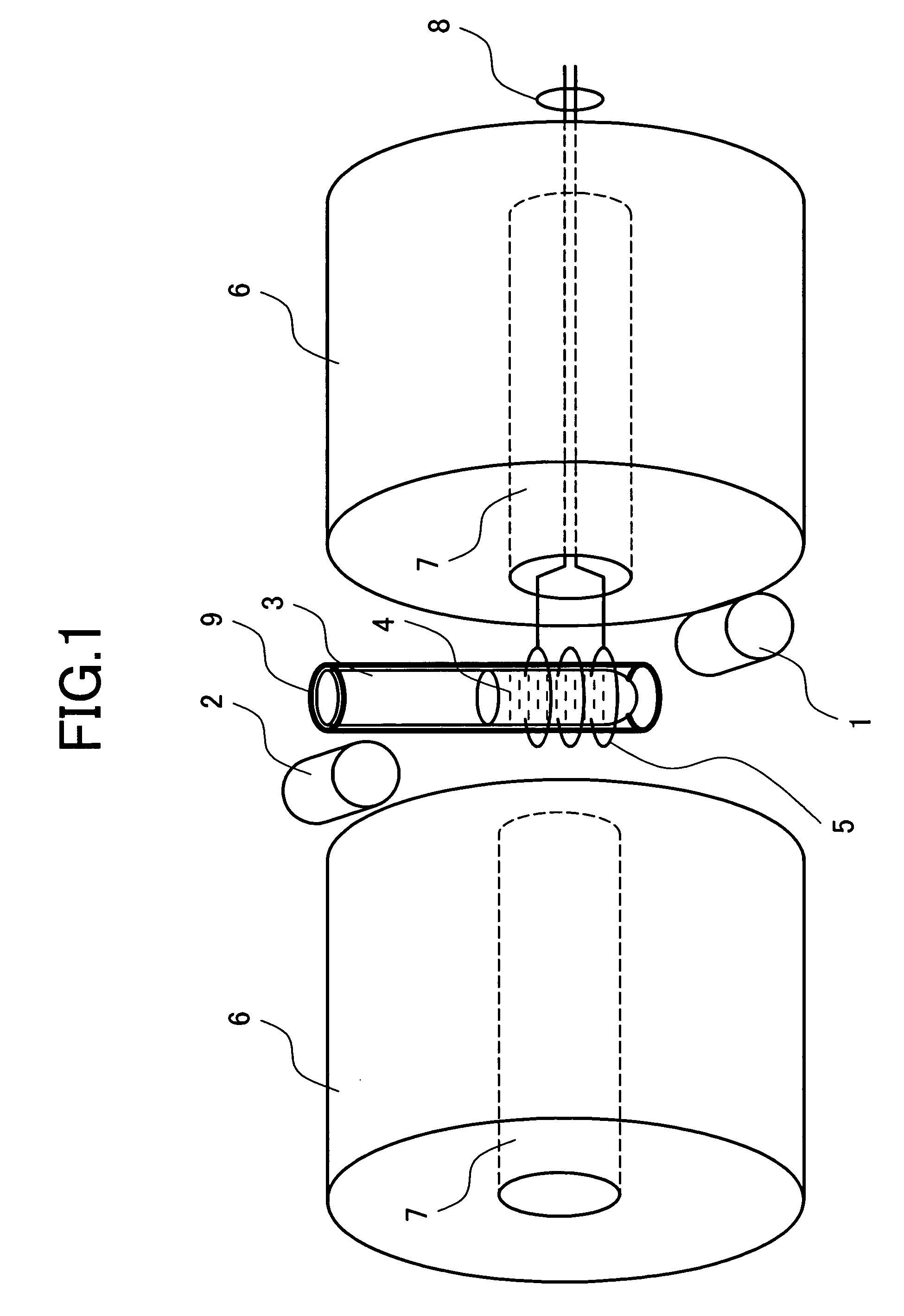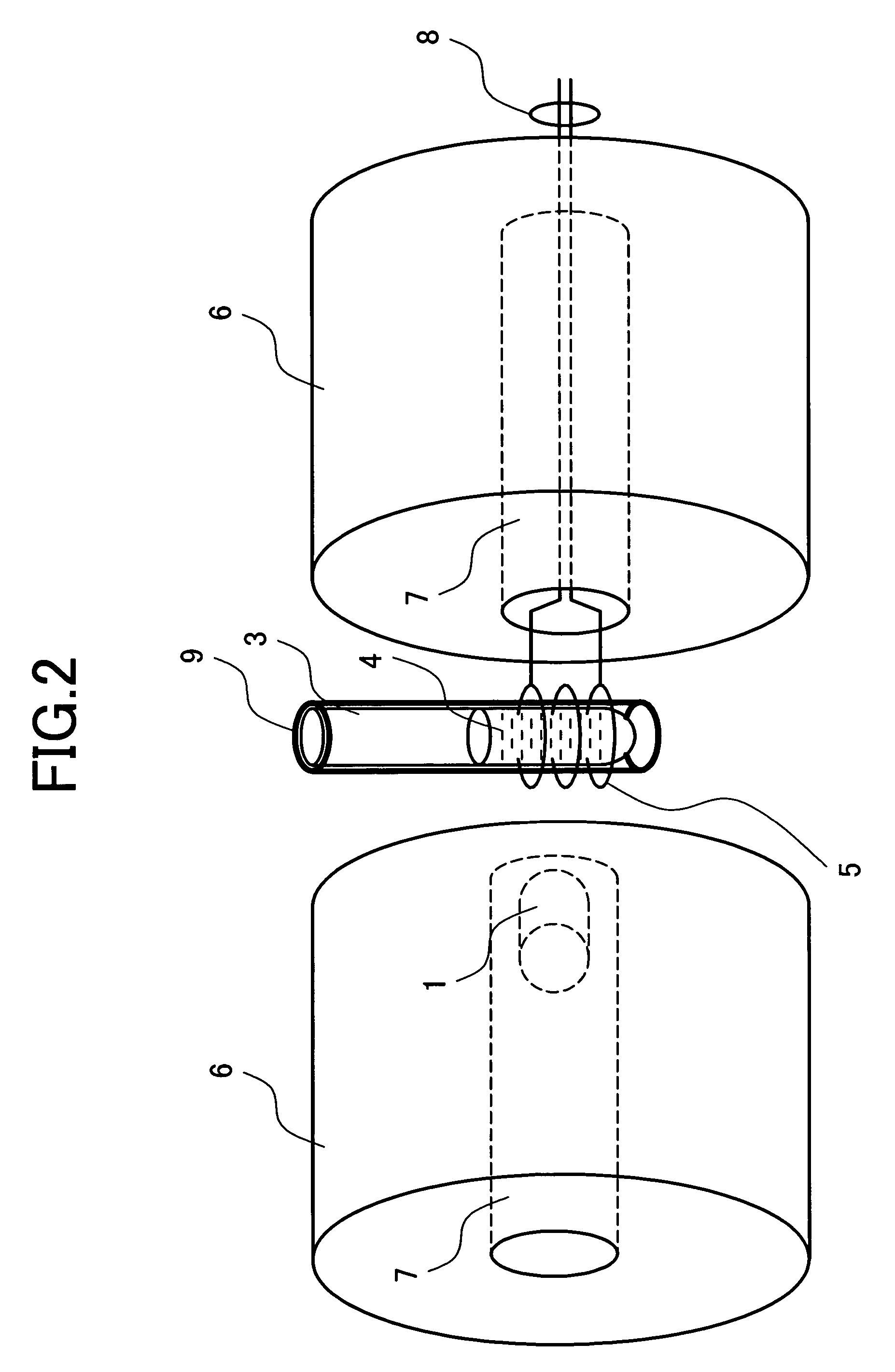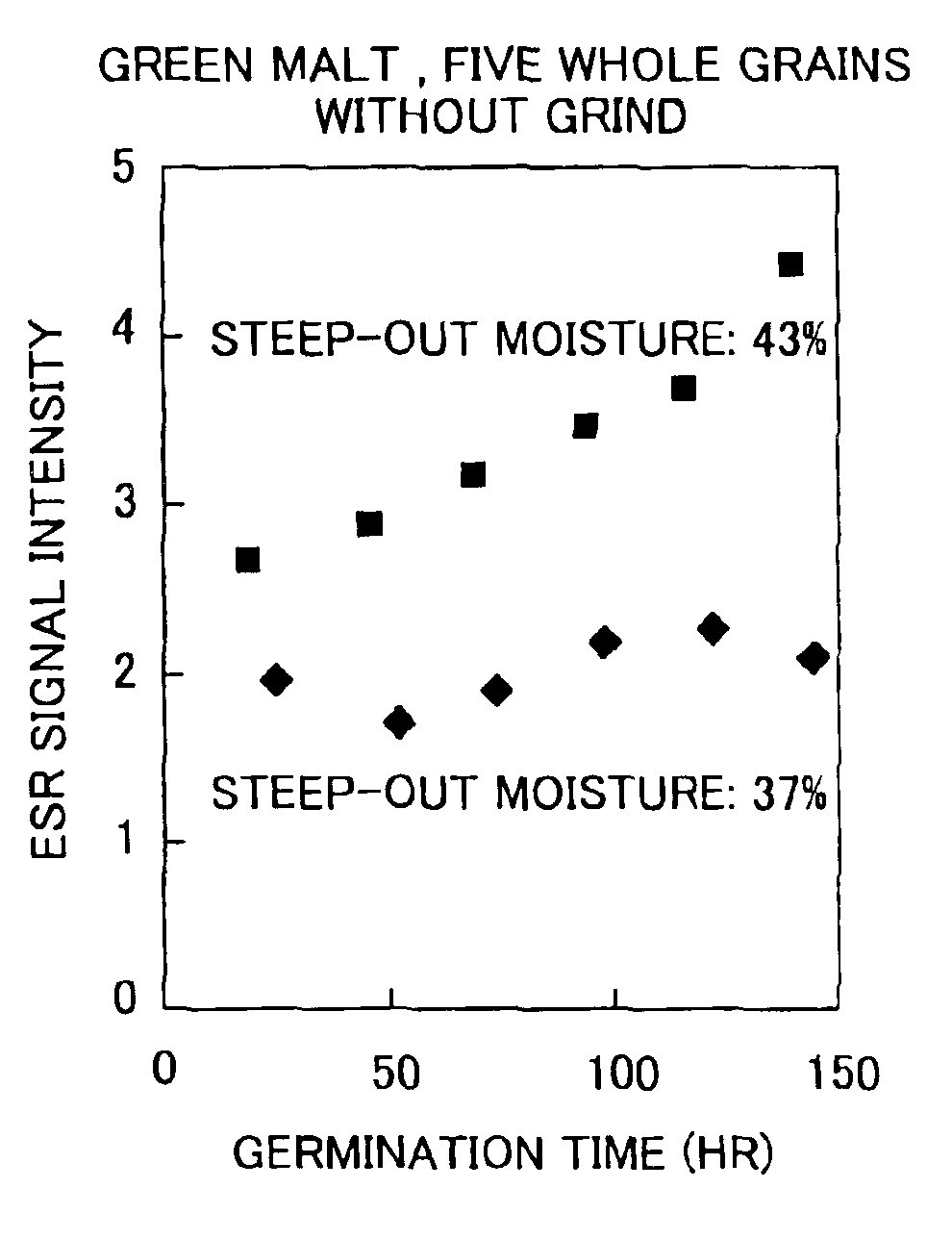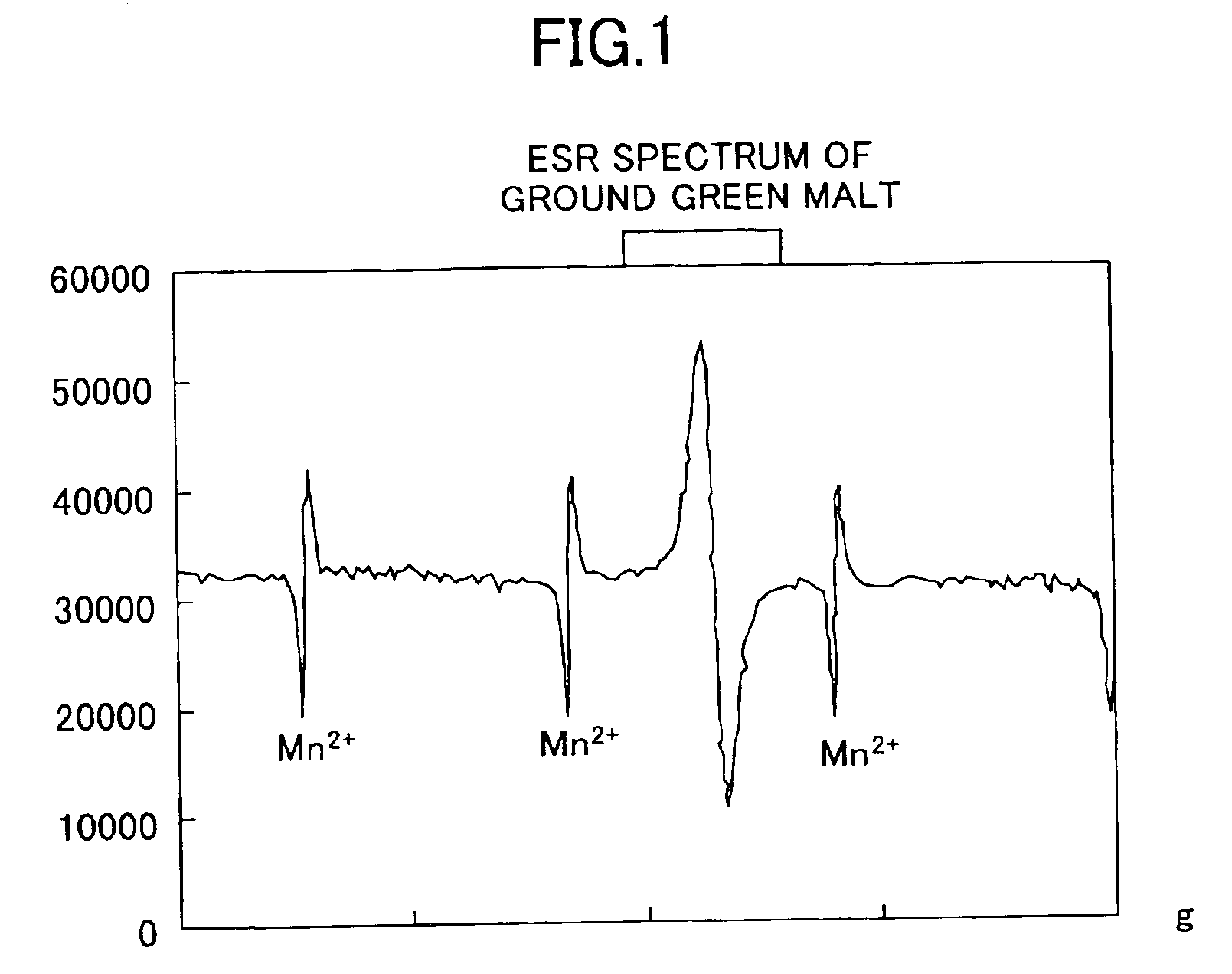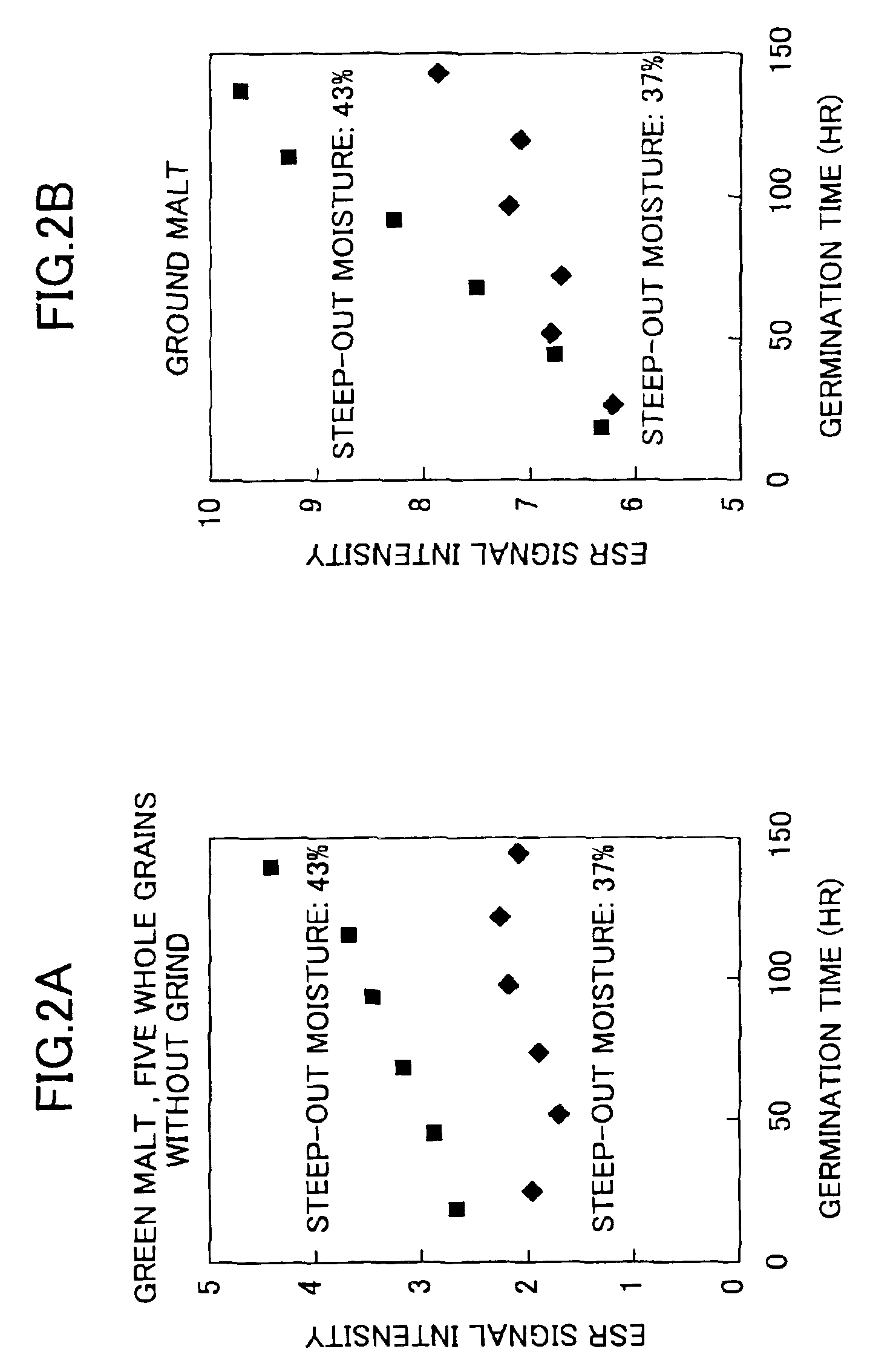Patents
Literature
Hiro is an intelligent assistant for R&D personnel, combined with Patent DNA, to facilitate innovative research.
55 results about "Unpaired electron" patented technology
Efficacy Topic
Property
Owner
Technical Advancement
Application Domain
Technology Topic
Technology Field Word
Patent Country/Region
Patent Type
Patent Status
Application Year
Inventor
In chemistry, an unpaired electron is an electron that occupies an orbital of an atom singly, rather than as part of an electron pair. Each atomic orbital of an atom (specified by the three quantum numbers n, l and m) has a capacity to contain two electrons (electron pair) with opposite spins. As the formation of electron pairs is often energetically favourable, either in the form of a chemical bond or as a lone pair, unpaired electrons are relatively uncommon in chemistry, because an entity that carries an unpaired electron is usually rather reactive. In organic chemistry they typically only occur briefly during a reaction on an entity called a radical; however, they play an important role in explaining reaction pathways.
Spin microscope based on optically detected magnetic resonance
InactiveUS7608820B1NanomagnetismMaterial analysis using wave/particle radiationMagnetic force microscopePhotoluminescence
The invention relates to scanning magnetic microscope which has a photoluminescent nanoprobe implanted in the tip apex of an atomic force microscope (AFM), a scanning tunneling microscope (STM) or a near-field scanning optical microscope (NSOM) and exhibits optically detected magnetic resonance (ODMR) in the vicinity of unpaired electron spins or nuclear magnetic moments in the sample material. The described spin microscope has demonstrated nanoscale lateral resolution and single spin sensitivity for the AFM and STM embodiments.
Owner:THE UNITED STATES AS REPRESENTED BY THE DEPARTMENT OF ENERGY
Catalyst and process for producing the same, catalytic electrode and process for producing the same, membrane/electrode union, and electrochemical device
InactiveUS20060263674A1Easy to moveEffective displayCarbon compoundsOrganic-compounds/hydrides/coordination-complexes catalystsConductive polymerCoal
In producing an oxygen reduction catalyst including a nitrogen-containing active carbide by converting either a mixture of a carbonaceous solid raw material (coal-derived binder pitch) and a nitrogen-containing organic compound (melamine or the like) or a nitrogen-containing organic polymer compound (polyacrylonitrile, melamine resin or the like) into a powdery material, baking the powdery material, and subjecting the baked product to steam activation, the presence ratio of nitrogen and the presence ratio of carbon relating to a shake-up process in the surface and the spin density of unpaired electrons showing Curie paramagnetism are controlled to be high, by selection of the baking temperature, the mixing ratio between the carbonaceous solid raw material and the nitrogen-containing organic compound, or the nitrogen-containing organic polymer compound material. In incorporating the catalyst into an electrochemical device, the catalyst and an ion conductive polymer are mixed and a catalyst layer is formed from the mixture so as to make smooth the movement of ions and electrons, and, in applying the catalyst to a polymer electrolyte type fuel cell, an MEA is produced. This makes it possible to provide a catalyst comprised of a nitrogen-containing active carbide and a production method thereof, and an electrochemical device using the catalyst.
Owner:SONY CORP
Efficient anionic water-based inorganic environmental protection coating
InactiveCN108395744AImprove the ionization effectEfficient releaseAlkali metal silicate coatingsRare-earth elementWater based
The invention relates to efficient anion water-based inorganic environmental protection coating, characterized by being prepared from the following components in parts by weight: 15-25 parts of silicate aqueous solution, 10-20 parts of silica sol, 5-10 parts of polyvinyl alcohol, 10-15 parts of rare earth oxide, 10-15 parts of tourmaline powder, 10-20 parts of deionized water, 4-5 parts of silanecoupling agent, 1-2 parts of defoamer, 0.5-1 part of flatting agent, 3-5 parts of nano zinc oxide dispersion liquid, 10-20 parts of zinc powder and 2-5 parts of talcum powder. A film forming matter ofthe efficient anionic water-based inorganic environmental protection coating is inorganic silicate, and is environmentally friendly and free of VOC; based on the valence alternation property of unpaired electron of rare earth element 4f track, the electrolytic capability of tourmaline electric field on water molecules in air is enhanced, and anion is efficiently produced; the addition of nano zinc oxide improves the capability of the coating decomposing formaldehyde and purifying air; compared with similar products on the market, the coating is strong in environmental protection and formaldehyde removal capabilities, has good adhesion and corrosion resistance on a metal substrate, and fills the blank of anion coatings on the metal substrate.
Owner:陈红婷
OVERHAUSER magnetometer
InactiveCN101839968AImprove signal-to-noise ratioHigh precisionMagnitude/direction of magnetic fieldsMeasurements using magnetic resonanceNumerical controlAbsolute measurement
The invention relates to the technical field of magnetic field measurement, in particular to a magnetometer capable of absolutely measuring a weak magnetic field. The magnetometer comprises a high-frequency oscillator (1), a probe (2), a DC pulse generator (3), an amplifier (4), a frequency meter (5) and a numerical control unit (6); the numerical control unit (6) controls all parts to work in a coordinative way to form the high-precision OVERHAUSER proton magnetometer; and an external magnetic filed is measured through the mutual action of double resonance systems, i.e. resonance of unpaired electrons of free radical in free radical solution in the probe in a high-frequency magnetic field and resonance of protons in the free radical solution in the external magnetic field. The OVERHAUSER magnetometer has the advantages of high precision, high sensitivity, low power consumption, absolute measurement to the external magnetic field and the like.
Owner:CHINA UNIV OF GEOSCIENCES (WUHAN)
Nonwoven web material containing a crosslinked elastic component formed from a linear block copolymer
A nonwoven web material that contains an elastic component is provided. The elastic component contains a crosslinked network formed from a linear block copolymer having a monoalkenyl aromatic midblock positioned between conjugated diene endblocks (e.g., butadiene-styrene-butadiene (“B-S-B”) triblock copolymer). Prior to crosslinking, such linear block copolymers have a relatively low viscosity and thus may be readily formed into a precursor elastic component that is subsequently crosslinked to achieve the desired elastic and mechanical properties. Crosslinking is typically achieved through the formation of free radicals (unpaired electrons) that link together to form a plurality of carbon-carbon covalent bonds at the conjugated diene endblocks.
Owner:KIMBERLY-CLARK WORLDWIDE INC
Crosslinked elastic material formed from a branched block copolymer
ActiveUS7923392B2Lamination ancillary operationsPersonal careMechanical propertyButadiene-styrene rubber
An elastic material for use in an absorbent article is provided. The elastic material contains a crosslinked network formed from a branched block copolymer having a monoalkenyl aromatic midblock positioned between conjugated diene endblocks (e.g., butadiene-styrene-butadiene (“B-S-B”) triblock copolymer). Prior to crosslinking, the branched block copolymers have a relatively low viscosity and thus may be readily formed into a precursor elastic material (e.g., film, strands, web, etc.) that is subsequently crosslinked to achieve the desired elastic and mechanical properties. Crosslinking is typically achieved through the formation of free radicals (unpaired electrons) that link together to form a plurality of carbon-carbon covalent bonds at the conjugated diene endblocks.
Owner:KIMBERLY-CLARK WORLDWIDE INC
Molecule-based magnetic polymers and methods
Molecule-based magnetic polymers with reasonably high Curie temperature and methods of preparing are provided. In particular, magnetic polymers having repeating units of an organometallic monomer covalently bonded to a monomer having a plurality of unpaired electrons are disclosed. Intrinsically homogeneous magnetic fluids (liquid magnets) and methods of preparing are also provided.
Owner:THE UNIVERSITY OF AKRON
Lymph targeted prussian blue analog nano-particle and preparation method thereof
ActiveCN105477648AUnaffected by the physiological environmentHas a lymphatic targeting effectGeneral/multifunctional contrast agentsEchographic/ultrasound-imaging preparationsBiocompatibility TestingDiethylenetriamine
The invention provides a lymph targeted prussian blue analog nano-particle and a preparation method thereof. According to the method, through crosslinking hyaluronic acid on diethylenetriamine pentaacetic acid and chelating on gadolinium ions, the stable lymph targeted prussian blue analog nano-particle with the hyaluronic acid on the surface is formed. The surface of the nano-particle is coated with the hyaluronic acid, so that prussian blue analog is protected from being affected by a physiological environment, and a lymph targeting effect is achieved; great stability under a physiological condition is realized, and biocompatibility and imaging signal stability are improved; a synthetic reaction is performed under room temperature, and is energy-saving, environment-friendly and simple and practicable in operation; the lymph targeted prussian blue analog nano-particle can serve as a light absorption material, and is higher in light absorption efficiency and better in light stability; the kernel class prussian blue analog nano-particle has more unpaired electrons by using gadolinium to substitute the position of ferric iron, and is stronger in magnetic resonance signal; The surface of the nano-particle is coated with the hyaluronic acid, the hyaluronic acid is one of human tissue composition, and the biocompatibility is very good.
Owner:SHENZHEN INST OF ADVANCED TECH CHINESE ACAD OF SCI
Method and apparatus for multiple spectroscopy analysis by using nuclear magnetic resonance
InactiveUS20050110495A1High binding activityReduce denaturationMaterial analysis using microwave meansMeasurements using electron paramagnetic resonanceElectricityNMR - Nuclear magnetic resonance
An object of the present invention is to provide a method of controlling and observing binding of sample substances in an aqueous solution. An apparatus of the present invention has a unit applying a strong magnetic field to a sample and an oscillator applying an electromagnetic wave in a THz field onto the sample. A probe and an observing unit which can bring about nuclear magnetic resonance in the sample and detect it are arranged. An electric signal is sent to a THz-ray oscillator to apply an electromagnetic wave having a resonance frequency of unpaired electron spin of the sample onto the sample. An electric characteristic of the nuclear magnetic resonance is detected to observe a binding change in the sample.
Owner:HITACHI LTD
MRI contrast agents
InactiveUS7368099B2Detect directlyEasy to prepareBiocideDiagnostic recording/measuringMRI contrast agentVascular endothelium
An MRI contrast agent enables direct detection and imaging of exfoliated vascular endothelial sites. The MRI contrast agent includes an imaging unit which contains an unpaired electron-carrying atom and / or molecule and is capable of amplifying or reducing MRI signals, and a detection unit which is bonded to the imaging unit and is capable of selectively recognizing exfoliated vascular endothelial sites and binding thereto. The detection unit is exemplified by one having a chemical structure expressed by the following formula (I), wherein at least one of R1-R11 is, for example, a sulfonic acid group, and X is, for example, a phenyl group which may be substituted:
Owner:KYUSHU UNIV
Molecule-based magnetic polymers and methods
Molecule-based magnetic polymers with high Curie temperature and methods of preparing are provided. In particular, magnetic polymers having repeating units of an electron-donor metallocene-containing monomer covalently bonded to an electron-acceptor monomer having a plurality of unpaired electrons are disclosed. Intrinsically homogeneous magnetic fluids (liquid magnets) and methods of preparing are also provided.
Owner:THE UNIVERSITY OF AKRON
Atomic magnetometer probe based on optical virtual magnetic field technology
ActiveCN112180302ARealize high sensitivity measurementImprove signal-to-noise ratioMagnetic sensor packagingWater resource assessmentHelium atomHemt circuits
The invention discloses an atomic magnetometer probe based on an optical virtual magnetic field technology, which relates to the technical field of atomic magnetometers, and aims to solve the problemsthat the existing atomic magnetometer is low in signal-to-noise ratio and cannot perform high-sensitivity measurement on a magnetic field. The atomic magnetometer probe comprises a laser, a 1 / 2 waveplate, a polarization beam splitter prism, a 1 / 4 wave plate, an atomic gas chamber, a photoelectric detector, a semi-transparent and semi-reflective mirror, a frequency discrimination module and a PIDfeedback circuit. The atomic magnetometer probe utilizes laser to control atoms to extract magnetic field information sensed by the atoms, namely, utilizes the relationship between the spin of unpaired electrons or helium atom electrons on the outer layer of gaseous alkali metal cesium atoms and a magnetic field, controls the electron energy level transition in the atoms through an optical method, and realizes the frequency measurement of atomic Larmor precession, and thus, high-sensitivity measurement of the atomic magnetometer on the magnetic field is realized. The atomic magnetometer probeis suitable for the detection field.
Owner:NO 49 INST CHINESE ELECTRONICS SCI & TECH GRP
Method for Producing Crosslinked Poly (Meth) Acrylate Compound
ActiveUS20080319149A1Excellent in stability against solventsCell electrodesLi-accumulatorsHydrogen atomOxygen
It is an object of the invention to provide a method of producing a crosslinked poly(meth)acrylic acid compound, in particular a method of producing a crosslinked poly(meth)acrylic acid nitroxide compound, which is a radical compound excellent in solvent stability.The invention is a method of producing a crosslinked poly(meth)acrylic acid compound resulting from crosslinking of a poly(meth)acrylic acid compound represented by the general formula (1):(in the formula, n Z1s represent a hydrogen atom(s) and / or an oxygen atom(s) having one unpaired electron, R represents a hydrogen atom or a methyl group and n represents an integer of 5 to 1000000),which method is characterized by comprising a polymerization step of polymerizing a (meth)acrylic acid compound represented by the general formula (2):(in the formula, Z2 represents a hydrogen atom when Z1 is a hydrogen atom, or a hydrogen atom or an oxygen atom having one unpaired electron when Z1 is an oxygen atom having one unpaired electron; and R represents the same group as R in the above general formula (1)) in the presence of a crosslinking agent.
Owner:SUMITOMO SEIKA CHEM CO LTD
Spin microscope based on optically detected magnetic resonance
InactiveUS7752899B1Magnetic measurementsNanotechnologyMagnetic force microscopeScanning tunneling microscope
The invention relates to scanning magnetic microscope which has a photoluminescent nanoprobe implanted in the tip apex of an atomic force microscope (AFM), a scanning tunneling microscope (STM) or a near-field scanning optical microscope (NSOM) and exhibits optically detected magnetic resonance (ODMR) in the vicinity of unpaired electron spins or nuclear magnetic moments in the sample material. The described spin microscope has demonstrated nanoscale lateral resolution and single spin sensitivity for the AFM and STM embodiments.
Owner:THE UNITED STATES AS REPRESENTED BY THE DEPARTMENT OF ENERGY
Molecule-based magnetic polymers and methods
Molecule-based magnetic polymers with reasonably high Curie temperature and methods of preparing are provided. In particular, magnetic polymers having repeating units of an organometallic monomer covalently bonded to a monomer having a plurality of unpaired electrons are disclosed. Intrinsically homogeneous magnetic fluids (liquid magnets) and methods of preparing are also provided.
Owner:THE UNIVERSITY OF AKRON
System and method for isotope selective chemical reactions
ActiveUS20090134017A1Thickness minimizationSpeed up heat exchangePhotography auxillary processesLiquid separation by electricityChemical reactionIsotope
A system providing selective spin modification and reaction in an electrolytic cell. An electrolytic cell is coupled to a magnet that provides a level-splitting magnetic field in a region of electrolyte adjacent to a working electrode, thus establishing a spin resonance for an unpaired electron associated with a chemical species in the region of electrolyte adjacent to the working electrode. The working electrode carries an excitation current produced by a switching source or amplifier. The excitation current produces an alternating magnetic field adjacent to the working electrode that alters the spin state population density for the unpaired electron associated with a chemical species within the electrolyte, thereby enhancing or inhibiting the reaction of the chemical species during subsequent electrolysis.
Owner:MATTHEWS MEHLIN DEAN
Temperature-jump dynamic nuclear polarization
InactiveUS20090311189A1High sensitivityImprove homogeneityMeasurements using double resonanceNMR/MRI constrast preparationsAnalyteLiquid state
In one aspect, the present invention provides a method for enhancing the sensitivity of liquid-state NMR or MRI experiments. In general, the method involves providing a frozen sample in a magnetic field, wherein the frozen sample includes a polarizing agent with at least one unpaired electron and an analyte with at least one spin half nucleus; polarizing the at least one spin half nucleus of the analyte by irradiating the frozen sample with radiation having a frequency that excites electron spin transitions in the at least one unpaired electron of the polarizing agent; melting the frozen sample to produce a molten sample; and (d) detecting nuclear spin transitions in the at least one spin half nucleus of the analyte in the molten sample. In certain embodiments, the methods further comprise a step of freezing a sample in a magnetic field to provide the frozen sample in a magnetic field.
Owner:MASSACHUSETTS INST OF TECH
System and method for isotope selective chemical reactions
ActiveUS20090134006A1Thickness minimizationSpeed up heat exchangeLiquid separation by electricityElectrostatic separationChemical reactionIsotope
A system providing selective spin modification and reaction in an electrolytic cell. An electrolytic cell is coupled to a magnet that provides a level-splitting magnetic field in a region of electrolyte adjacent to a working electrode, thus establishing a spin resonance for an unpaired electron associated with a chemical species in the region of electrolyte adjacent to the working electrode. The working electrode carries an excitation current produced by a switching source or amplifier. The excitation current produces an alternating magnetic field adjacent to the working electrode that alters the spin state population density for the unpaired electron associated with a chemical species within the electrolyte, thereby enhancing or inhibiting the reaction of the chemical species during subsequent electrolysis.
Owner:MATTHEWS MEHLIN DEAN
Coordination balance cationic salt, and magnet formed by metal dithiolene complex and preparation methods thereof
InactiveCN107021918AFacilitates electron transportGood for spin couplingNickel organic compoundsOrganic/organic-metallic materials magnetismCouplingReaction speed
The invention belongs to the field of functional materials, and particularly relates to a coordination balance cationic salt, and a magnet formed by a metal dithiolene complex and preparation methods thereof. The coordination balance cationic salt reacts with coordination anions to obtain the metal dithiolene complex; on one hand, the 4-iodobenzyl and 4-phenylpyridin in the coordination balance cation are respectively of a plane structure, the plane structures respectively have a symmetric axis, and are crossed at the connected carbon atom of 4-iodobenzyl and 4-phenylpyridin, and the whole inverted Y-shaped structure is formed; on the other hand, the coordination anion is of a plane structure, and the self-rotation density of the unpaired electrons is distributed on the whole anion skeleton. By adopting the structure, the magnet formed by the coordination balance cations and coordination anions is of an equal-spacing arrangement structure, the cations and anions are stacked into columns by lines, and the electron transmission and self-rotation coupling of the metal dithiolene complex are favorably performed. The magnet formed by the metal dithiolene complex has the advantages that the technology is simple, the control is easy, the reaction speed is quick, and the product purity is high.
Owner:NANJING XIAOZHUANG UNIV
A method for improving carbon activity of direct carbon fuel battery
InactiveCN101237047AImprove performanceLow ashCell electrodesFuel cellsDirect carbon fuel cellDislocation
The present invention provides a method of improving carbon activity of direct carbon fuel cells. Acid and carbon are mixed according to the proportion of 2 to1; the concentration of acid is 1-5M; the soak time is one hour. The method has the advantages that: acid is adopted to treat anode carbon of MCDCFC; firstly, acid treatment can clear (at least partially) the impurities of activated carbon, reduce ash content in the carbon and then increase the specific surface area of the carbon as well as the total pore volume; secondly, acid treatment can ensure that more unsaturated carbon atoms, defects, dislocations and faults can be exposed on the surface of the carbon, and the positions have a great deal of unpaired electrons, having very strong adsorption; thirdly, acid treatment can decompose alkaline and neutral group on the surface of the carbon and produce more acidic group, and as the acidic group is favorable for attracting anions in solution, the hydrophobicity of the carbon can be decreased. Therefore, the method can remarkably improve the performance of MCDCFC with carbon powder as fuel.
Owner:HARBIN ENG UNIV
Organic-inorganic compositie magnetic material and method for manufacturing same
InactiveUS20050205851A1Eliminate unevennessNanostructure applicationNanomagnetismThiolSuperparamagnetism
The present invention provided a method for manufacturing an organic-inorganic composite magnetic material which has organic radical molecules chemisorbed on the surface of a metal substance and exhibits super-paramagnetism or ferromagnetism. An ionic salt of a metal allowing thiol to be absorbed thereon is reduced with a reducing agent in the presence of a stabilizing ligand so as to form a soluble metal particle. The stabilizing ligand absorbed on the formed soluble metal particle is exchanged with a thiol-substituted organic radical having an unpaired electron so as to synthesize an organic-radical absorbed metal particle.
Owner:JAPAN SCI & TECH CORP
Electrochemical cell
InactiveCN1610165AImprove electron transfer reactionsIncrease capacitySolid electrolytesHybrid capacitor electrolytesProtonElectron transfer
This invention relates to an electrochemical cell comprising a cathode containing a proton-conducting compound as an electrode active material, an anode containing a proton-conducting compound as an electrode active material and an aqueous electrolytic solution containing a proton source as an electrolyte, wherein the electrolytic solution comprises a polymeric compound having an atom with an unpaired electron in its principal chain as an electron-transfer promoter. This invention can provide an electrochemical cell exhibiting improved capacity, high-speed charge / discharge properties and cycle properties.
Owner:TOKIN CORP
Preparation method of high-cycle lithium storage type carbon material
InactiveCN108428898AHigh specific capacityEasy to embedCell electrodesMolecular networkElectrochemistry
The invention relates to a preparation method of a high-cycle lithium storage type carbon material and belongs to the technical field of lithium battery materials. The preparation method is characterized in that soybean straws and bovine bones are adopted as raw materials; as the soybean straws and the bovine bones contain a large amount of phosphorus, nitrogen and other elements, more active sites are provided, so that the specific capacity of a lithium ion battery can be improved; as nitrogen atoms and carbon atoms in a biomass material exist in two main bonding forms, namely pyridine-like carbon nitrogen and graphite-like carbon nitrogen, the atoms in a graphite-like carbon nitrogen structure replace C atoms in a carbon-based skeleton, and unpaired electrons of heteroatoms produce conjugation with Pi electron clouds in the carbon-based skeleton, so that the density of the electron clouds in the carbon-based skeleton is enhanced, and the conductive property of the carbon-based skeleton is favorably improved; a pyridine-like carbon nitrogen structure forms a large amount of defects in a carbon molecular network, so that the proportion of the marginal surface of a system is increased, the interaction between the carbon-based skeleton and an electrolyte solution is favorably enhanced, the electrochemical property is favorably improved, and the lithium storage property of the carbon material in a lithium battery is effectively improved.
Owner:CHANGZHOU DAAO NEW MATERIAL TECH CO LTD
System and method for isotope selective chemical reactions
ActiveUS8535492B2Thickness minimizationSpeed up heat exchangeLiquid separation by electricityElectrostatic separationChemical reactionIsotope
A system providing selective spin modification and reaction in an electrolytic cell. An electrolytic cell is coupled to a magnet that provides a level-splitting magnetic field in a region of electrolyte adjacent to a working electrode, thus establishing a spin resonance for an unpaired electron associated with a chemical species in the region of electrolyte adjacent to the working electrode. The working electrode carries an excitation current produced by a switching source or amplifier. The excitation current produces an alternating magnetic field adjacent to the working electrode that alters the spin state population density for the unpaired electron associated with a chemical species within the electrolyte, thereby enhancing or inhibiting the reaction of the chemical species during subsequent electrolysis.
Owner:MATTHEWS MEHLIN DEAN
Method for determining amounts of suspended particulate matter, a sampling tube for determining the suspended particulate matter, and a sampling kit for determining the suspended particulate matter
InactiveUS20030089158A1Easy to buyLow costWithdrawing sample devicesMeasurements using electron paramagnetic resonanceParticulatesResonance
The present invention provides a method for determining suspended particulate matter accurately and conveniently, a sampling tube for sampling the suspended particulate matter, and a sampling kit for using the collection of the suspended particulate materials. In the present invention, the exhaust emission is passed through a collection material to adsorb the suspended particulate matter in the exhaust emission on it. Then, the amounts of the atoms or the molecular species having unpaired electrons contained in the suspended particulate matter adsorbed on the collection material are determined by using Electron Spin Resonance spectroscopy. The amounts of the suspended particulate matter contained in the exhaust emission may be accurately and conveniently obtained, based on the amounts of the atoms or the molecular species determined above.
Owner:COSMO CO LTD
Spin microscope based on optically detected magnetic resonance
InactiveUS7743648B1Measurements using electron paramagnetic resonanceNanotechnologyMagnetic force microscopeScanning tunneling microscope
The invention relates to scanning magnetic microscope which has a photoluminescent nanoprobe implanted in the tip apex of an atomic force microscope (AFM), a scanning tunneling microscope (STM) or a near-field scanning optical microscope (NSOM) and exhibits optically detected magnetic resonance (ODMR) in the vicinity of unpaired electron spins or nuclear magnetic moments in the sample material. The described spin microscope has demonstrated nanoscale lateral resolution and single spin sensitivity for the AFM and STM embodiments.
Owner:THE UNITED STATES AS REPRESENTED BY THE DEPARTMENT OF ENERGY
Carbonaceous material for electric double layer capacitor, electric double layer capacitor and process for producing carbonaceous material
InactiveUS20090104105A1Good charge/discharge characteristicCarbon compoundsHybrid capacitor electrodesLine widthResonance
To provide a carbonaceous material for electric double layer capacitor, carbonaceous material which demonstrates a good charge / discharge characteristic, when it makes an electric double layer capacitor.A carbonaceous material according to the present invention for electric double layer capacitor is used as a polarizable active material in electric double layer capacitor, and is characterized in that, when measuring it by an electron spin resonance method without adding any additive thereto, the obtained peak line width is 2 mT or less, and in that the peak intensity, which is converted into a number of unpaired electron per 1 g, is 1×1019 or more. Since the carbonaceous material according to the present invention for electric double layer capacitor has turned into a carbonaceous material from which residual functional groups are removed, the reactions between the residual functional groups and the electrolytic liquid are suppressed when forming a capacitor, and thereby a capacitor, which is good in terms of the charge / discharge characteristic, is obtainable.
Owner:CATALER CORP
Method for forming compound epitaxial layer by chemical bonding and epitaxy product made by the same method
InactiveUS20140008771A1Improve bindingImprove production yieldPolycrystalline material growthSemiconductor/solid-state device detailsChemical reactionContact layer
The present invention is to provide a method for forming a compound epitaxial layer by chemical bonding, which comprises the steps of forming a contact layer on a substrate; chemically reacting atoms on a surface of the contact layer with non-metal atoms, such that the non-metal atoms form non-metal ions for chemically bonding to the atoms on the surface of the contact layer; exciting the non-metal ions by energy excitation, such that unpaired electrons of the non-metal ions not yet bound to the atoms on the surface of the contact layer become dangling bonds; and conducting chemical vapor deposition by introducing an organic metal compound and a reactant gas, wherein metal ions of the organic metal compound are bound to the dangling bonds by electric dipole attraction, and anions of the reactant gas are bound to the metal ions by ionic bonding, such that the compound epitaxial layer is formed.
Owner:LIN HUEY JEAN
Method and apparatus for multiple spectroscopy analysis by using nuclear magnetic resonance
InactiveUS7202664B2High binding activityReduce denaturationMaterial analysis using microwave meansMeasurements using electron paramagnetic resonanceSpectroscopyProton NMR
An object of the present invention is to provide a method of controlling and observing binding of sample substances in an aqueous solution. An apparatus of the present invention has a unit applying a strong magnetic field to a sample and an oscillator applying an electromagnetic wave in a THz field onto the sample. A probe and an observing unit which can bring about nuclear magnetic resonance in the sample and detect it are arranged. An electric signal is sent to a THz-ray oscillator to apply an electromagnetic wave having a resonance frequency of unpaired electron spin of the sample onto the sample. An electric characteristic of the nuclear magnetic resonance is detected to observe a binding change in the sample.
Owner:HITACHI LTD
Method of evaluating green malt qualities by electron spin resonance spectrometry and method of evaluating malt qualities
InactiveUS6952098B2Evaluate qualityAnalysis using electron paramagnetic resonanaceElectric/magnetic detectionPeak valueElectron
A method is provided in which a correlation is made between a parameter indicating modification of a sampled malt in a germination process in which barley is germinated, and an ESR signal intensity of the sampled malt. The parameter is determined, in advance, by general analytical methods including chemical analytical methods. The ESR signal intensity is determined by measuring a peak height of spectrum of the sampled malt at a g value at which an unpaired electron derived from a carbon radical is resonant. The ESR signal intensity is a ratio of the measured peak height of spectrum to a peak height of spectrum of a reference, per a unit weight of the sampled malt. The modification state of the sampled malt can be evaluated based on the ESR signal intensity determined by electron spin resonance spectrometry. Kohlbach index, Hartong index at 45° C., diastatic power, β-glucan content, viscosity, and friability may be used as the parameter.
Owner:SAPPORO BREWERIES
Features
- R&D
- Intellectual Property
- Life Sciences
- Materials
- Tech Scout
Why Patsnap Eureka
- Unparalleled Data Quality
- Higher Quality Content
- 60% Fewer Hallucinations
Social media
Patsnap Eureka Blog
Learn More Browse by: Latest US Patents, China's latest patents, Technical Efficacy Thesaurus, Application Domain, Technology Topic, Popular Technical Reports.
© 2025 PatSnap. All rights reserved.Legal|Privacy policy|Modern Slavery Act Transparency Statement|Sitemap|About US| Contact US: help@patsnap.com
